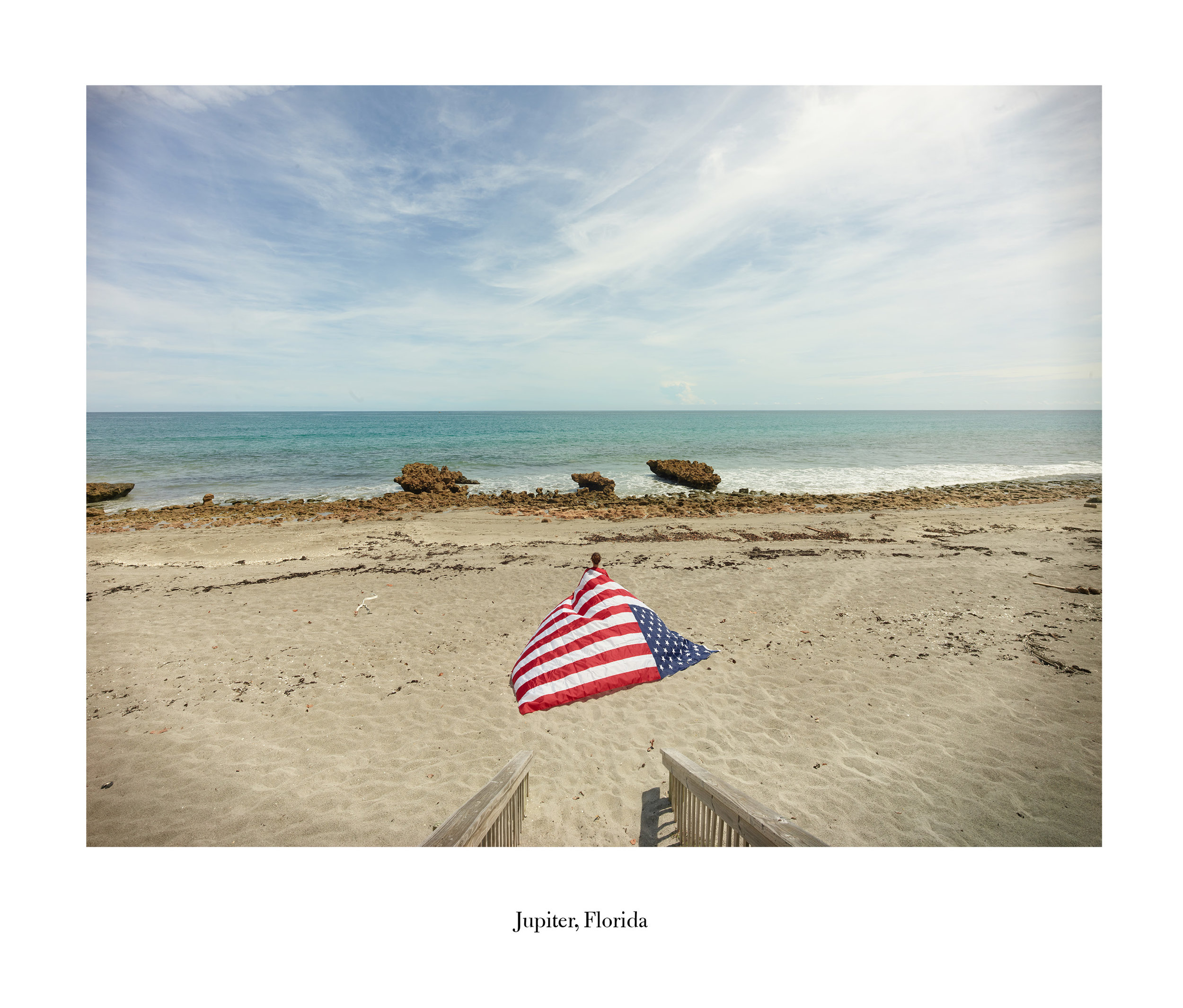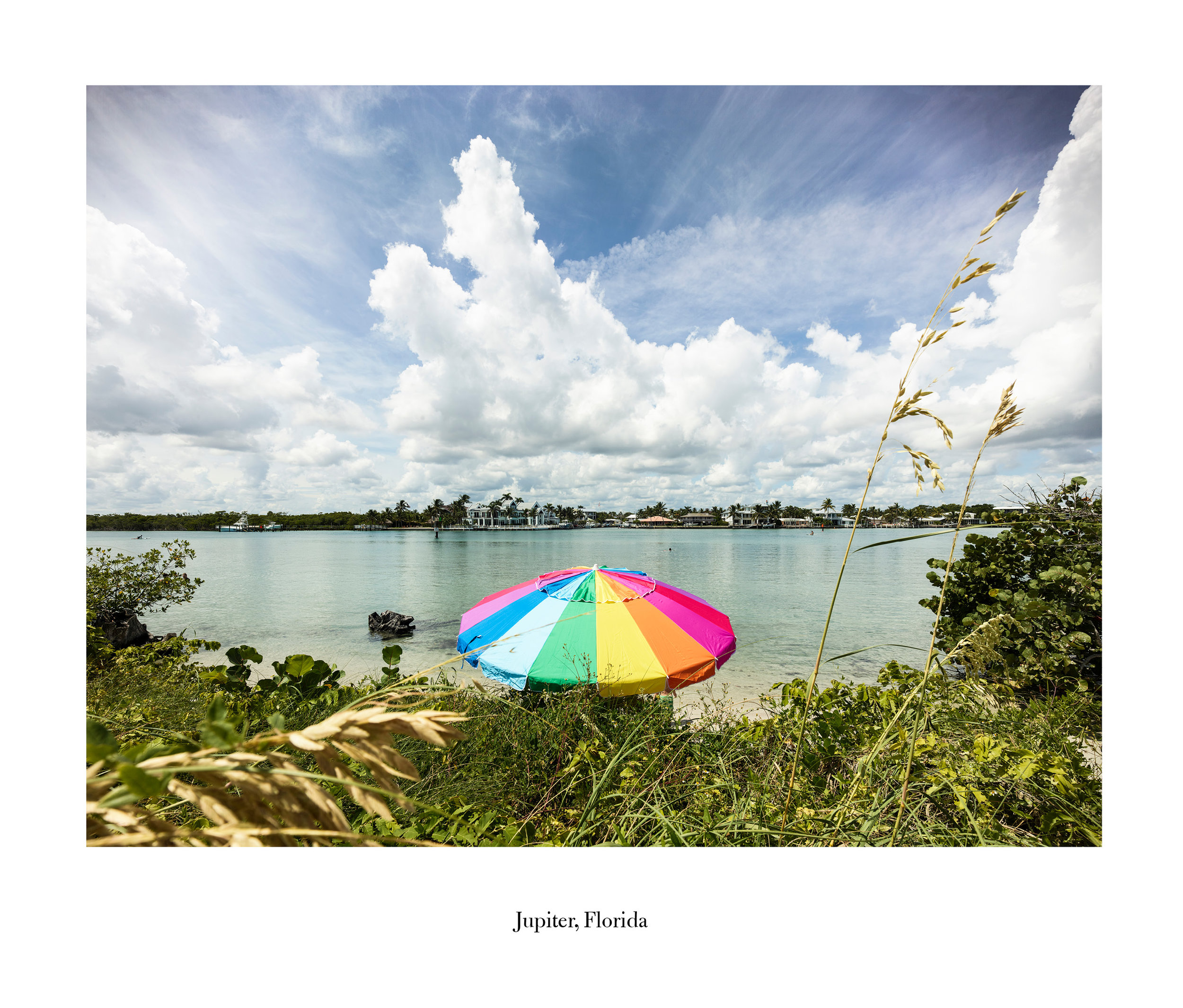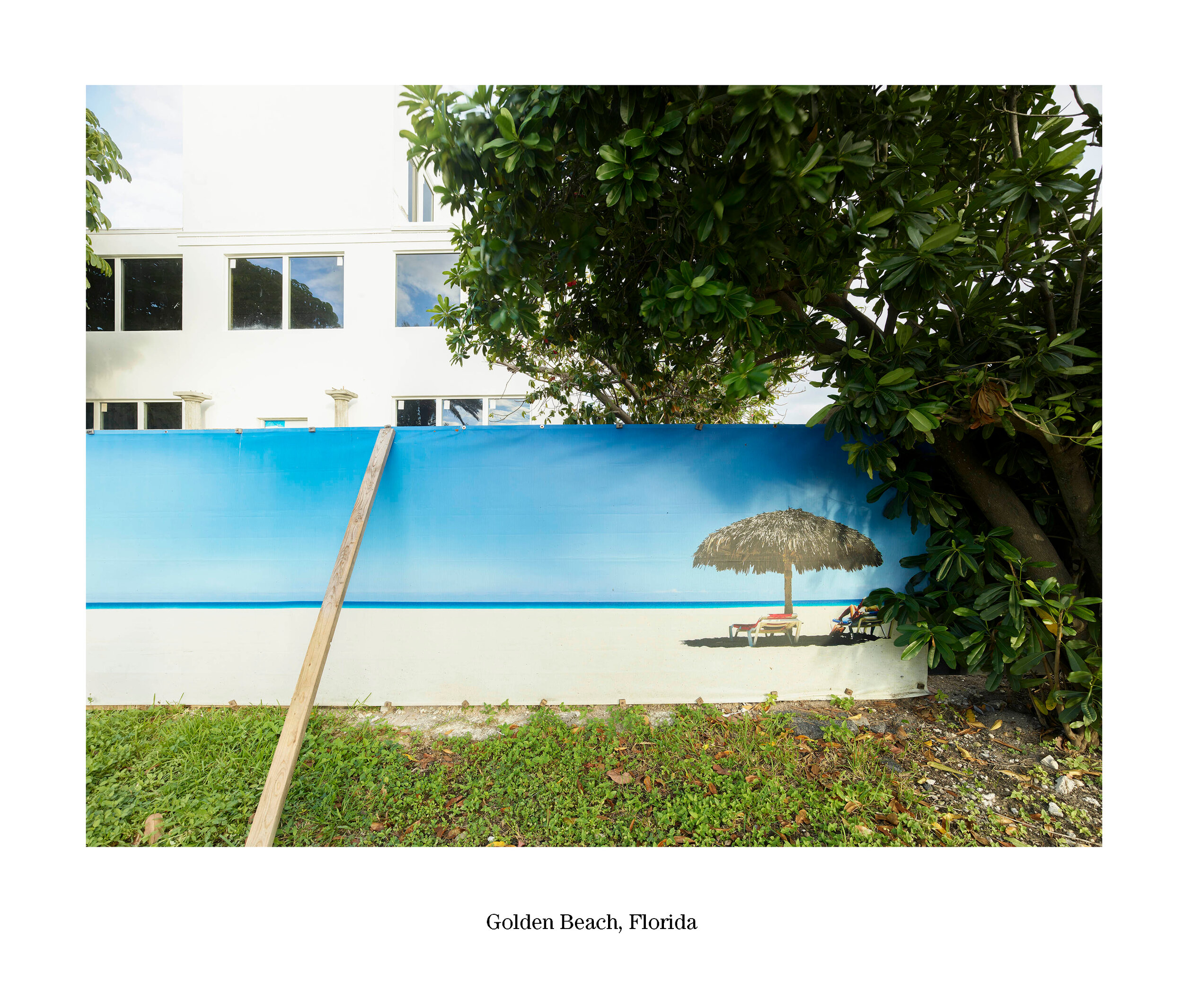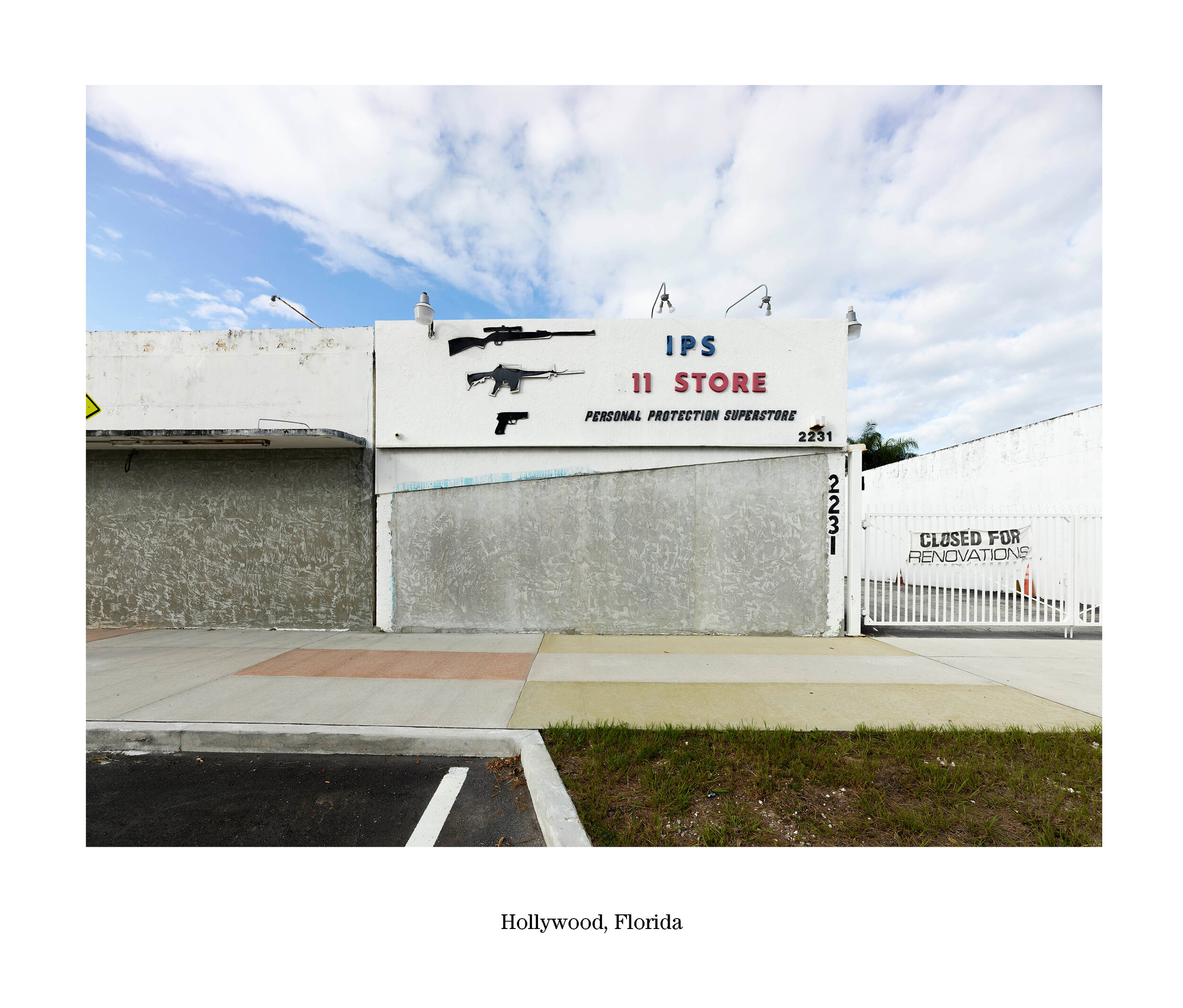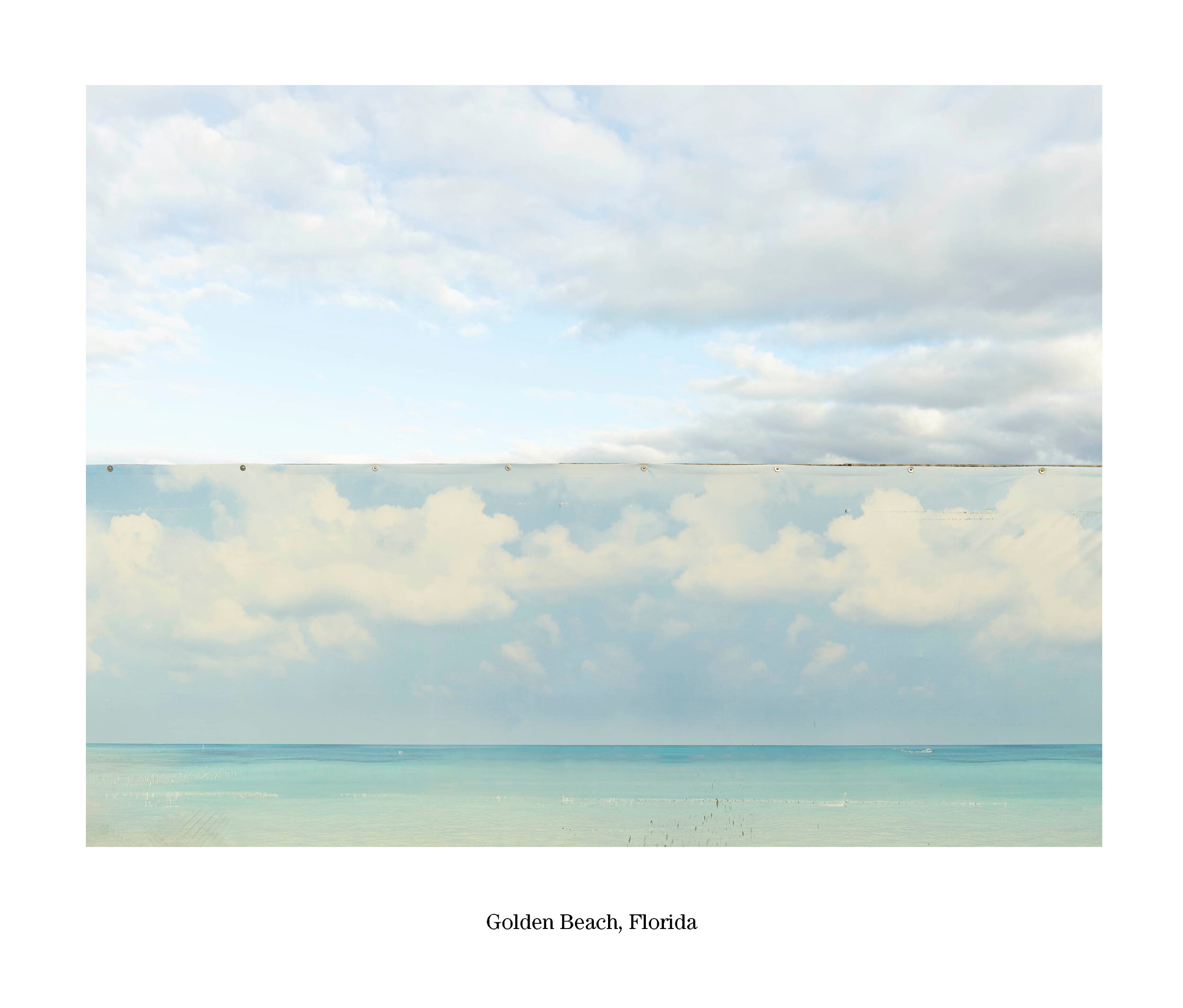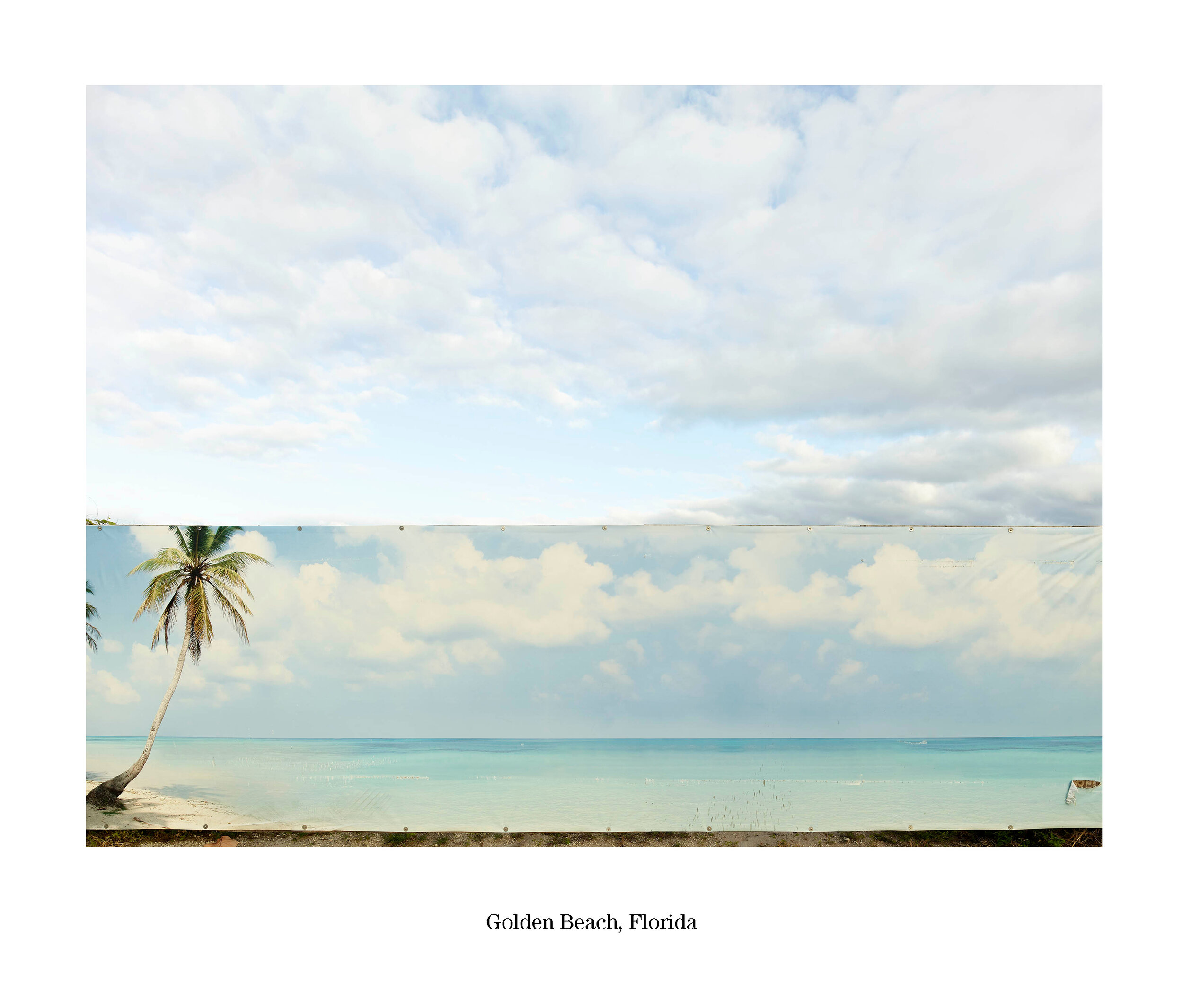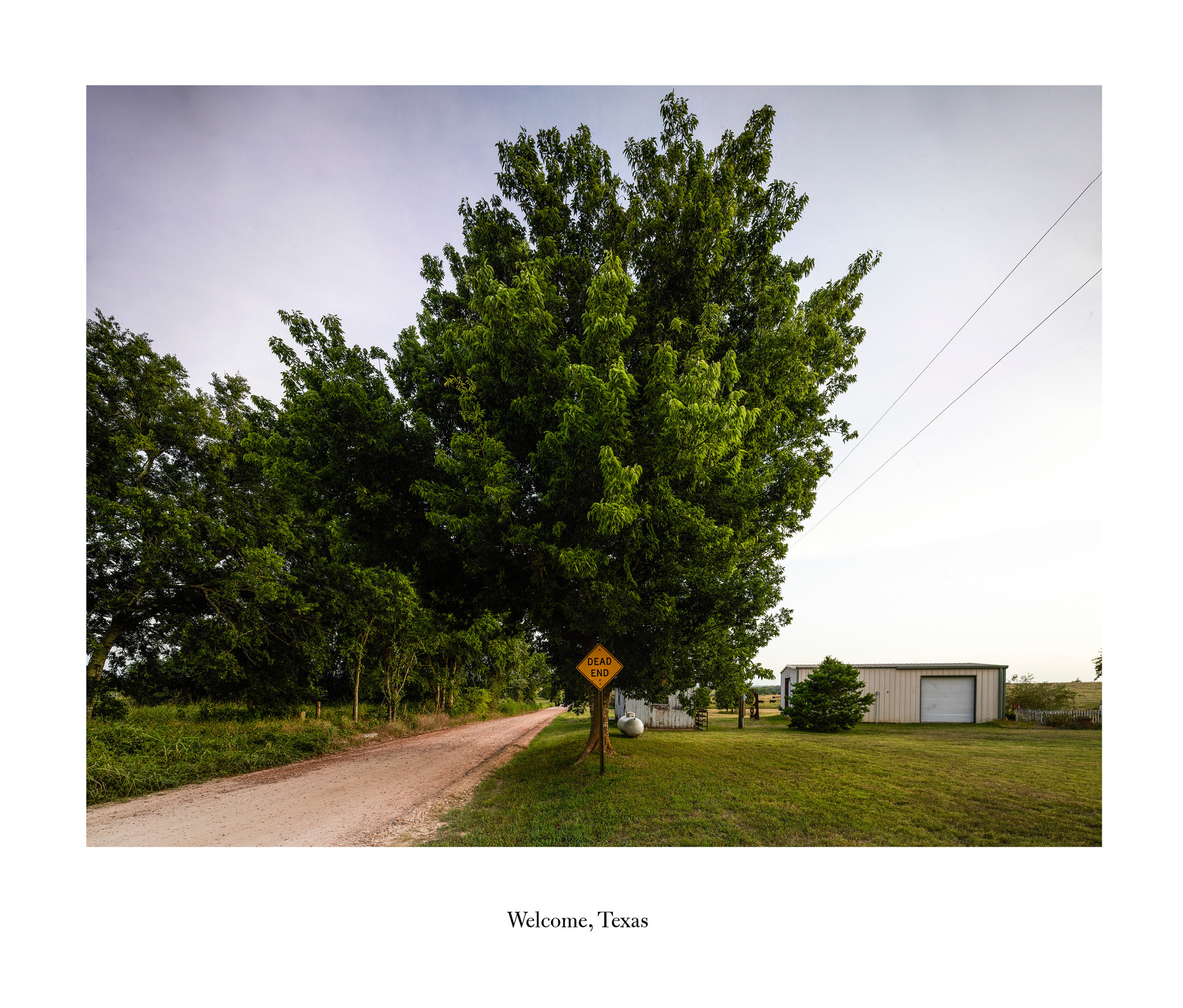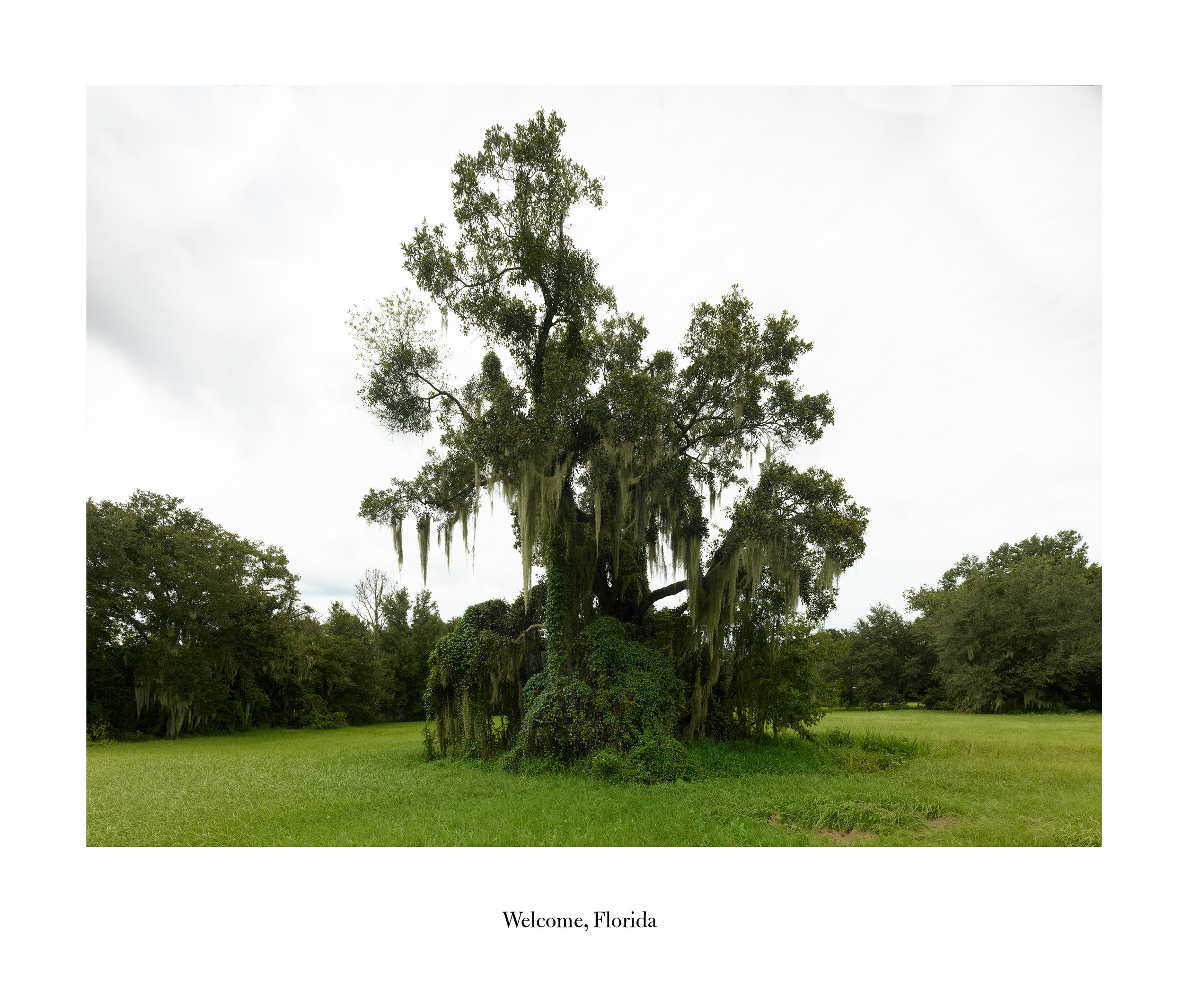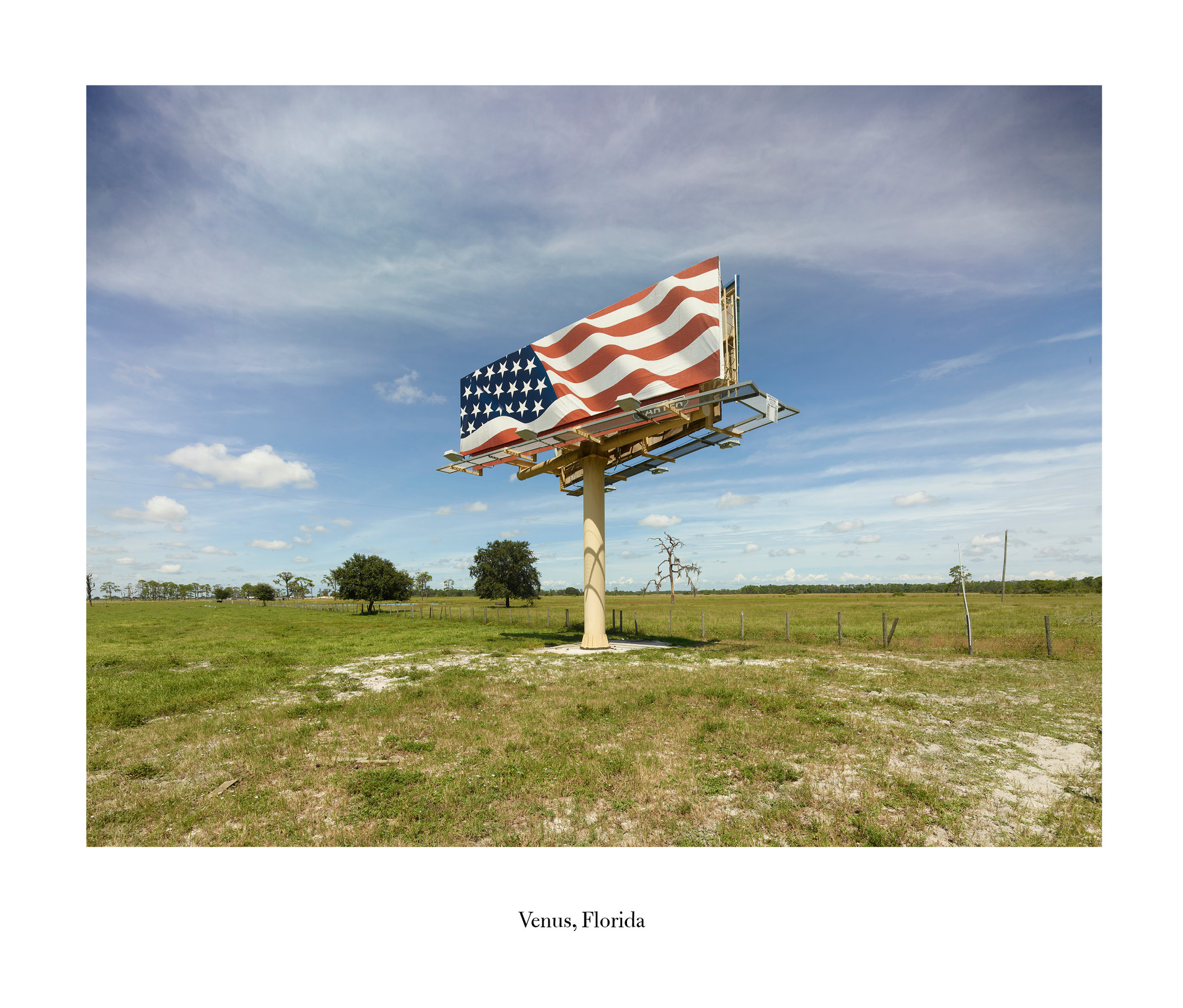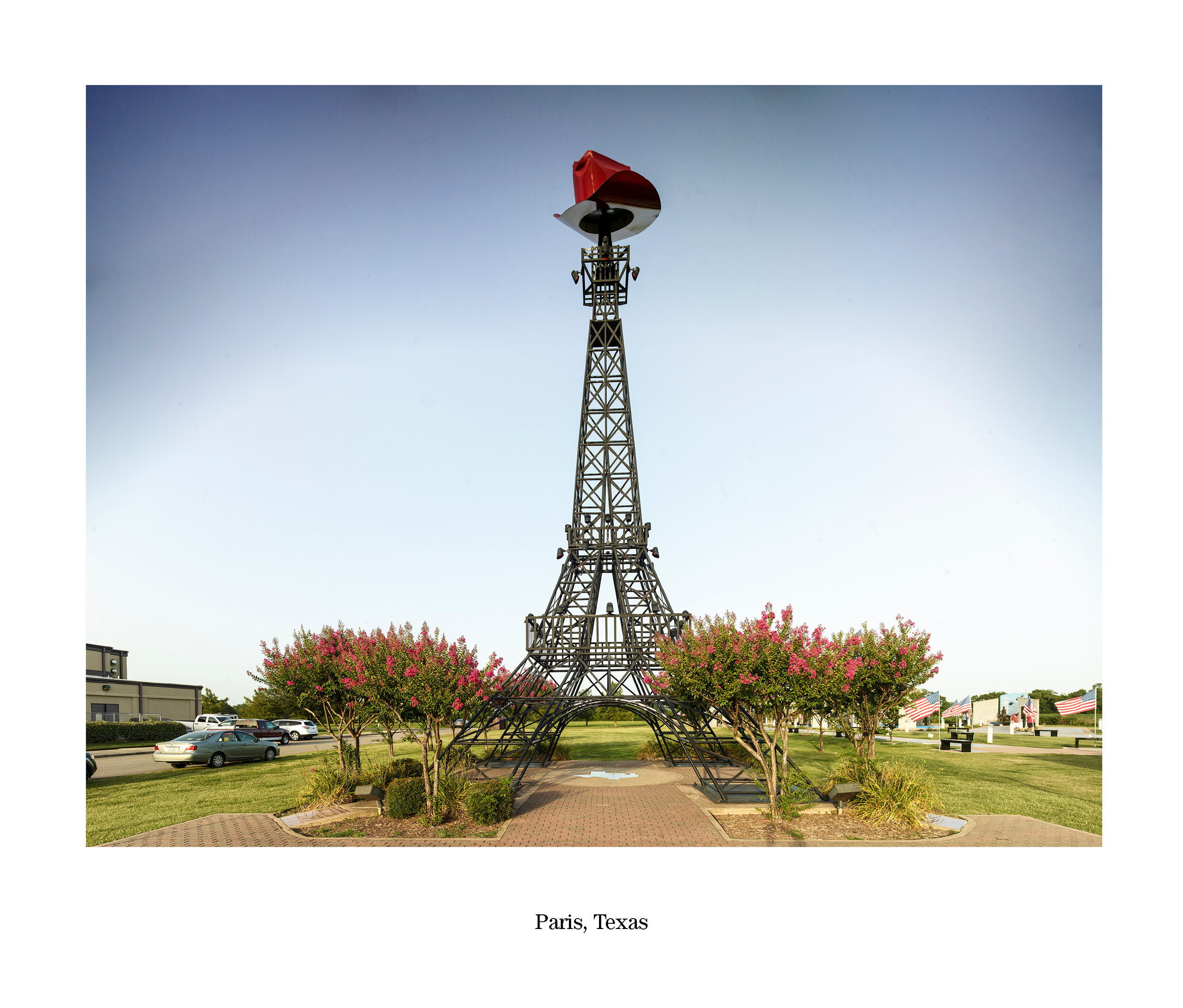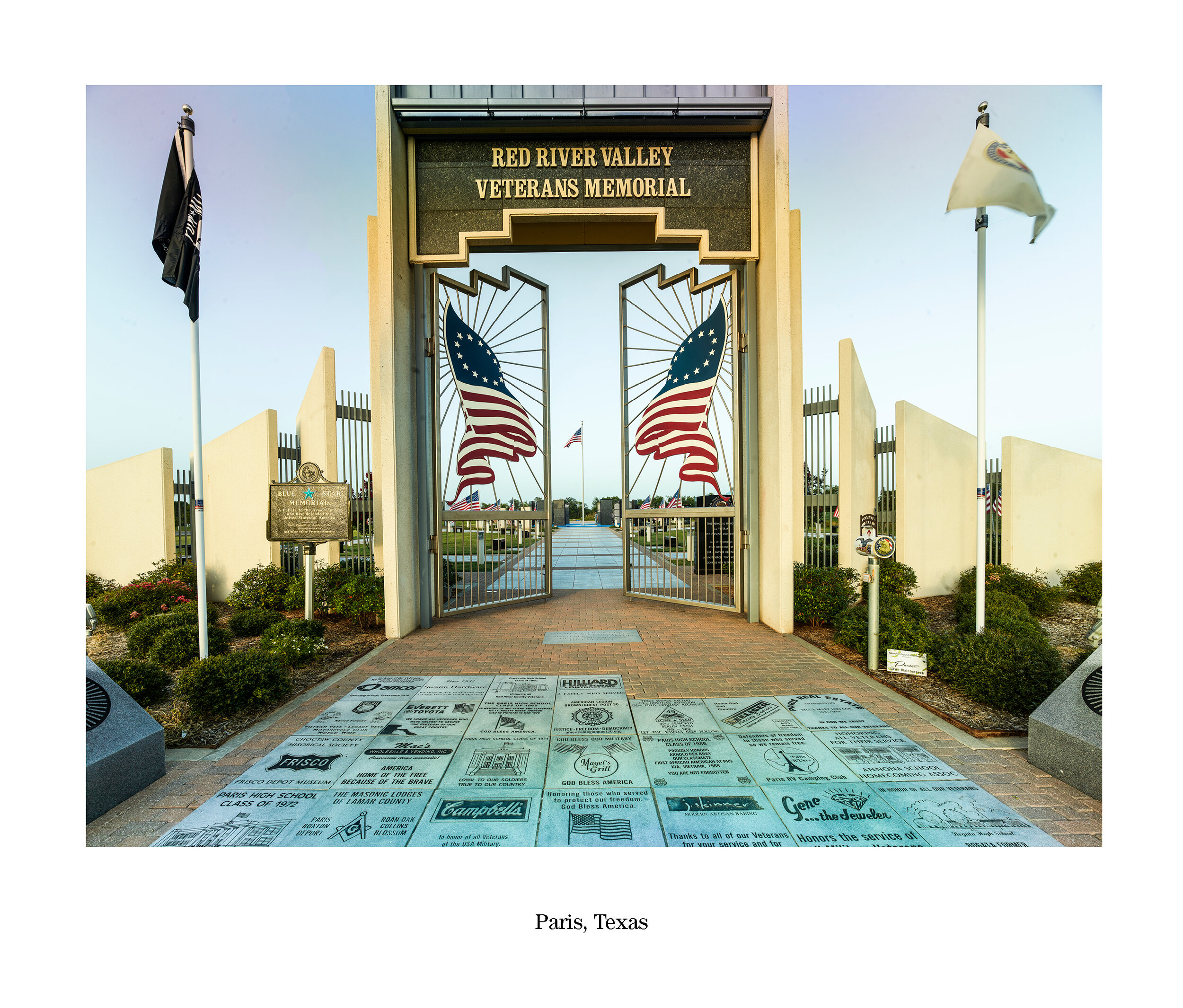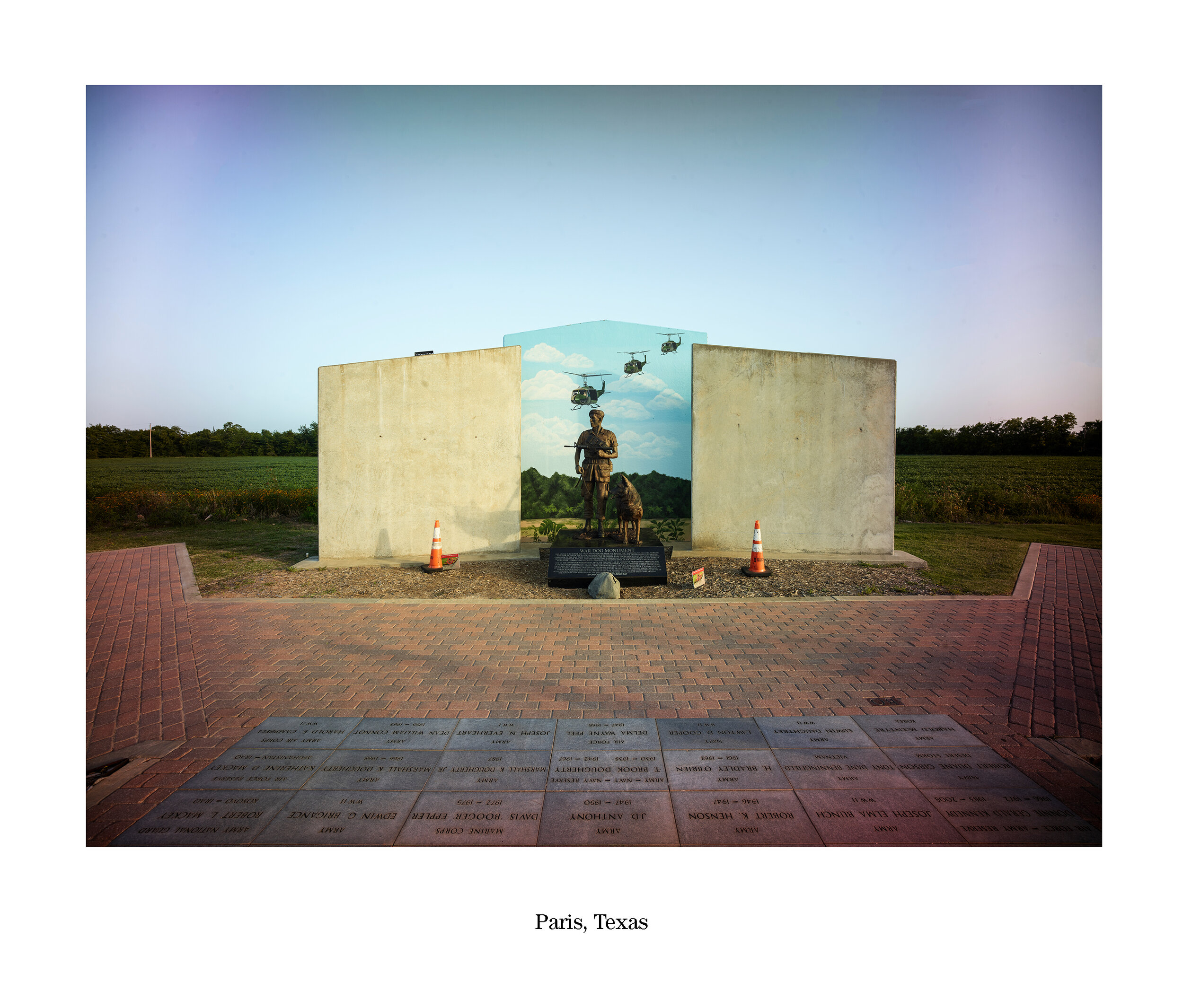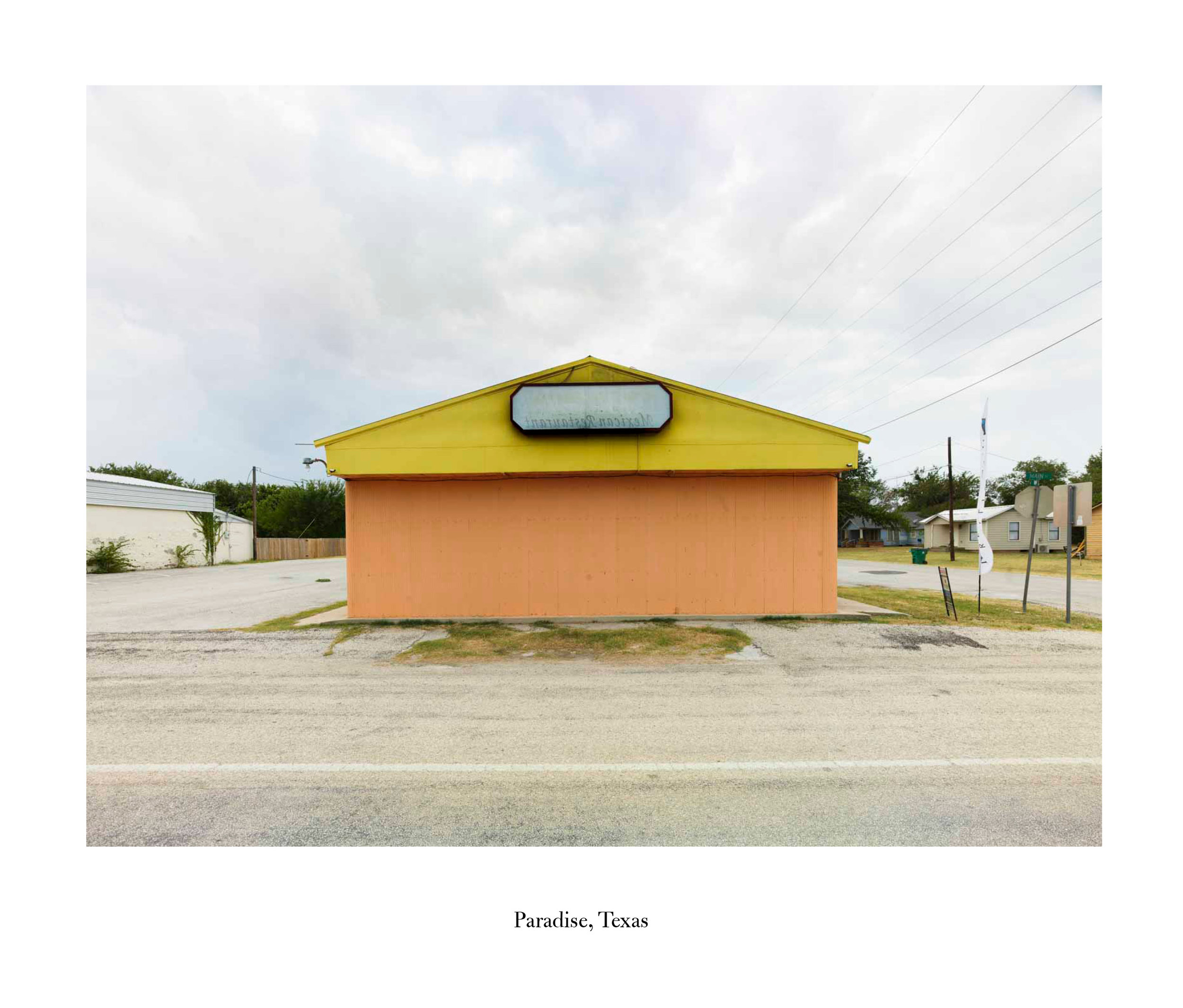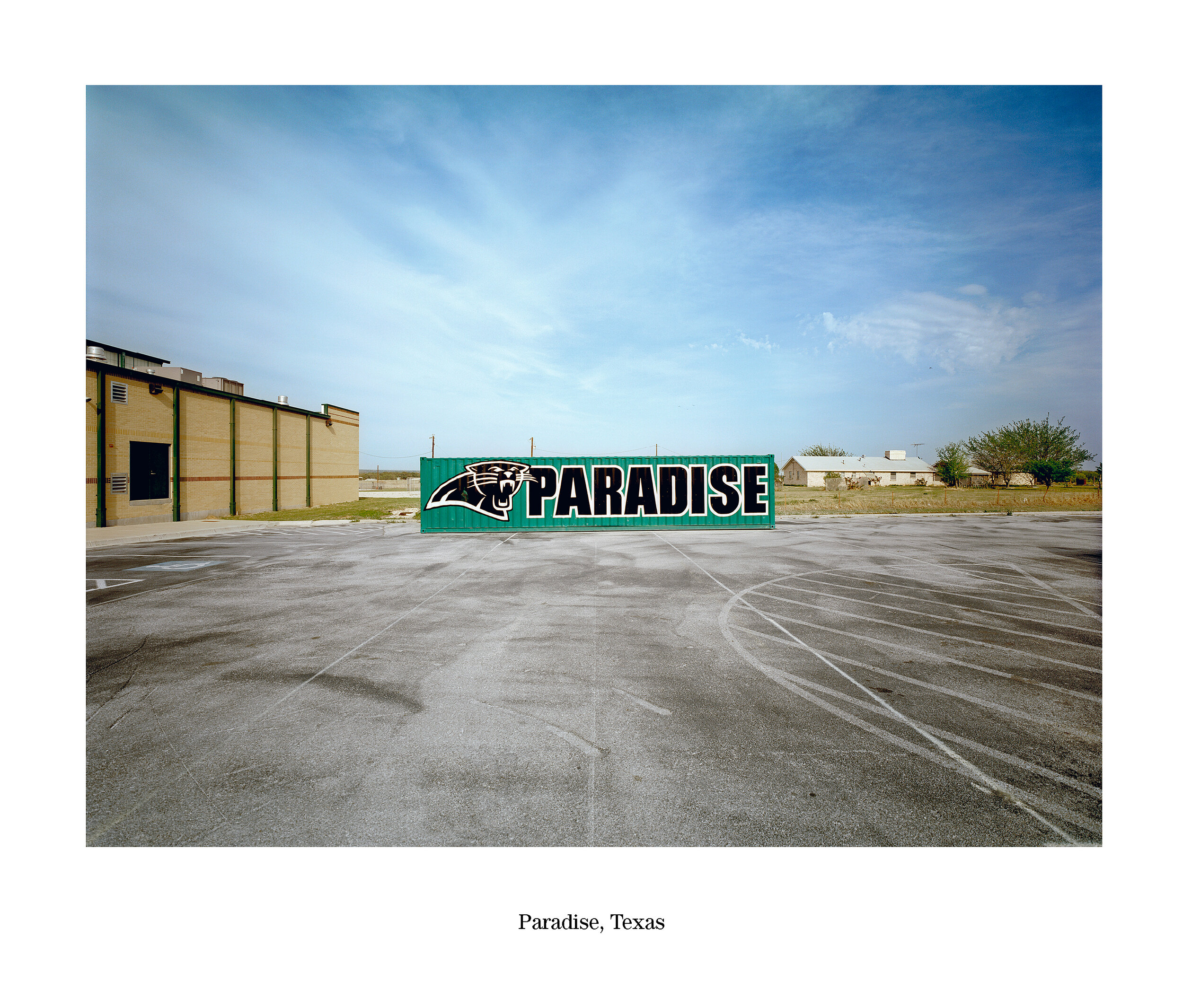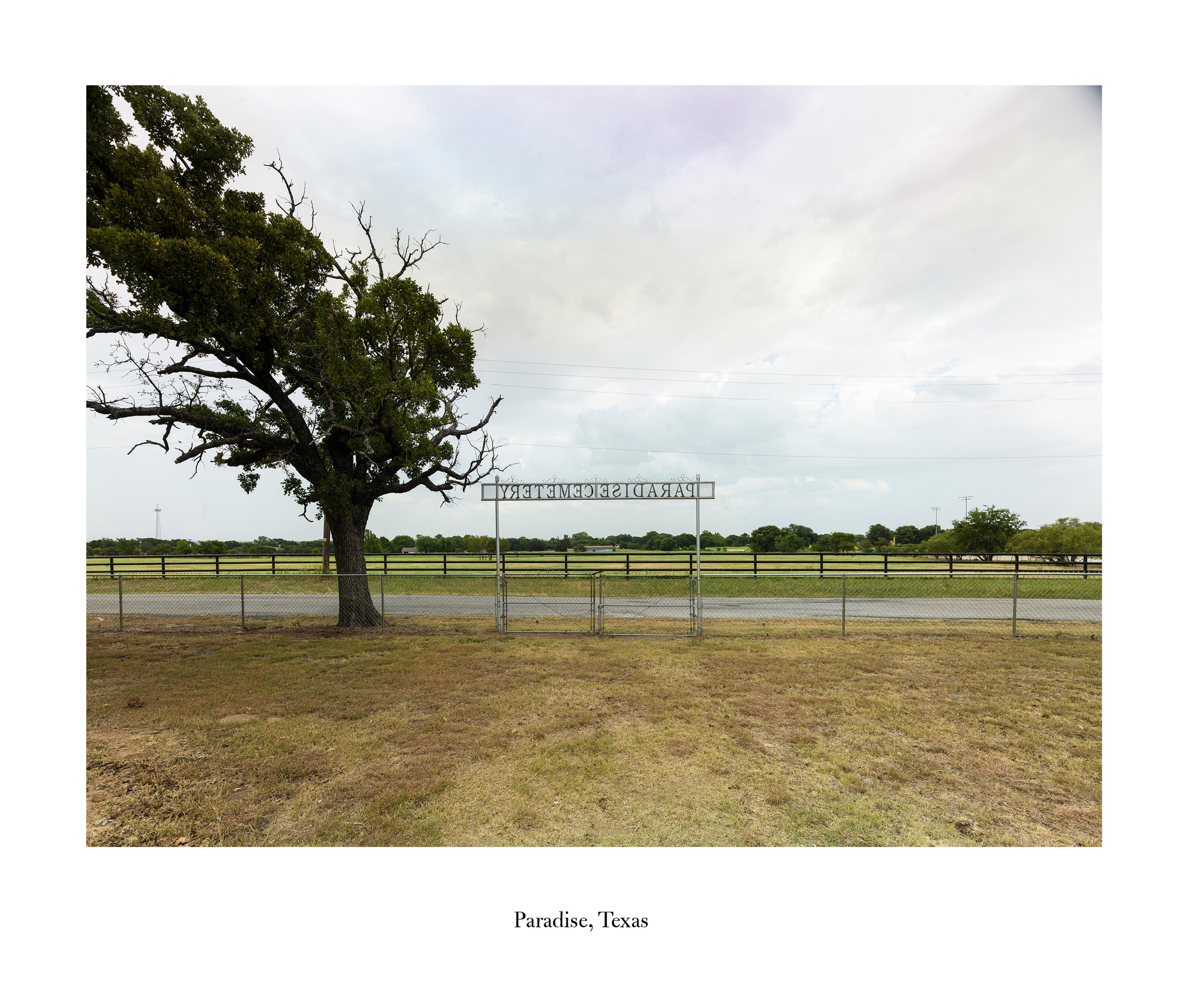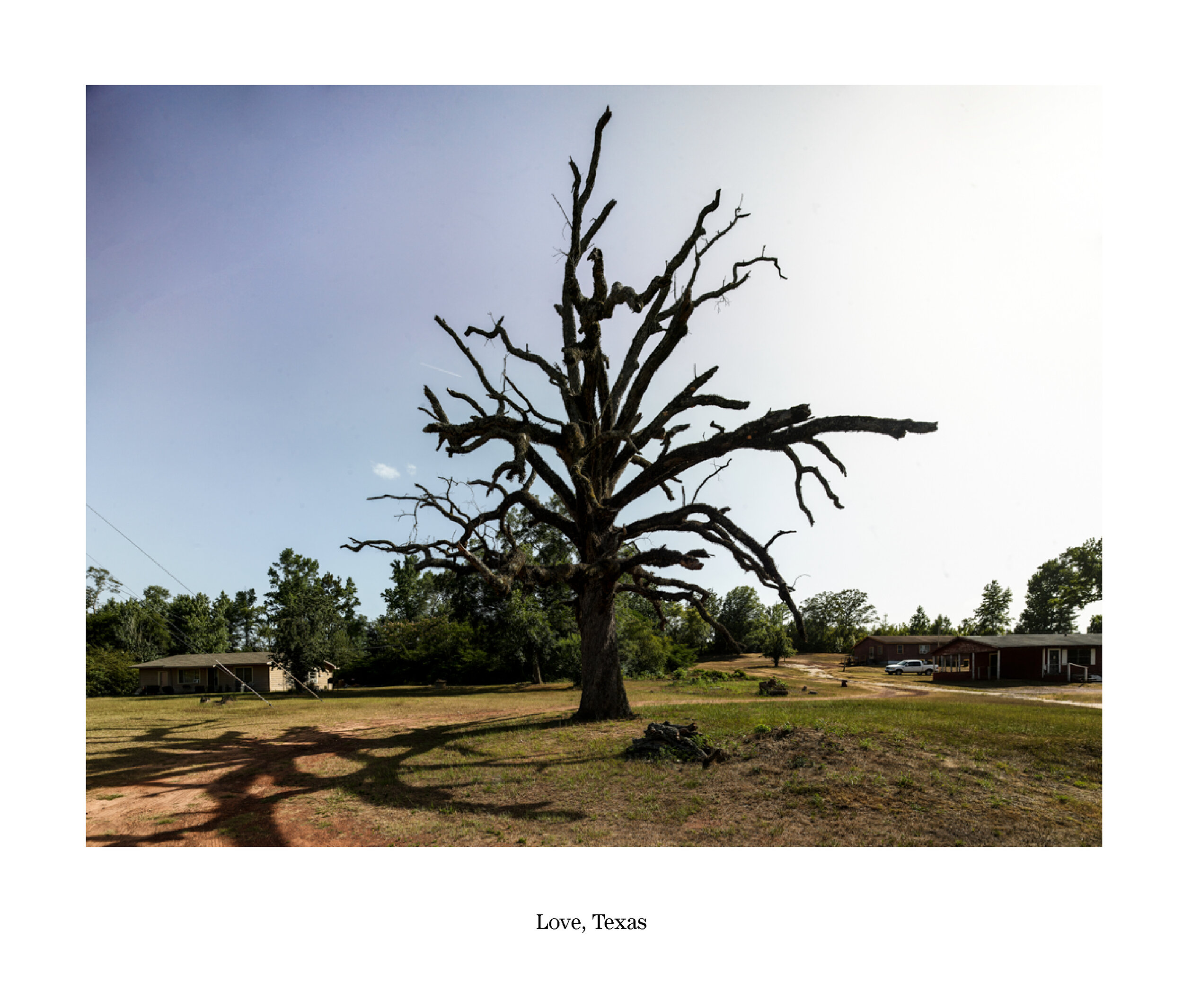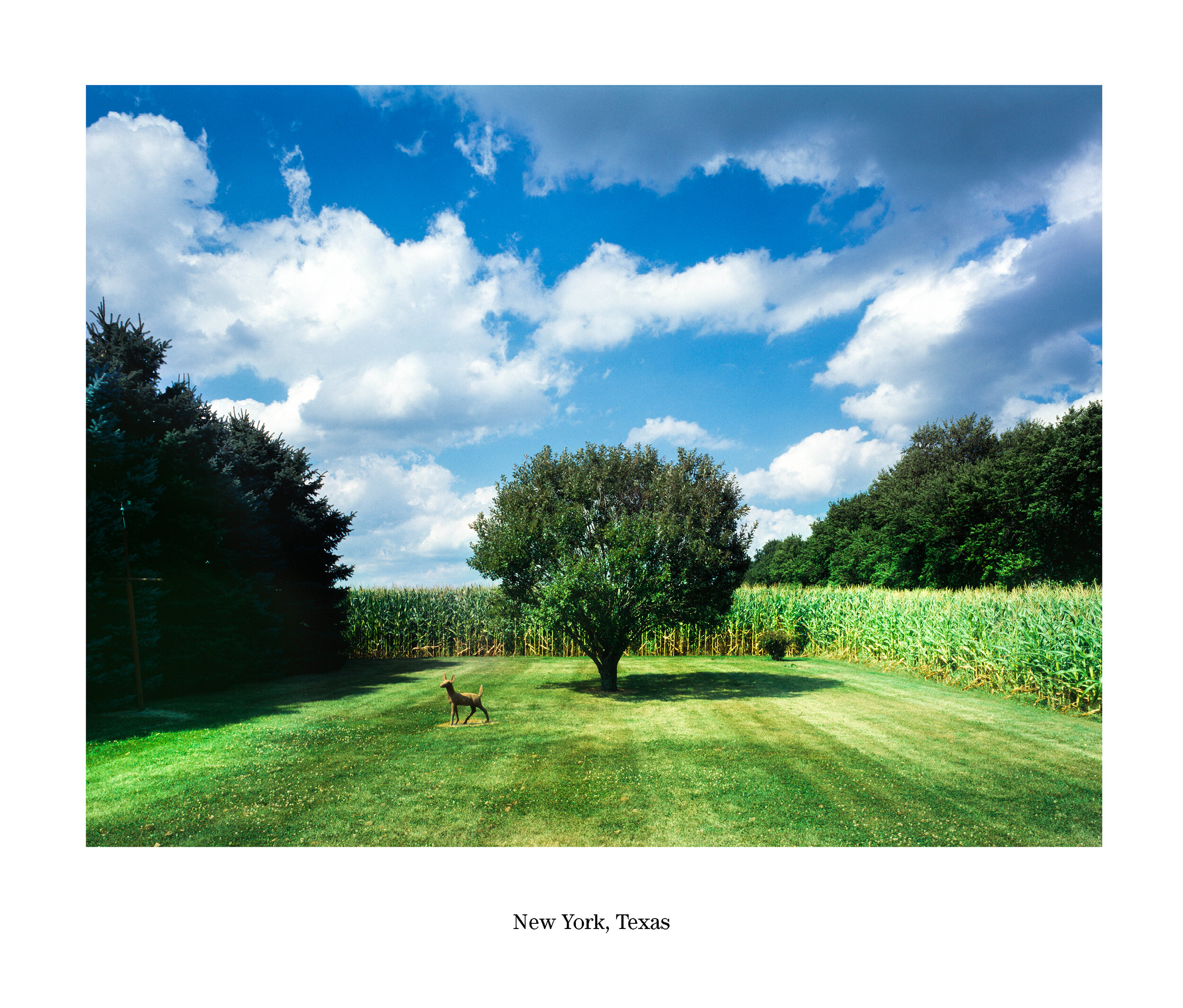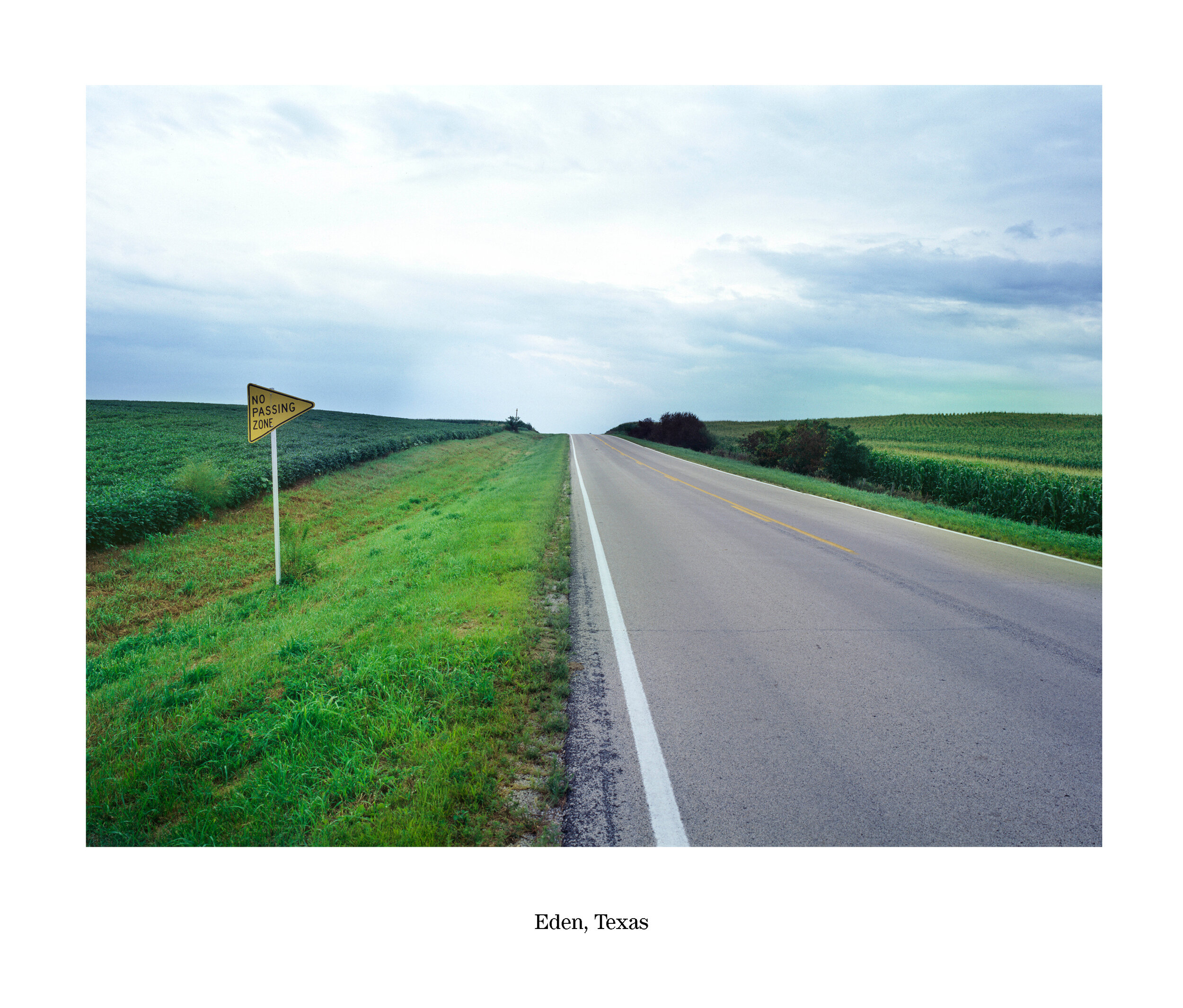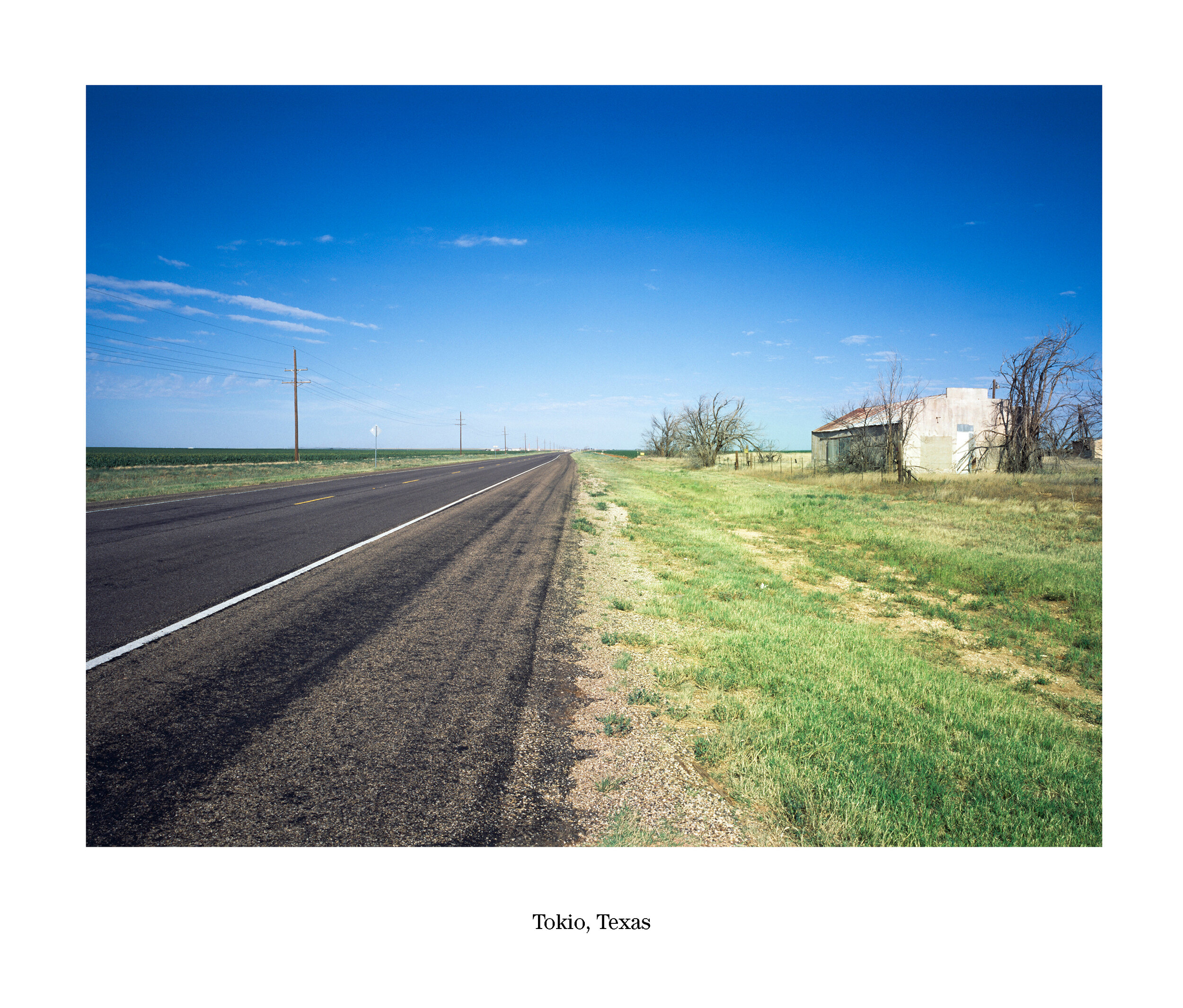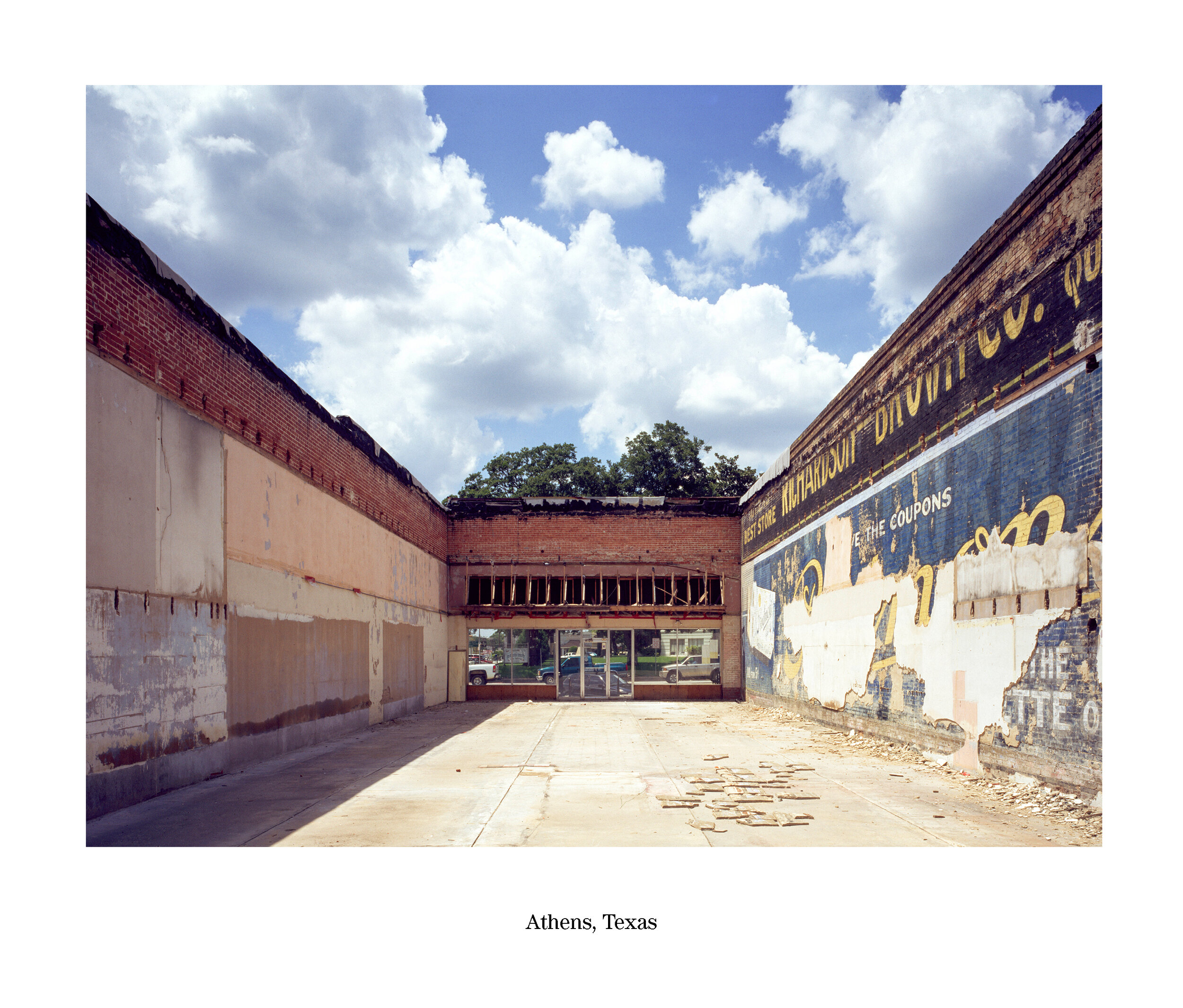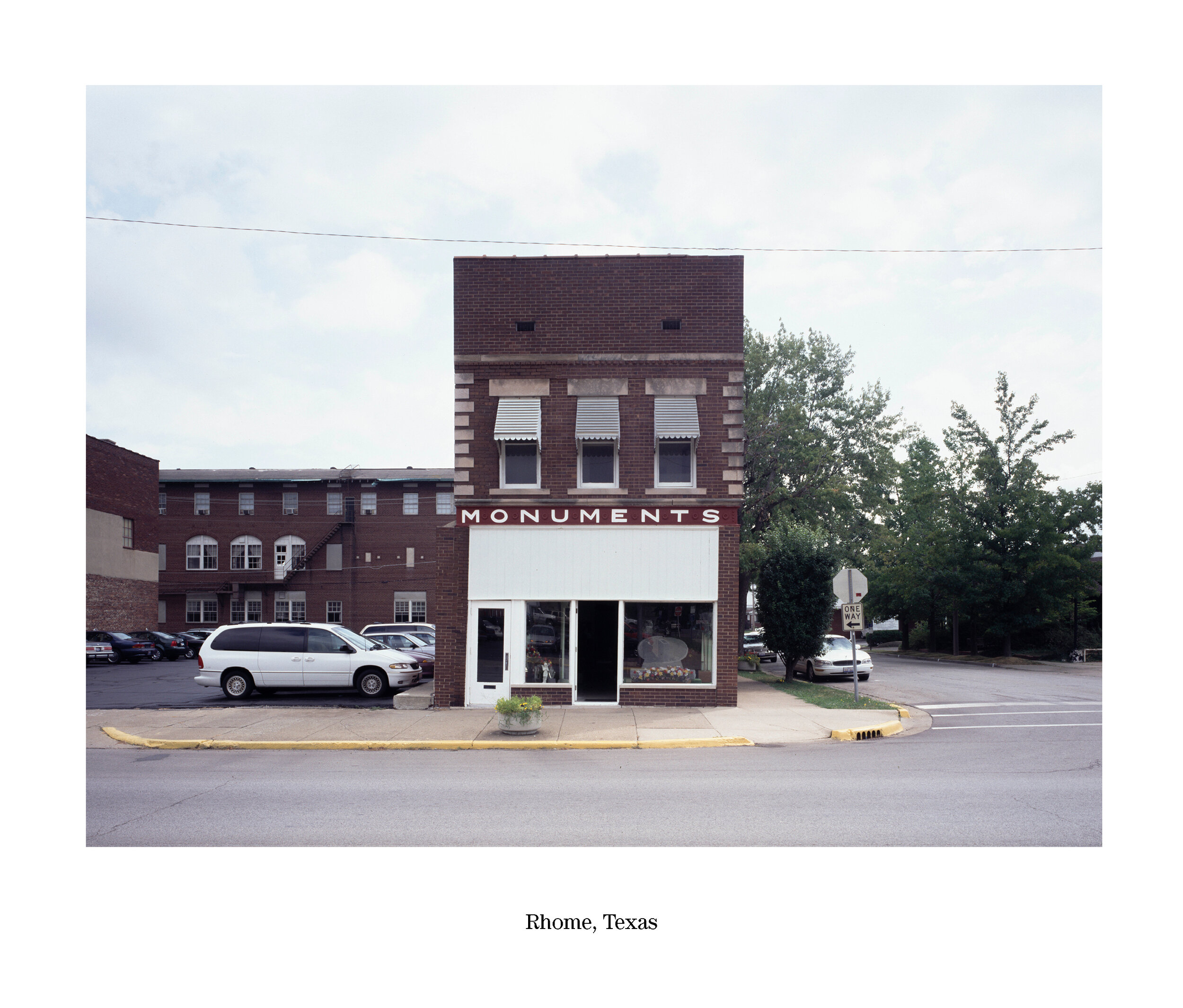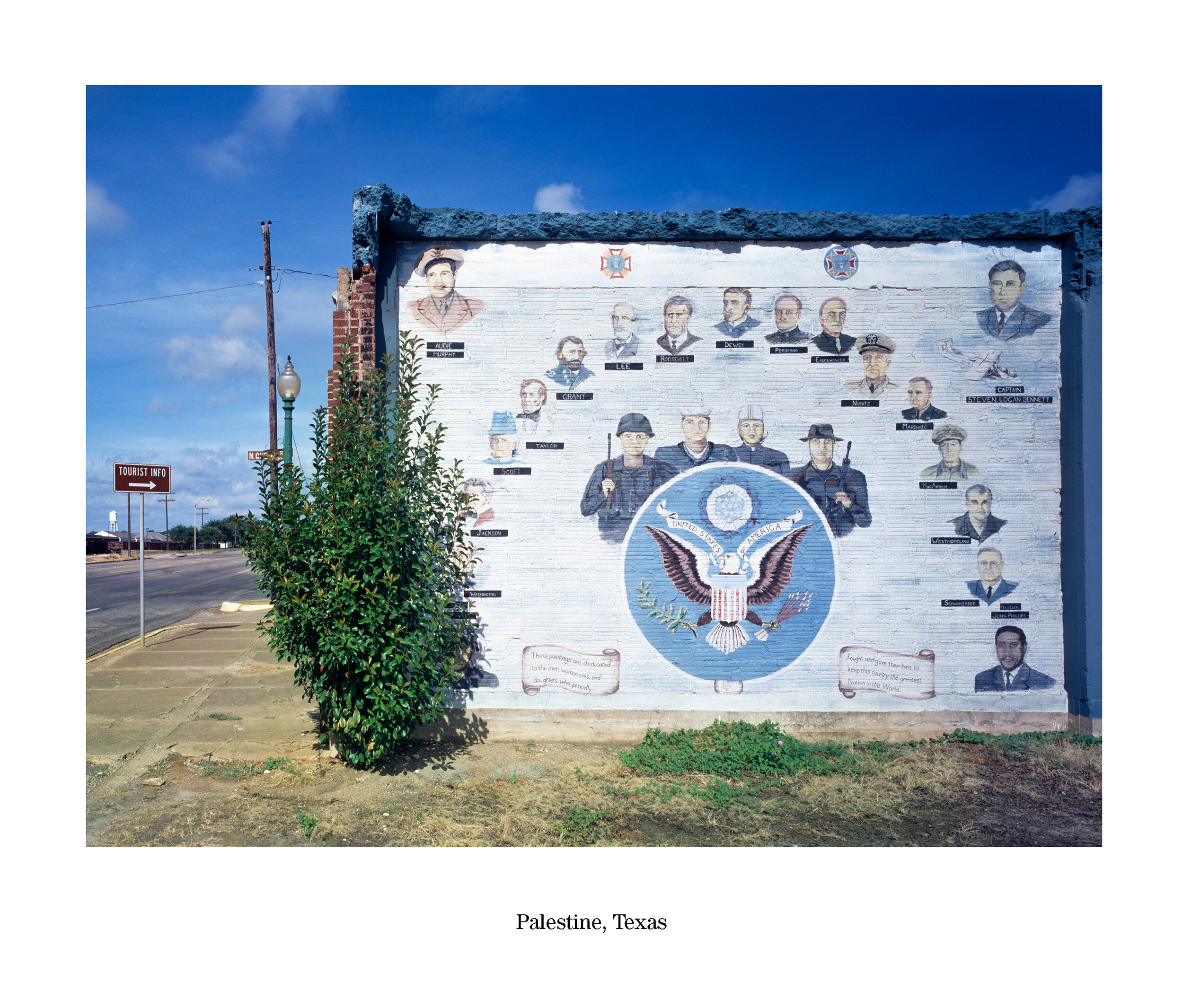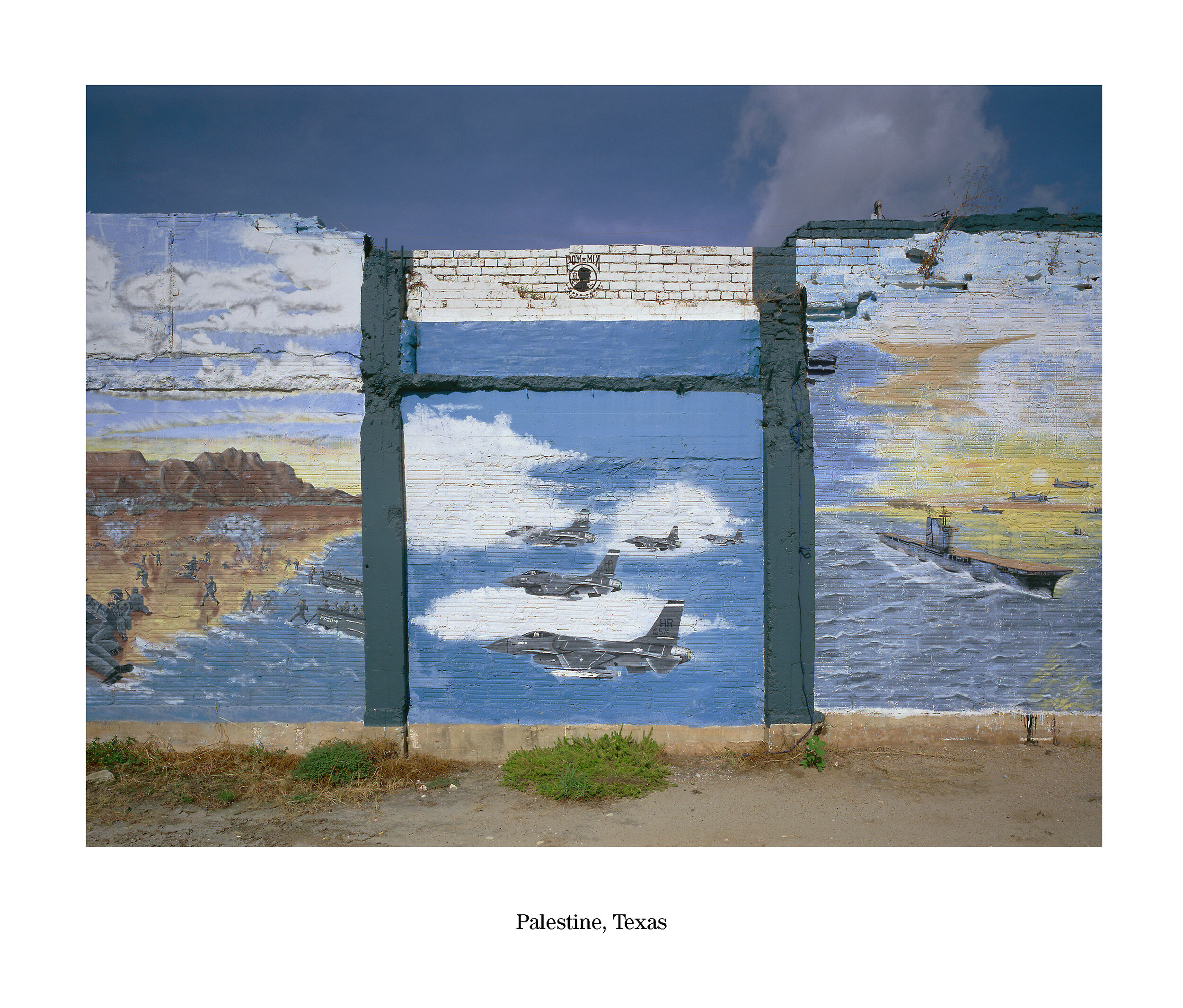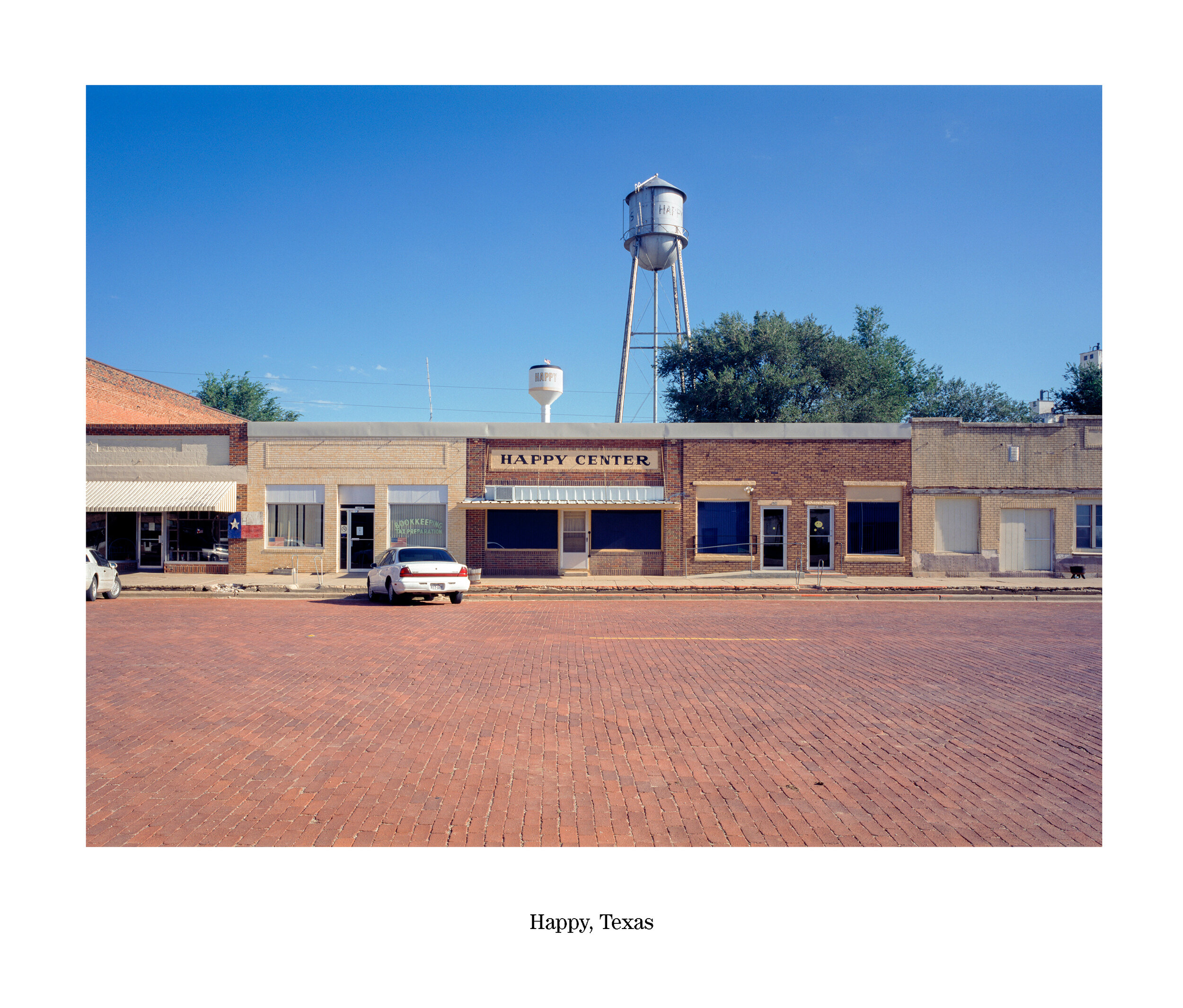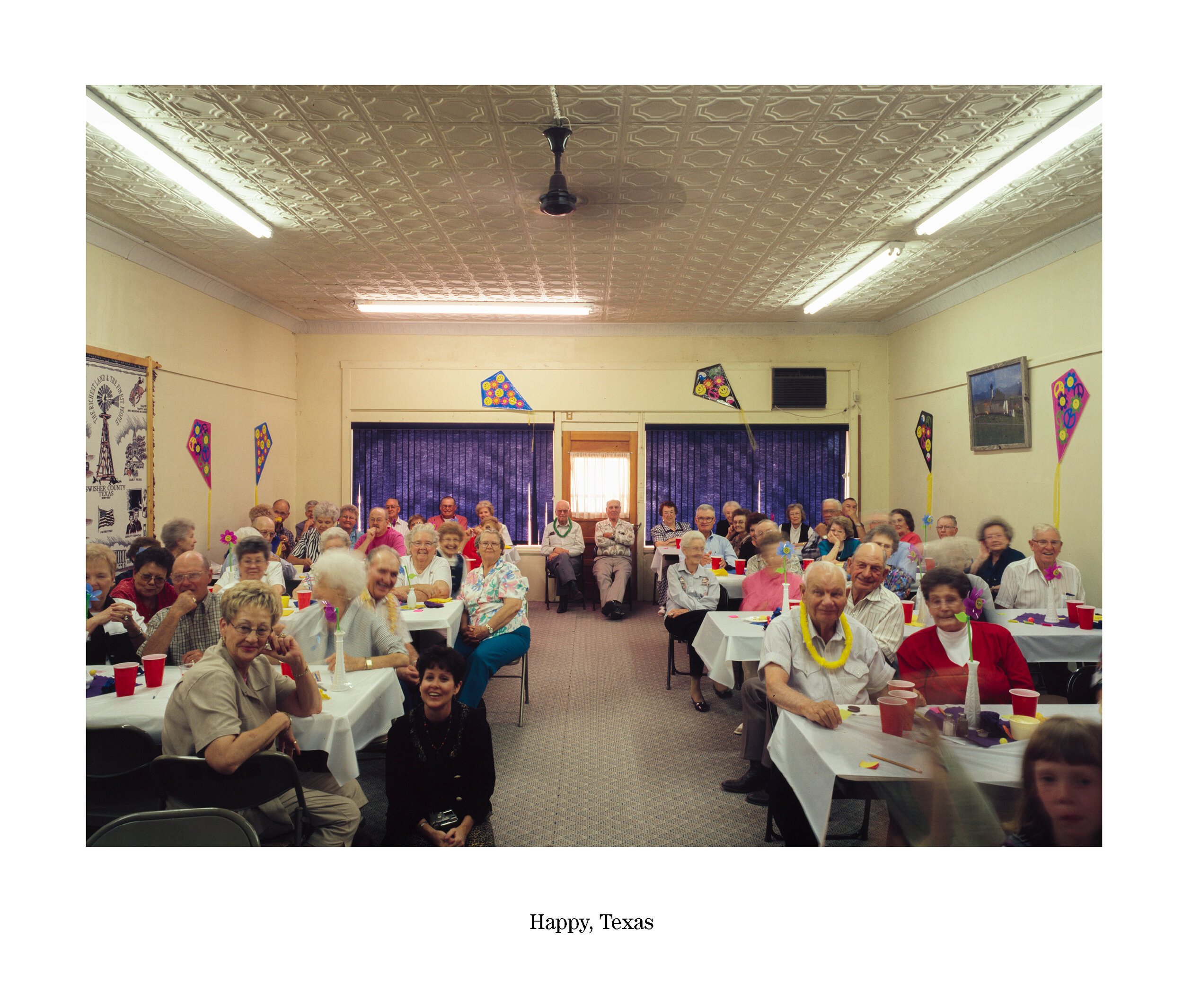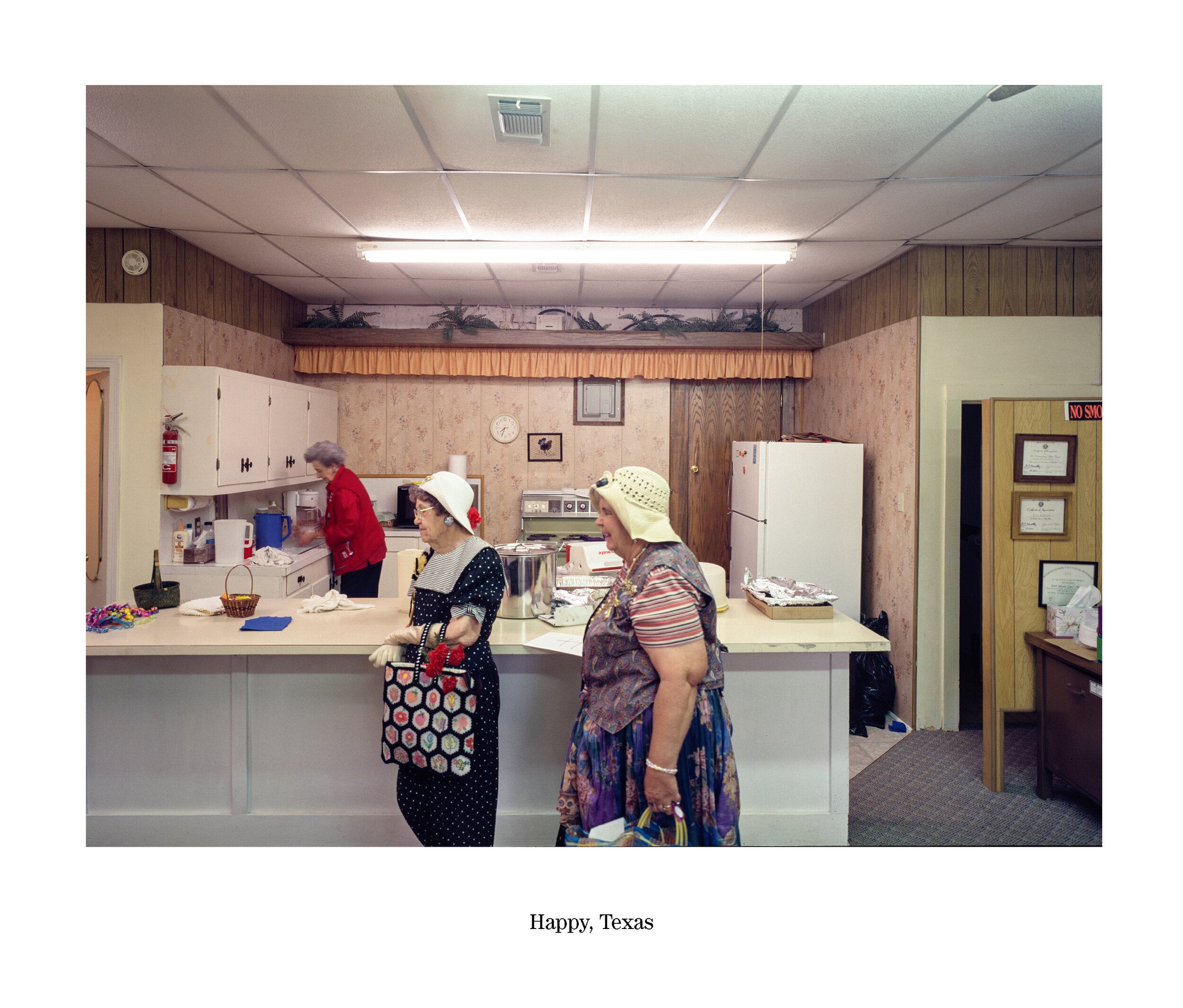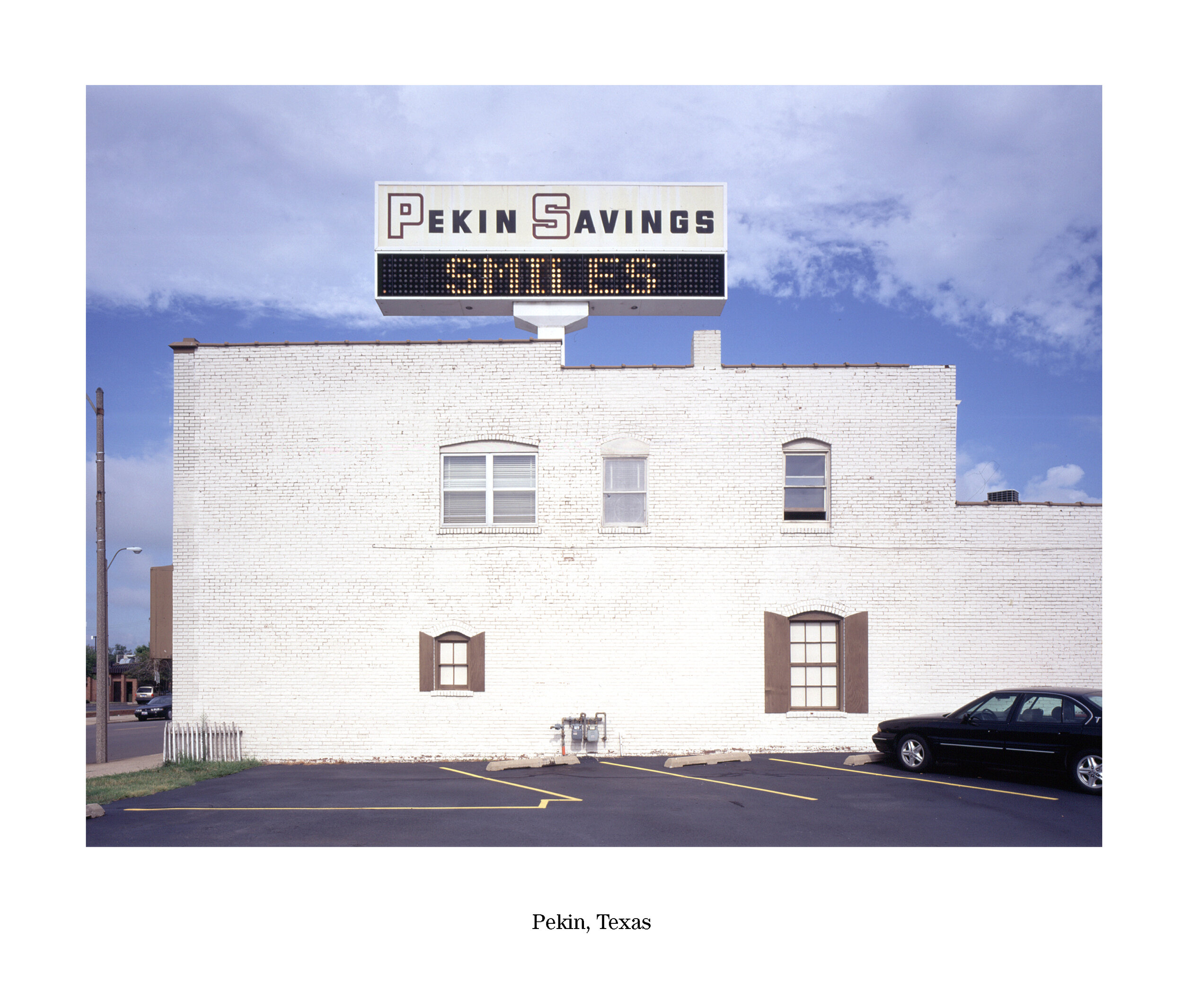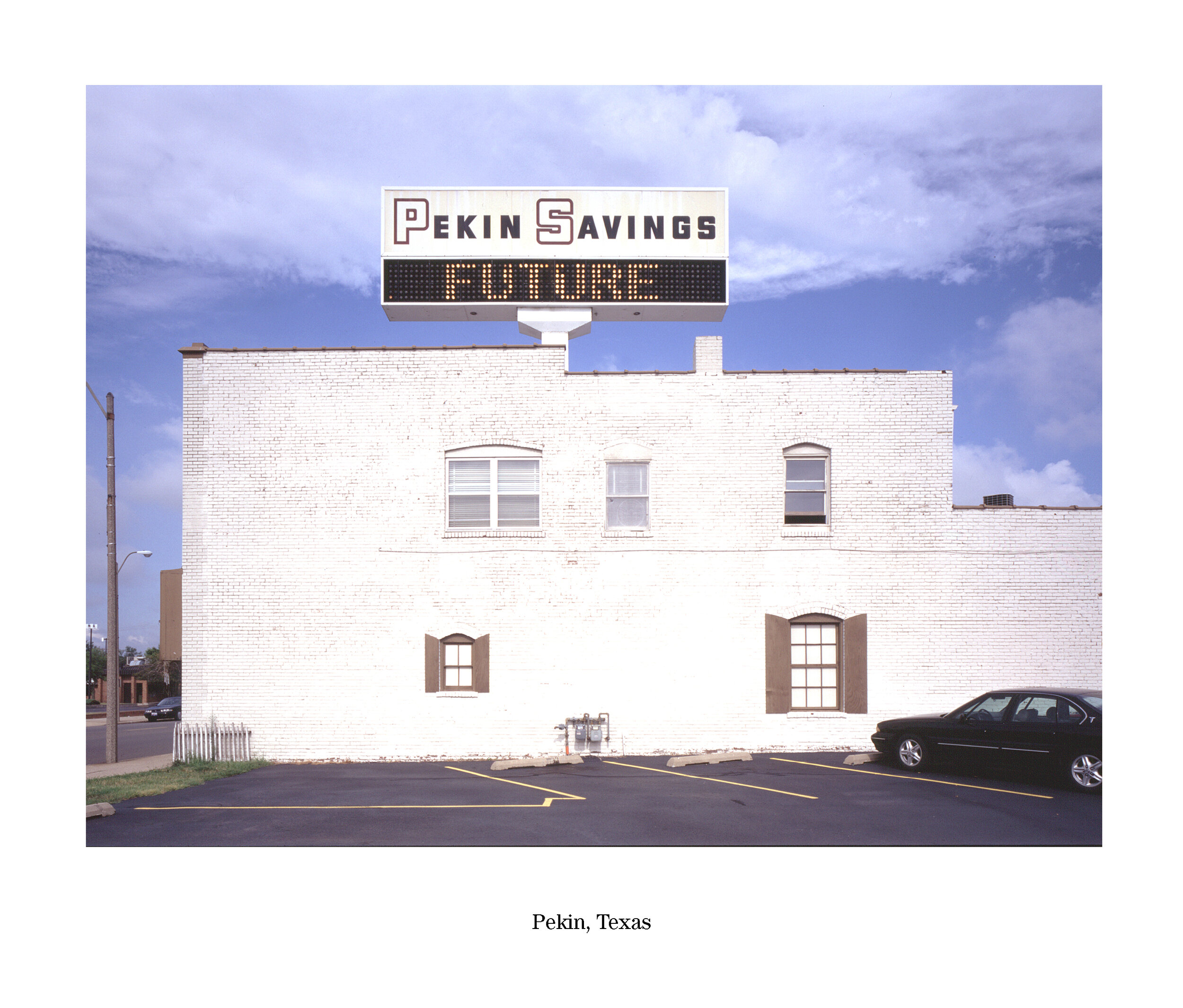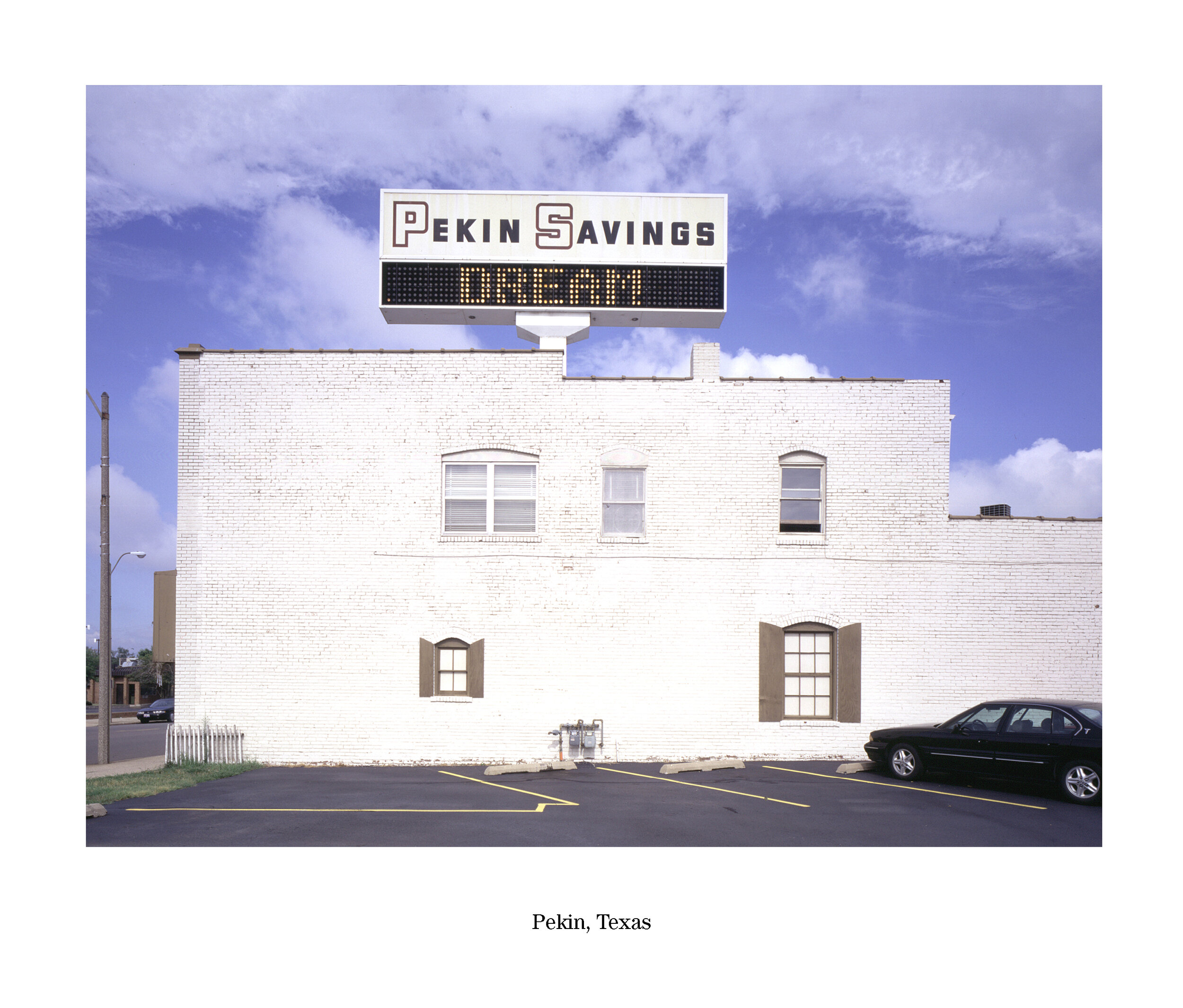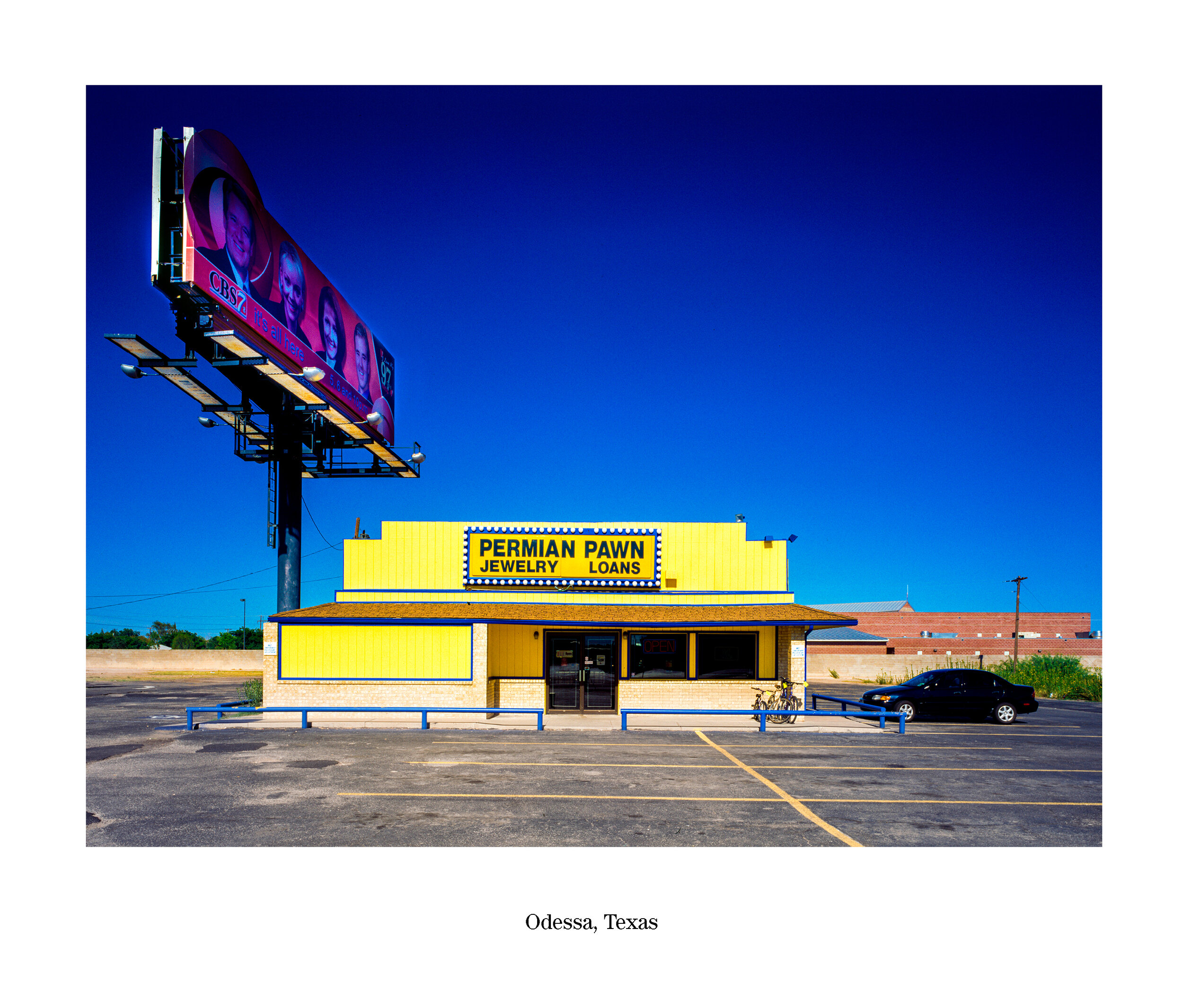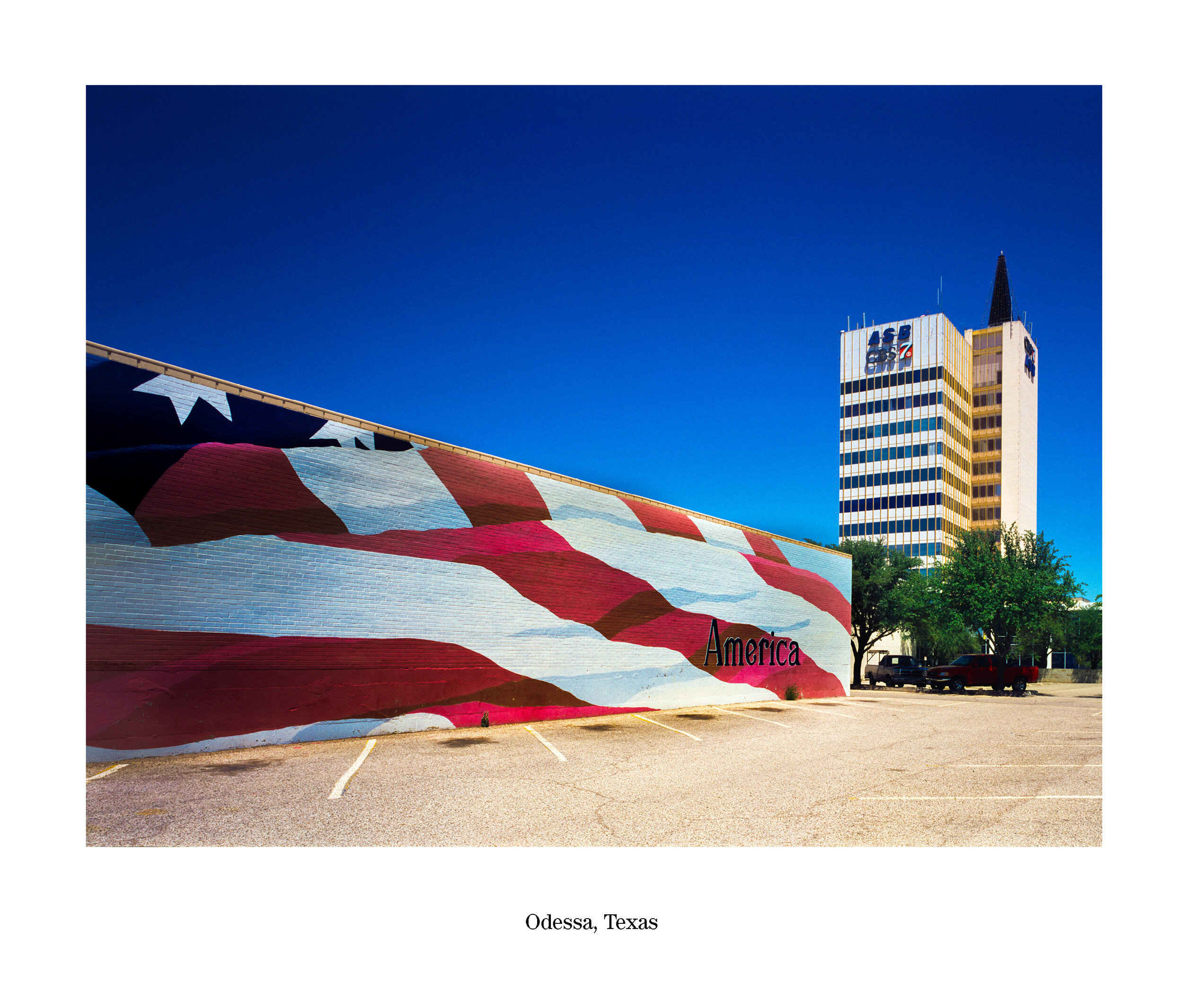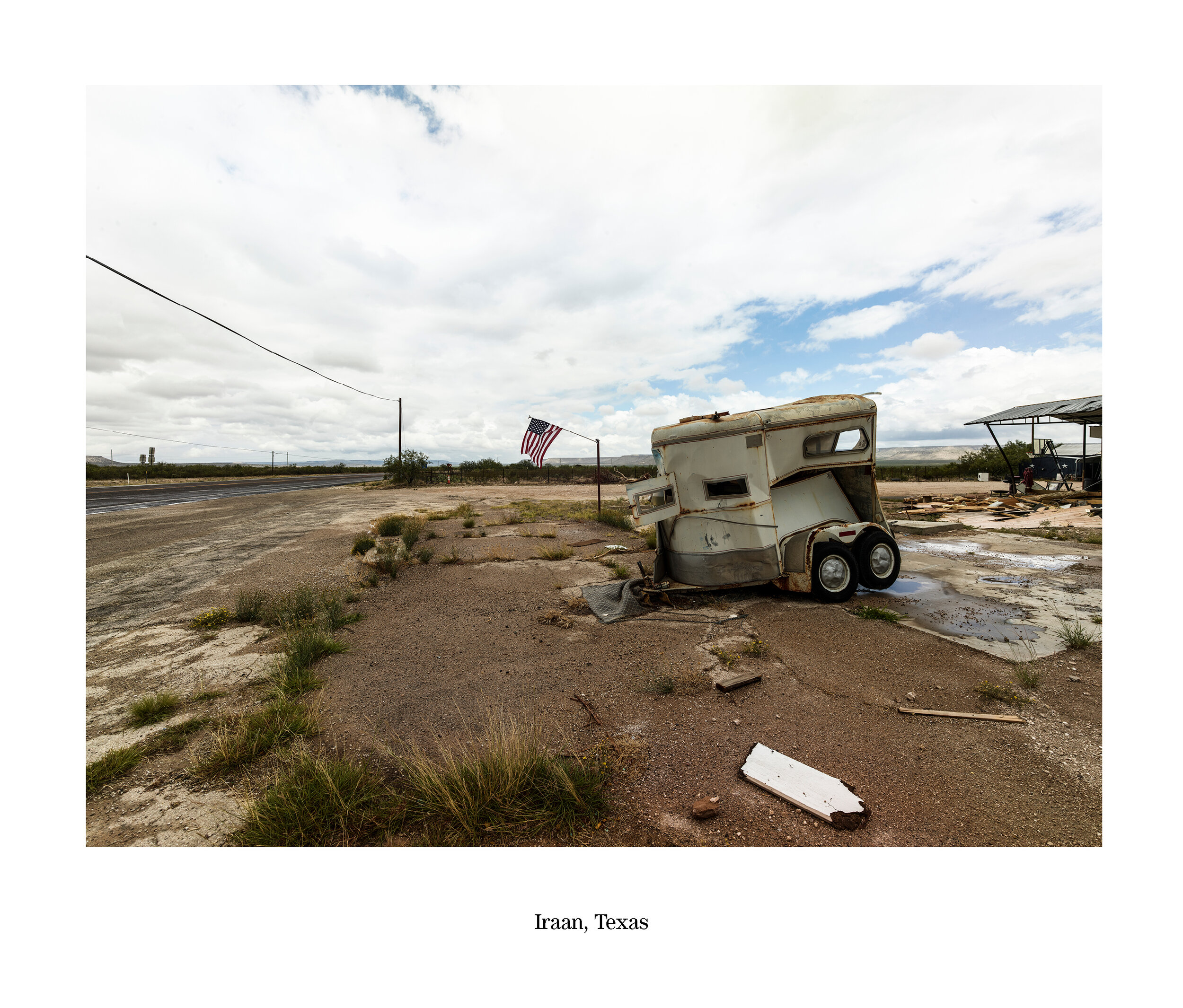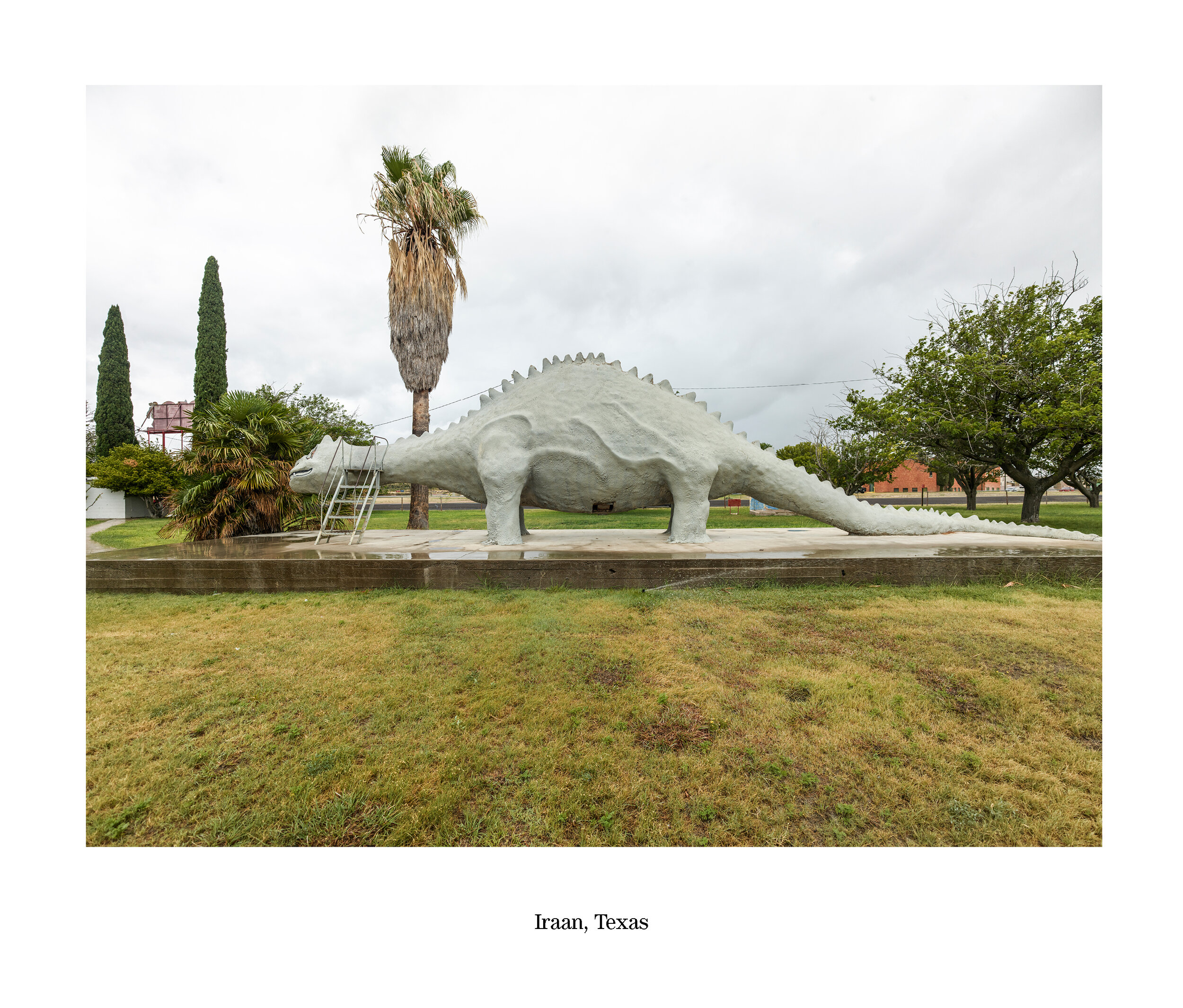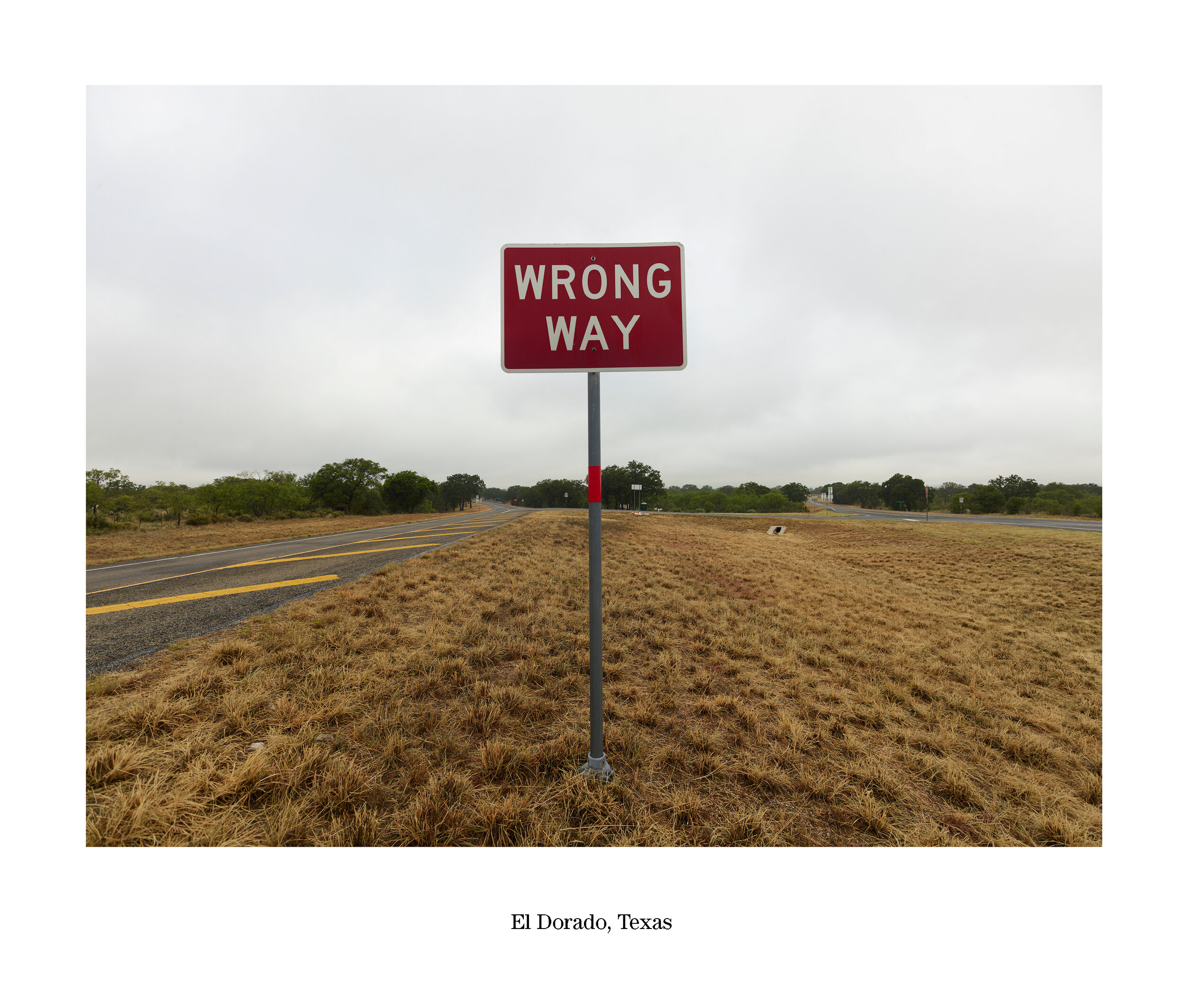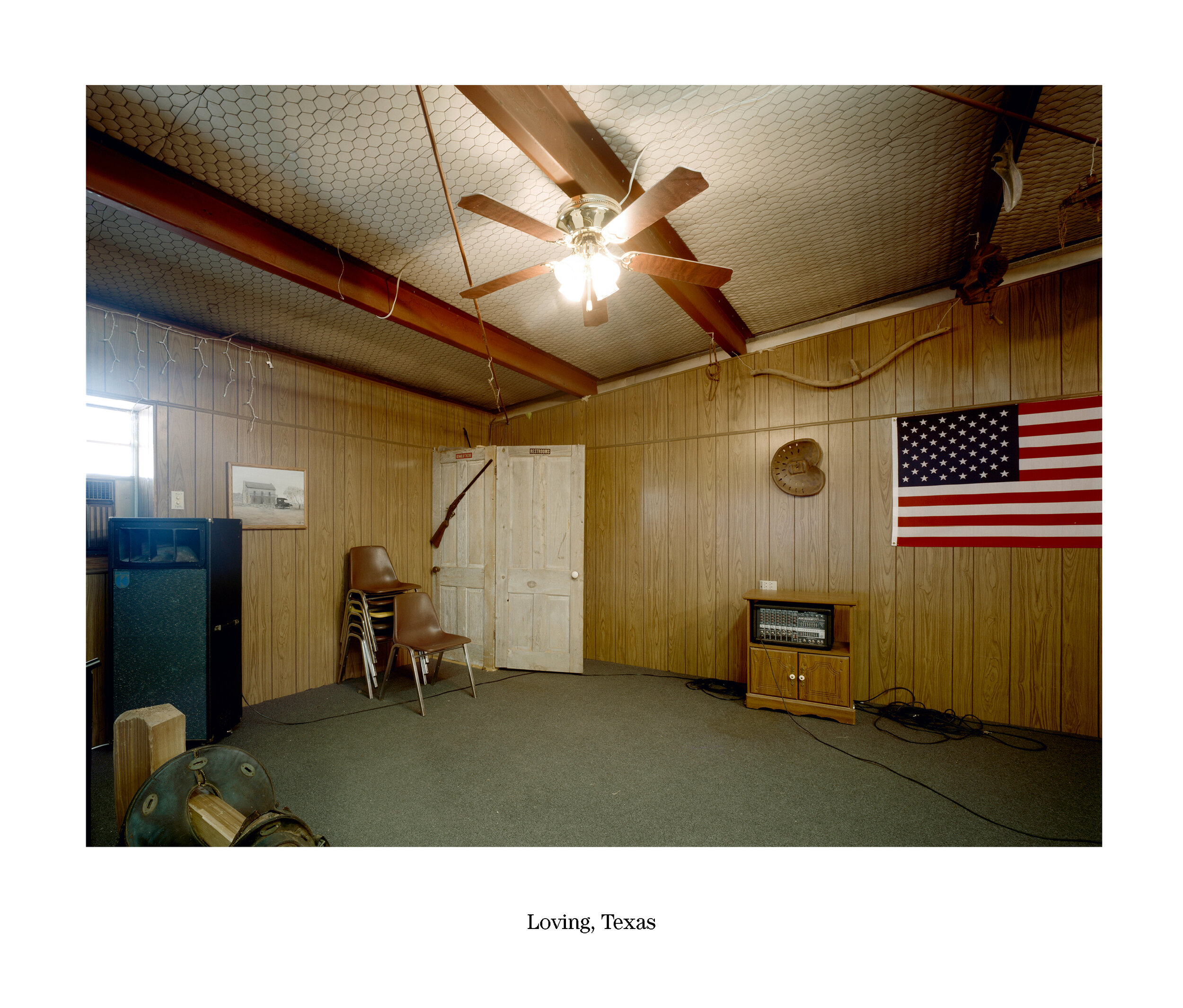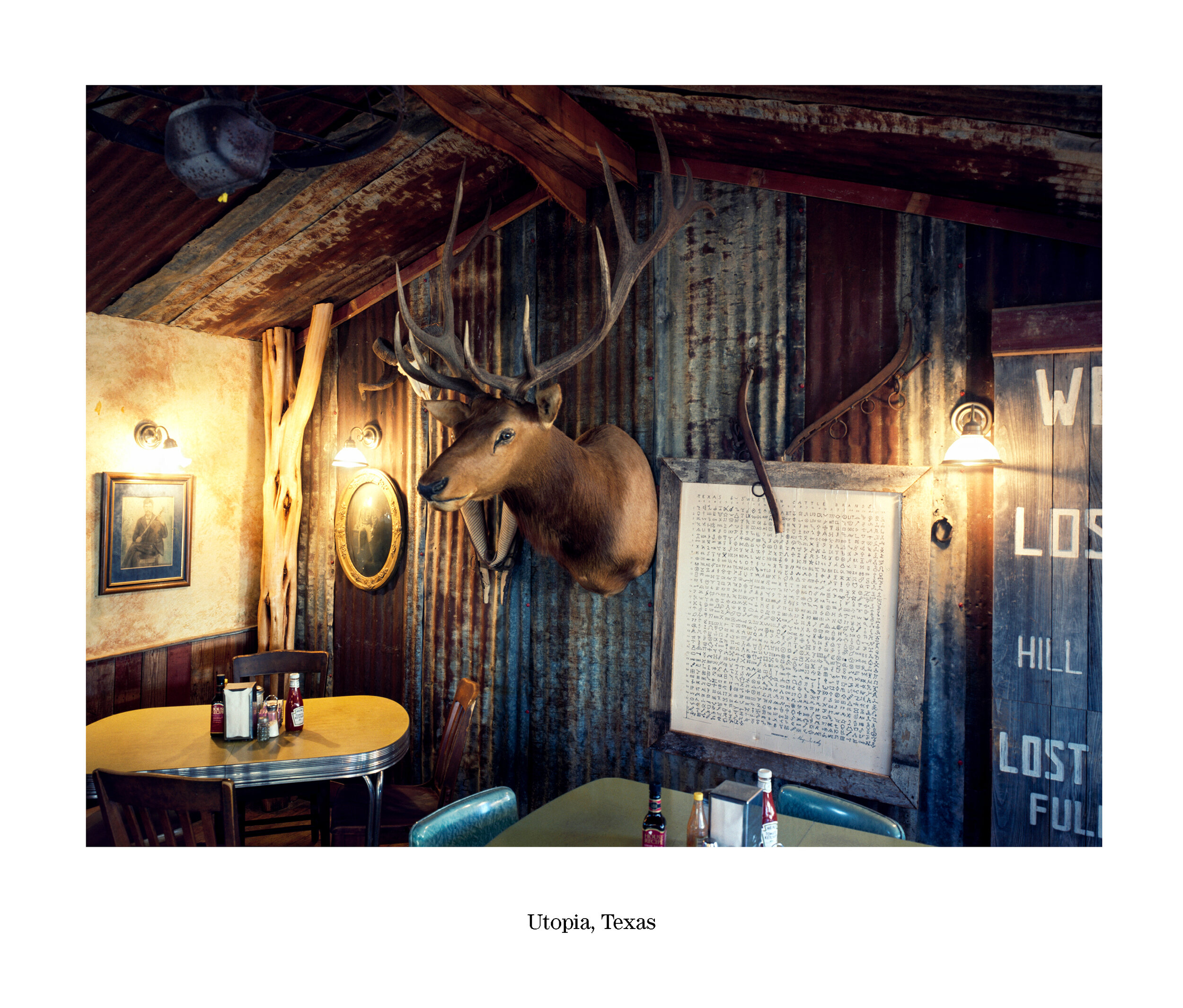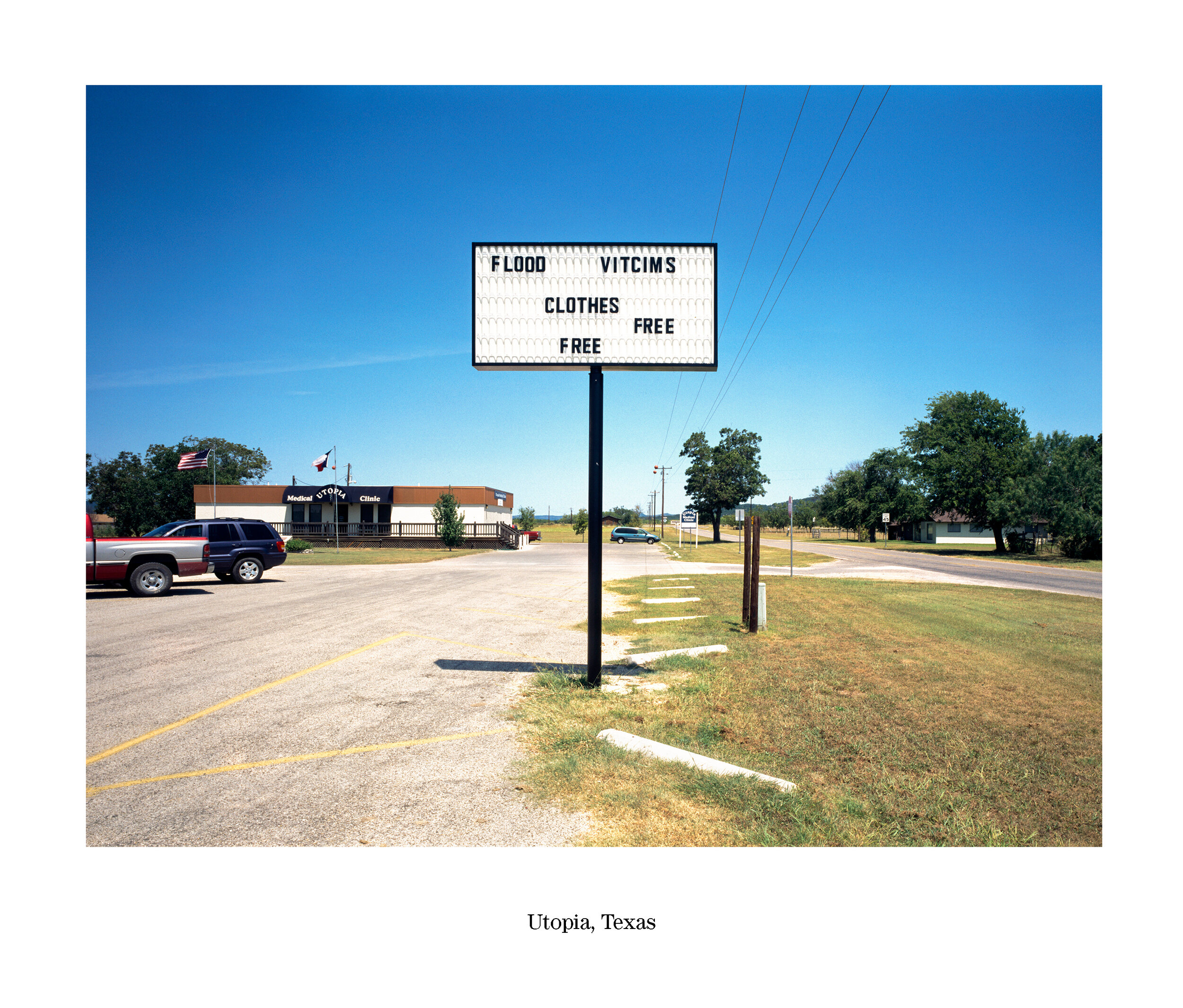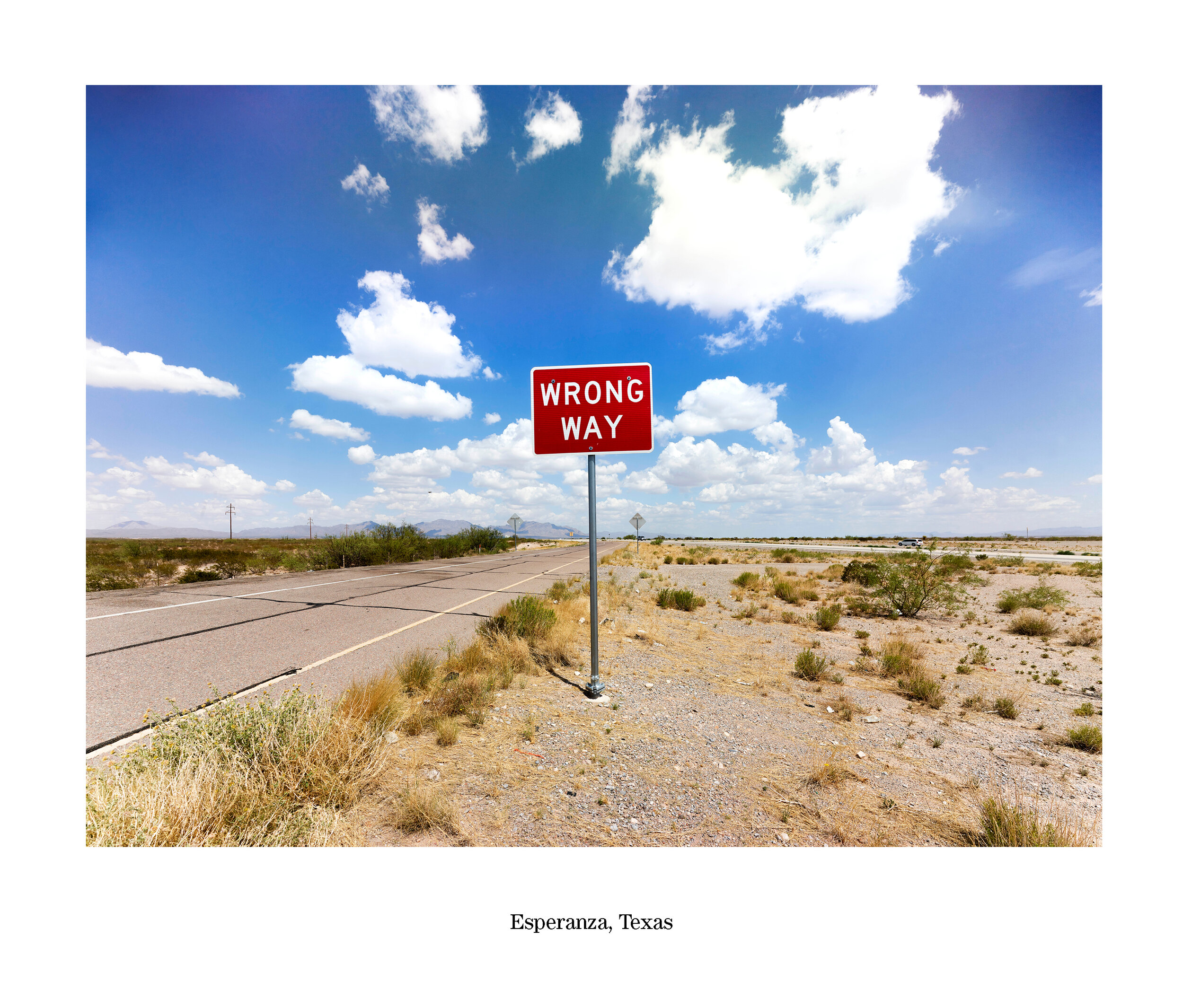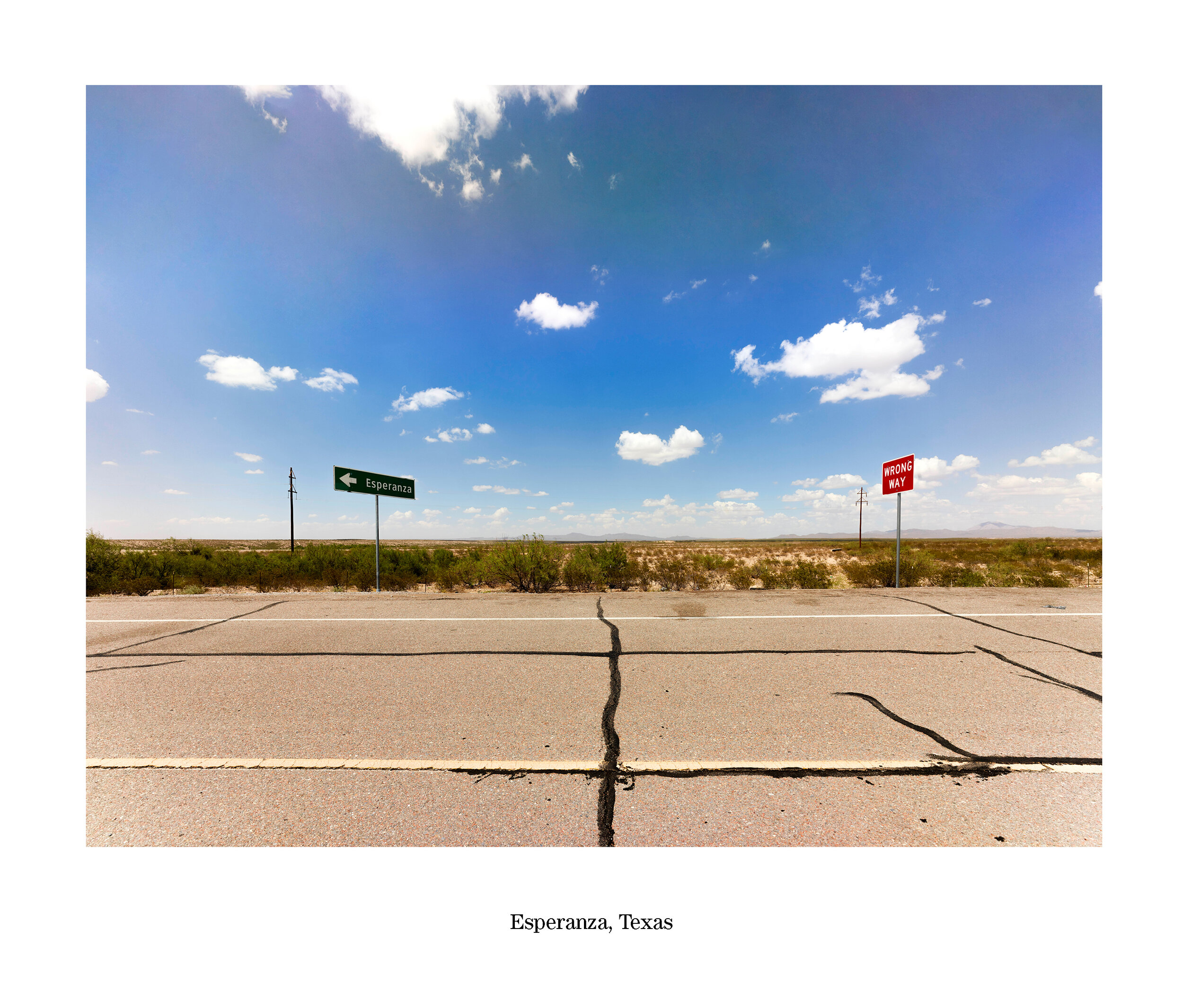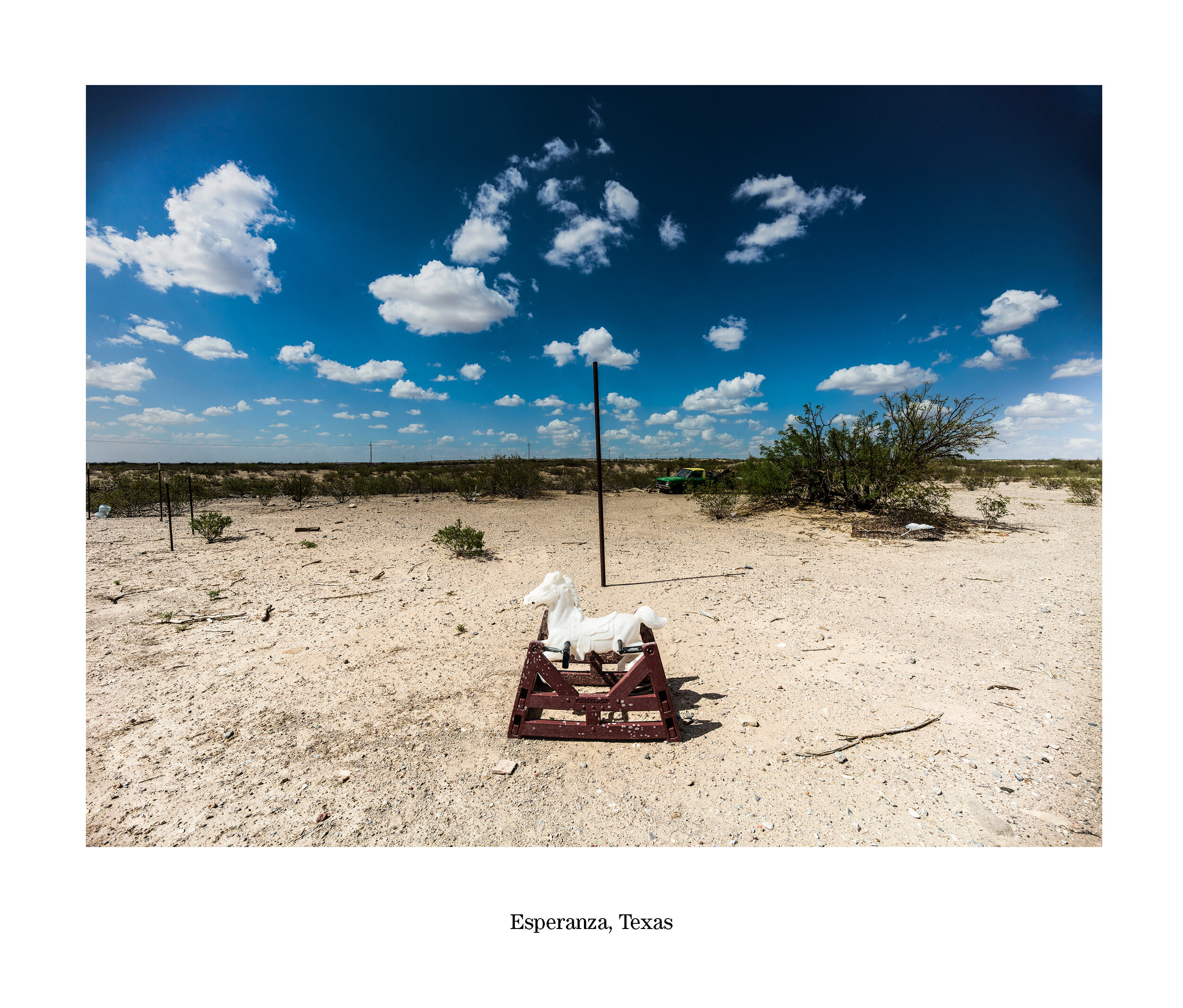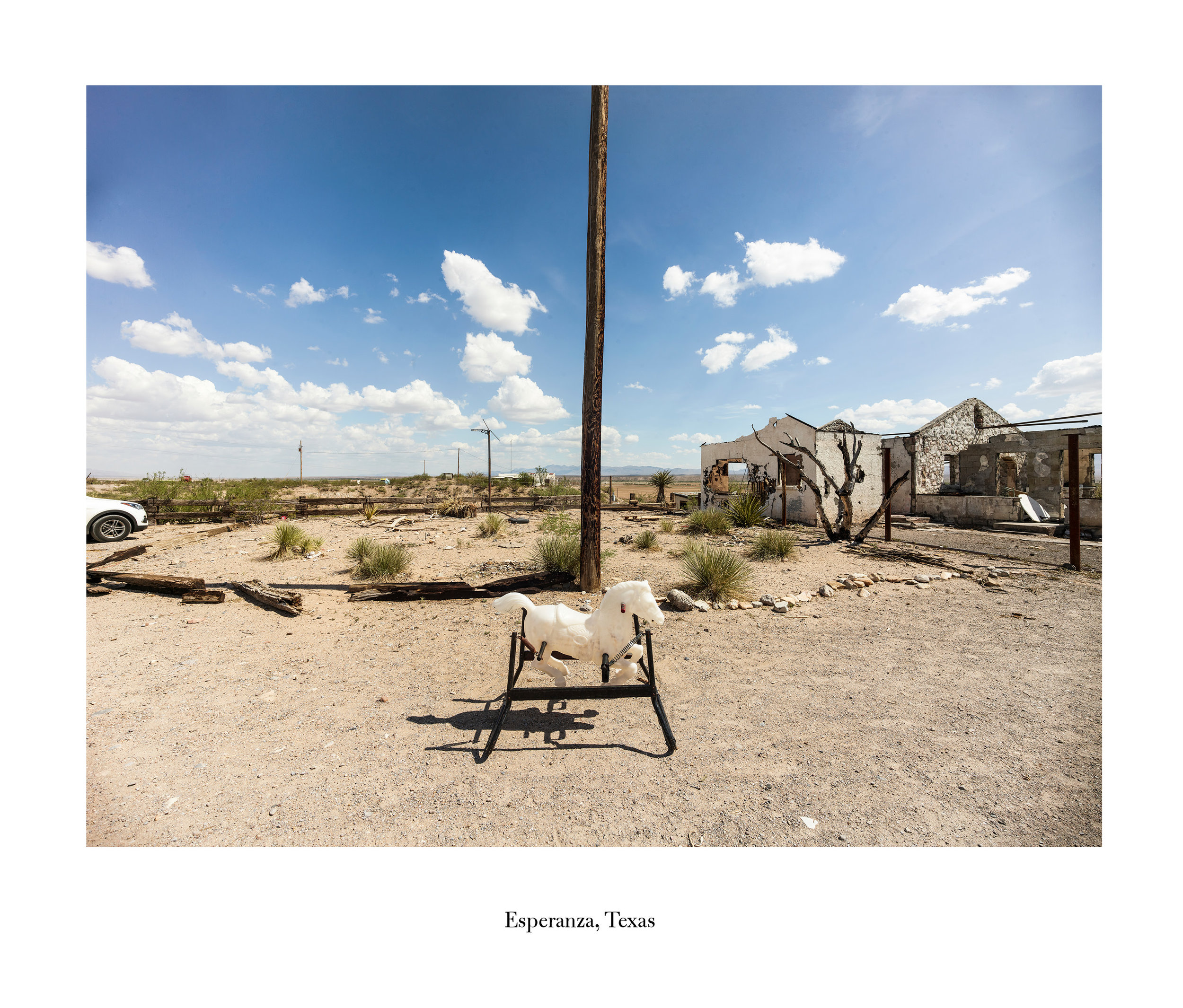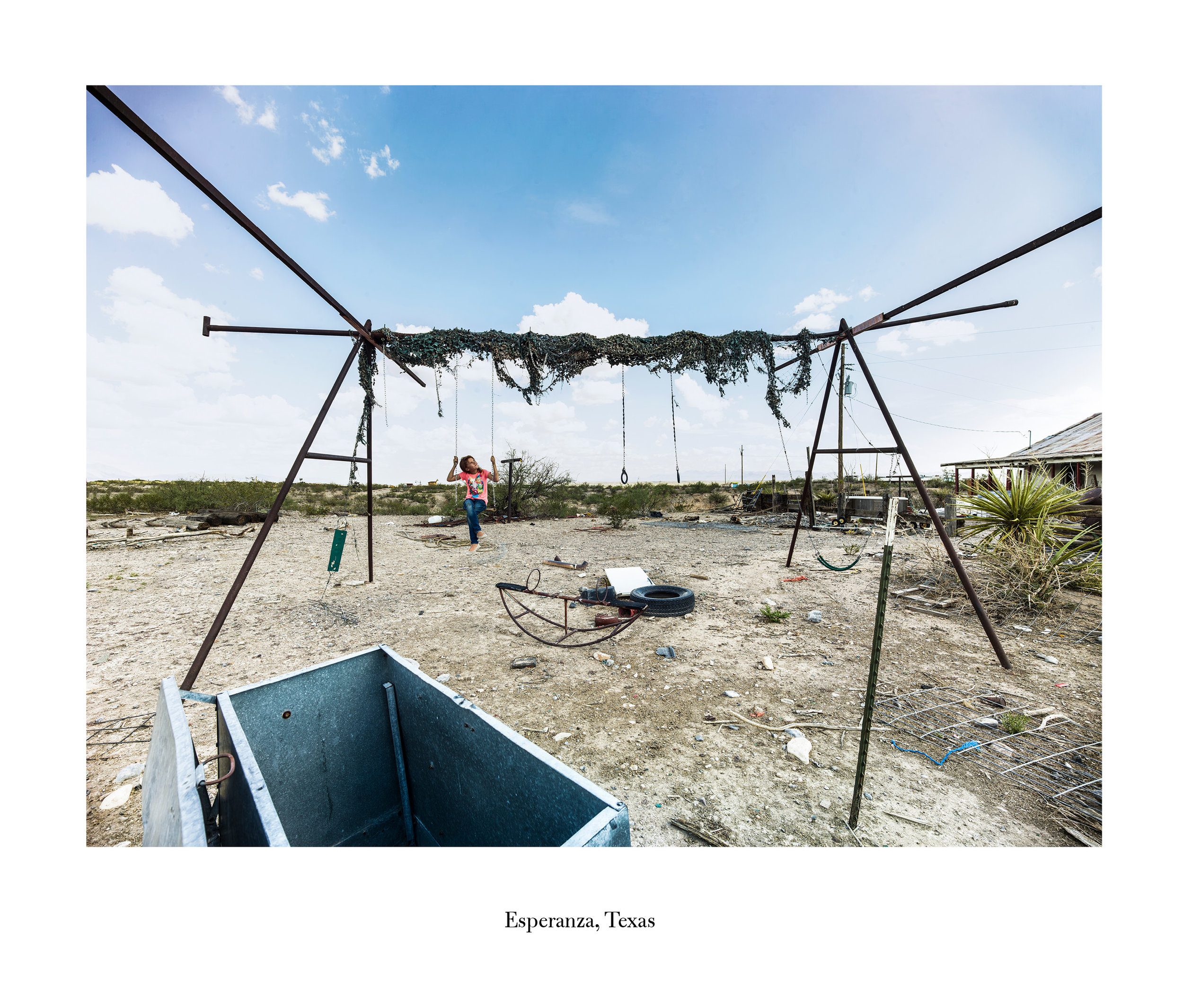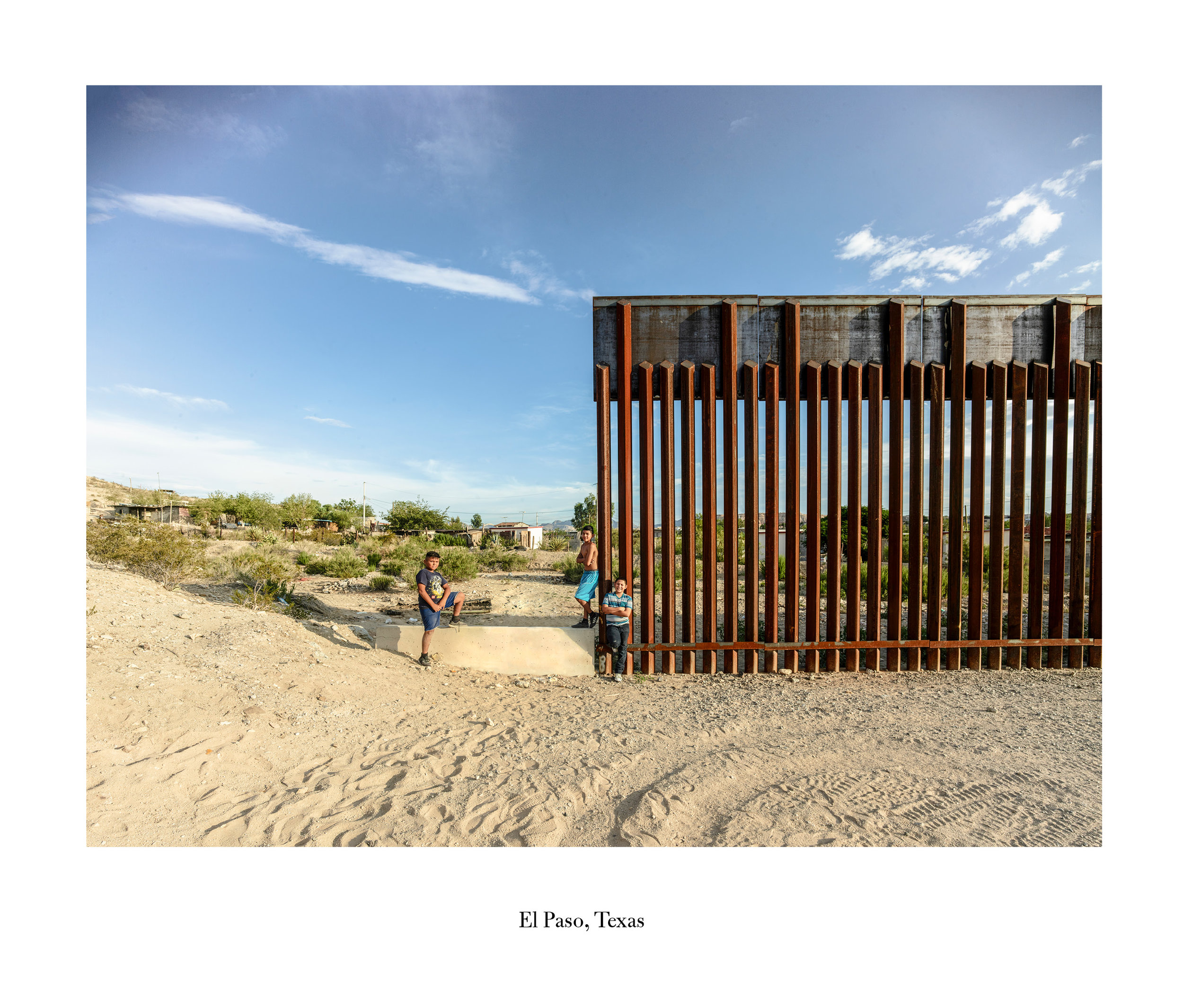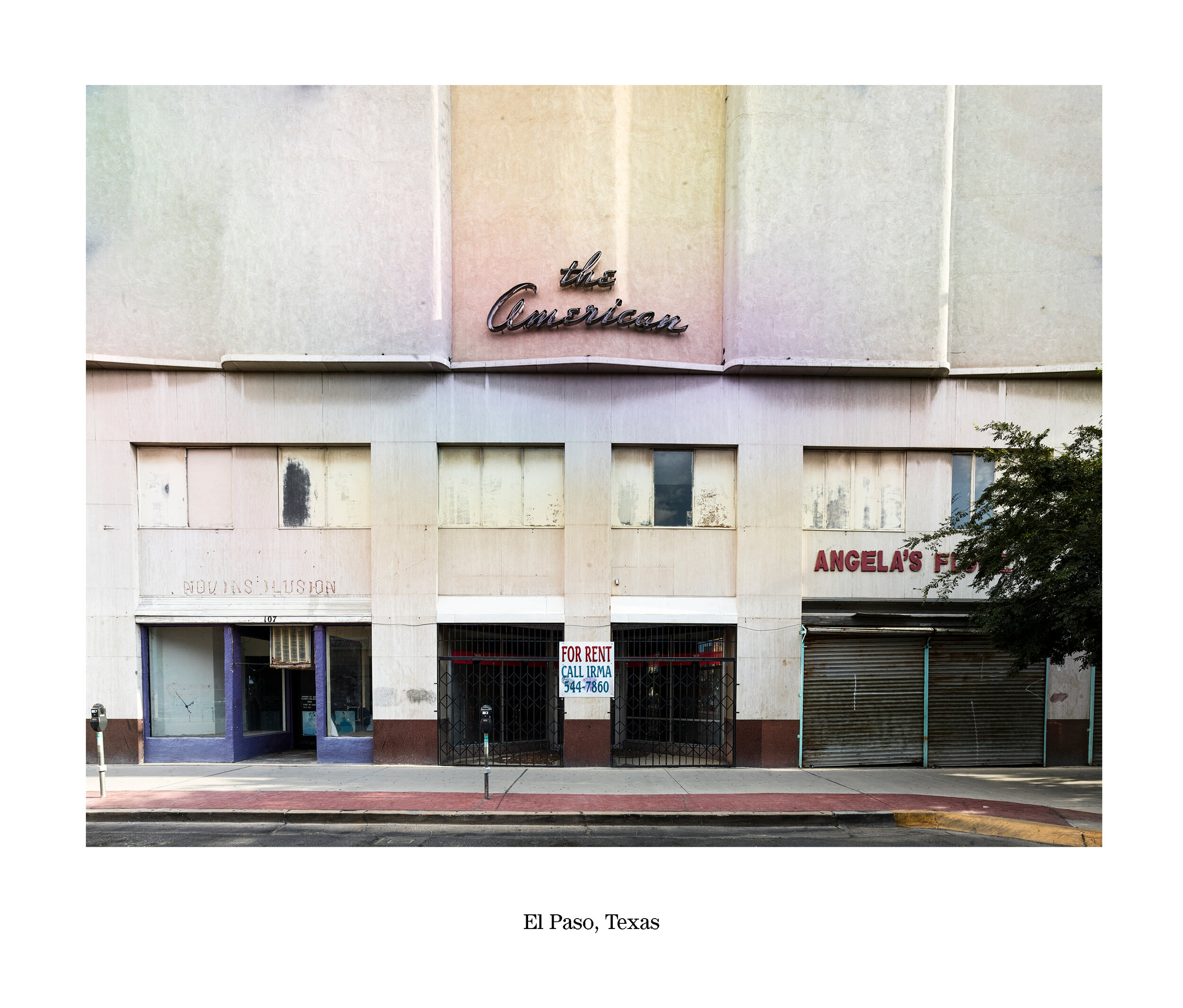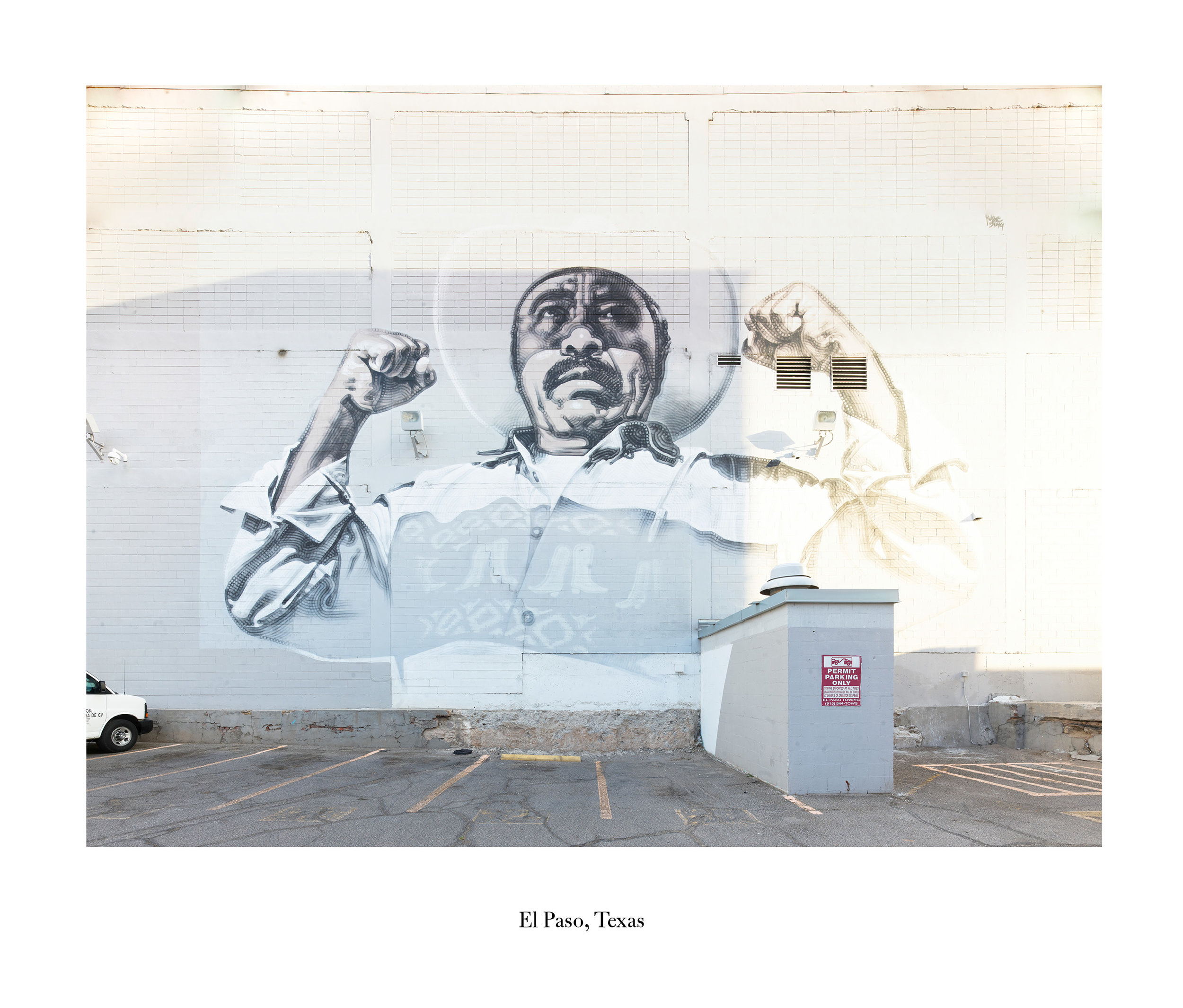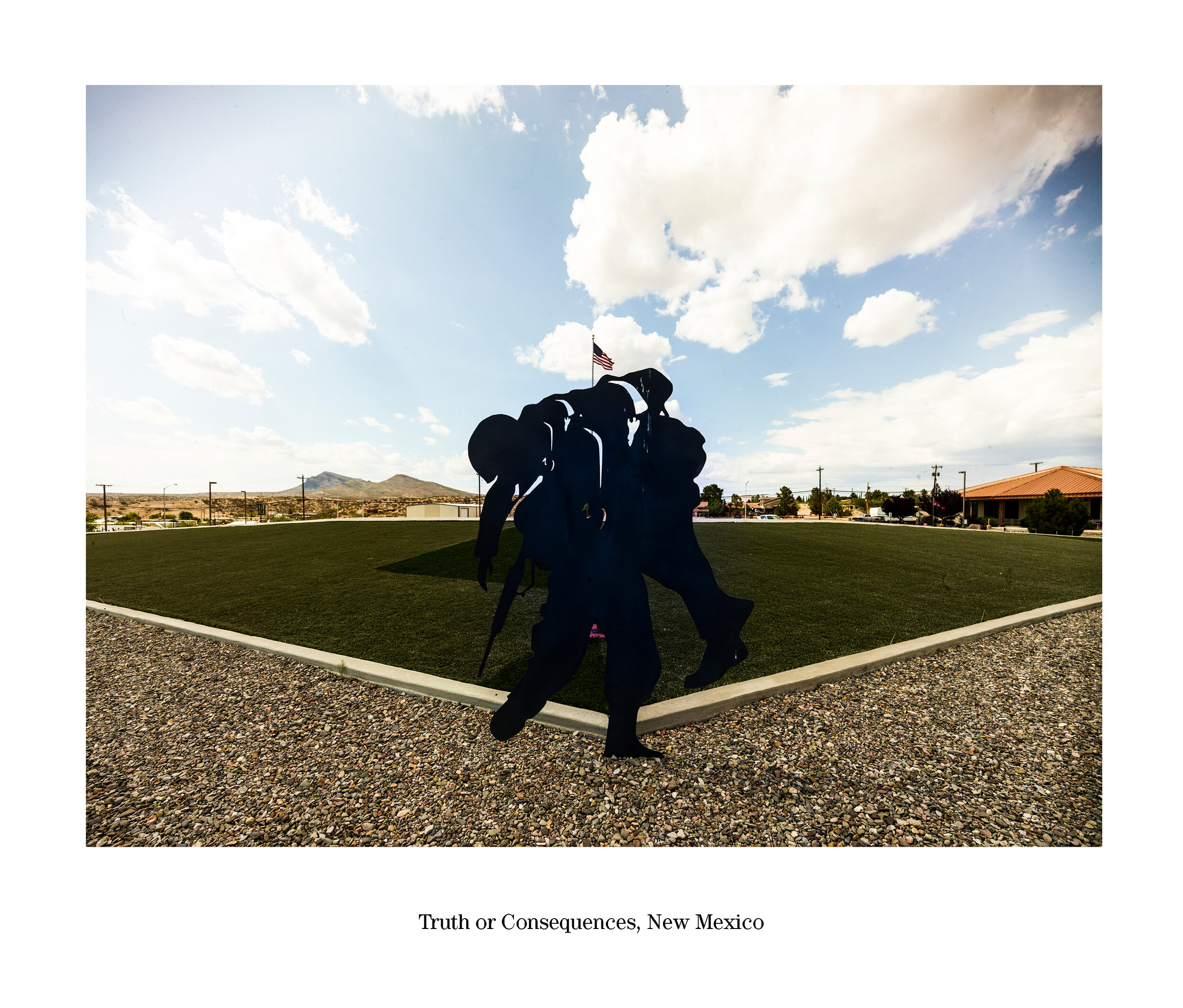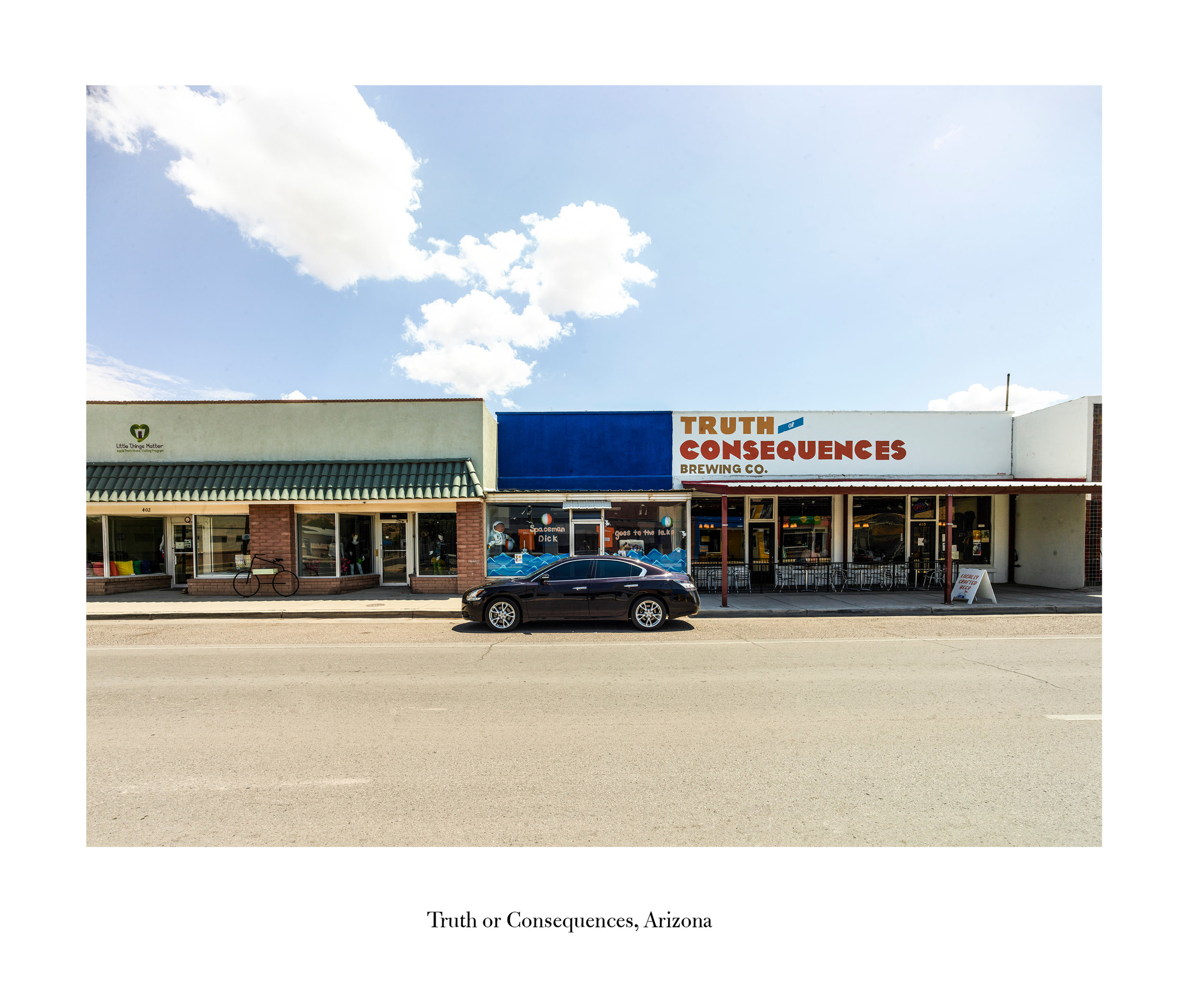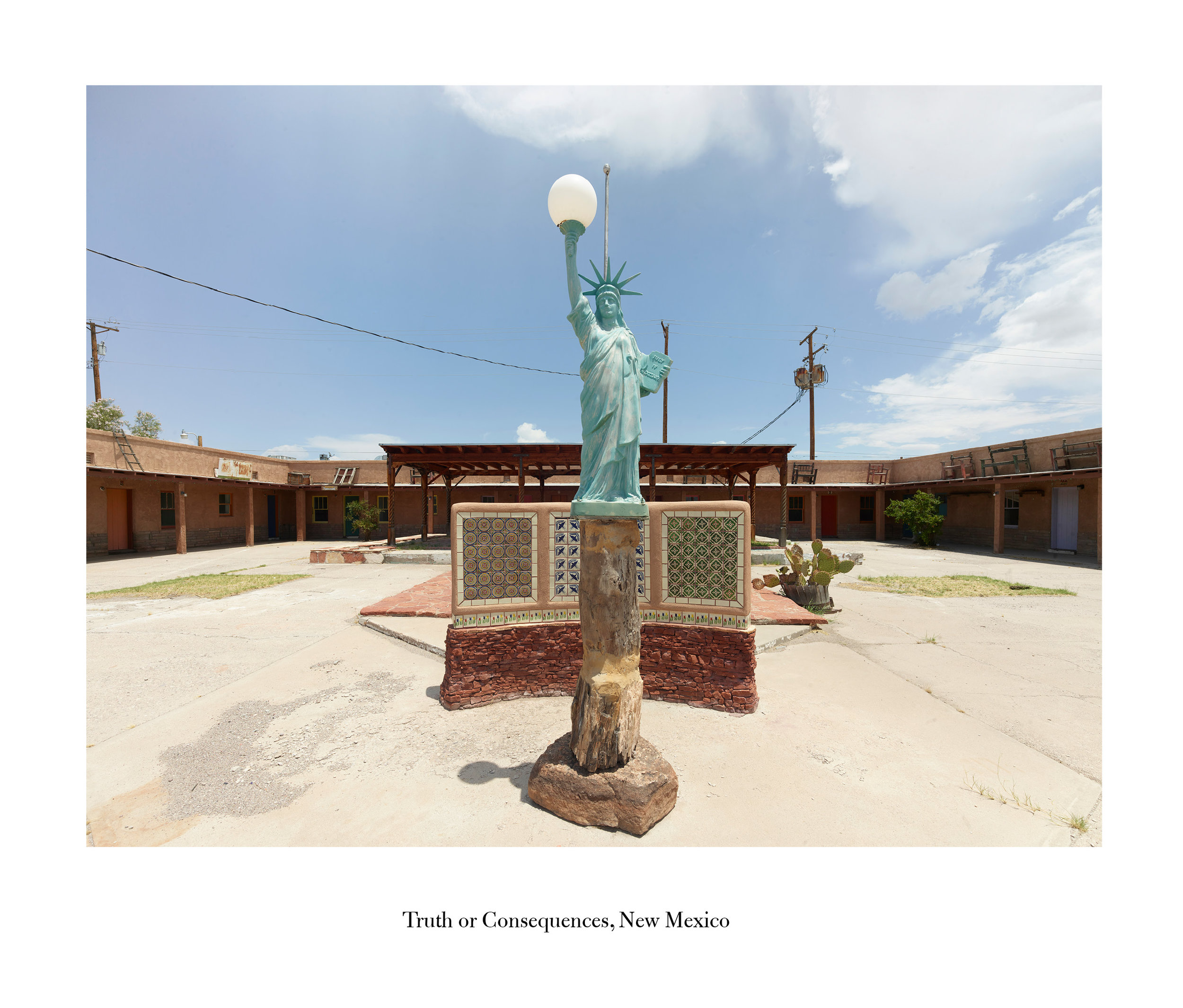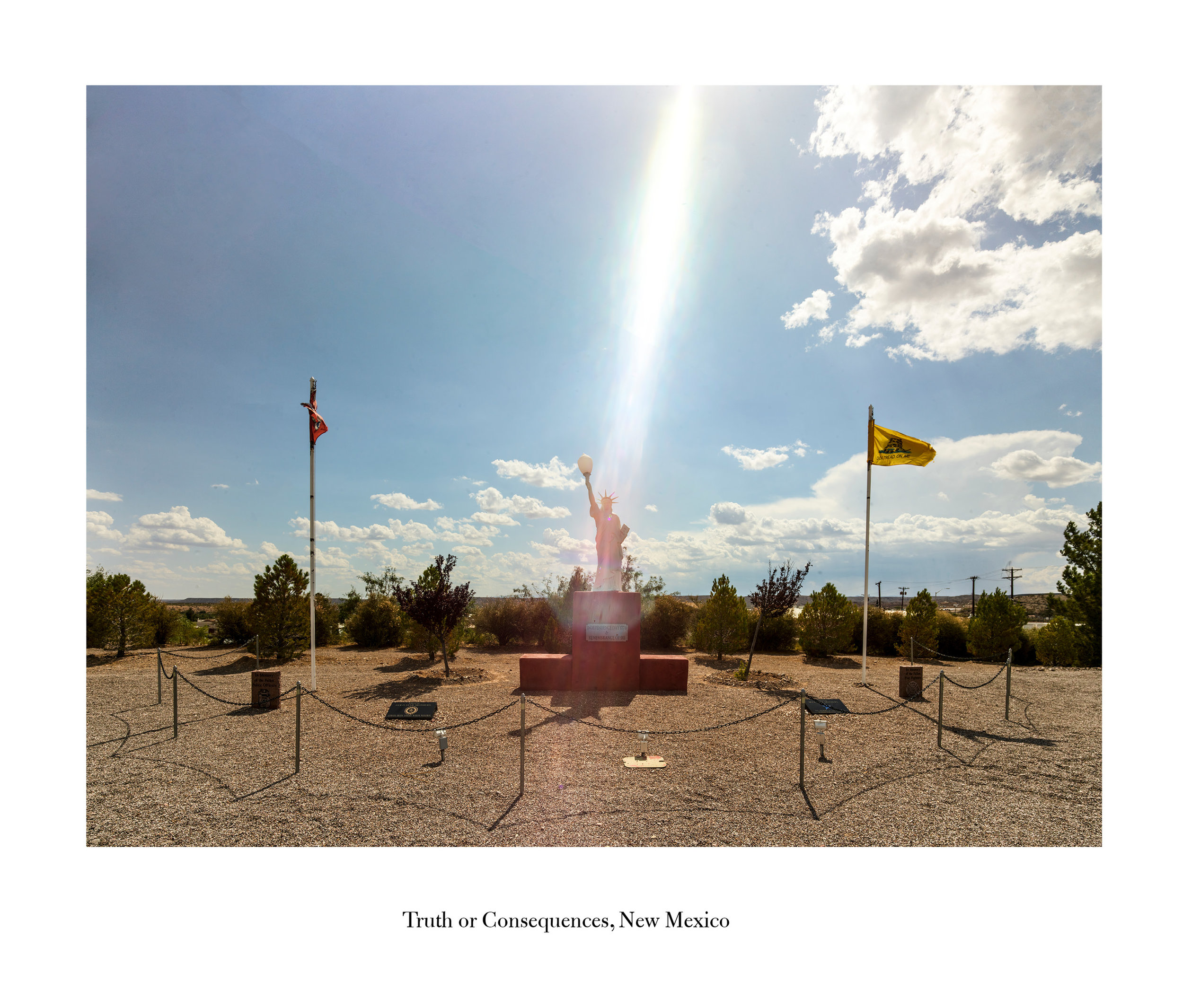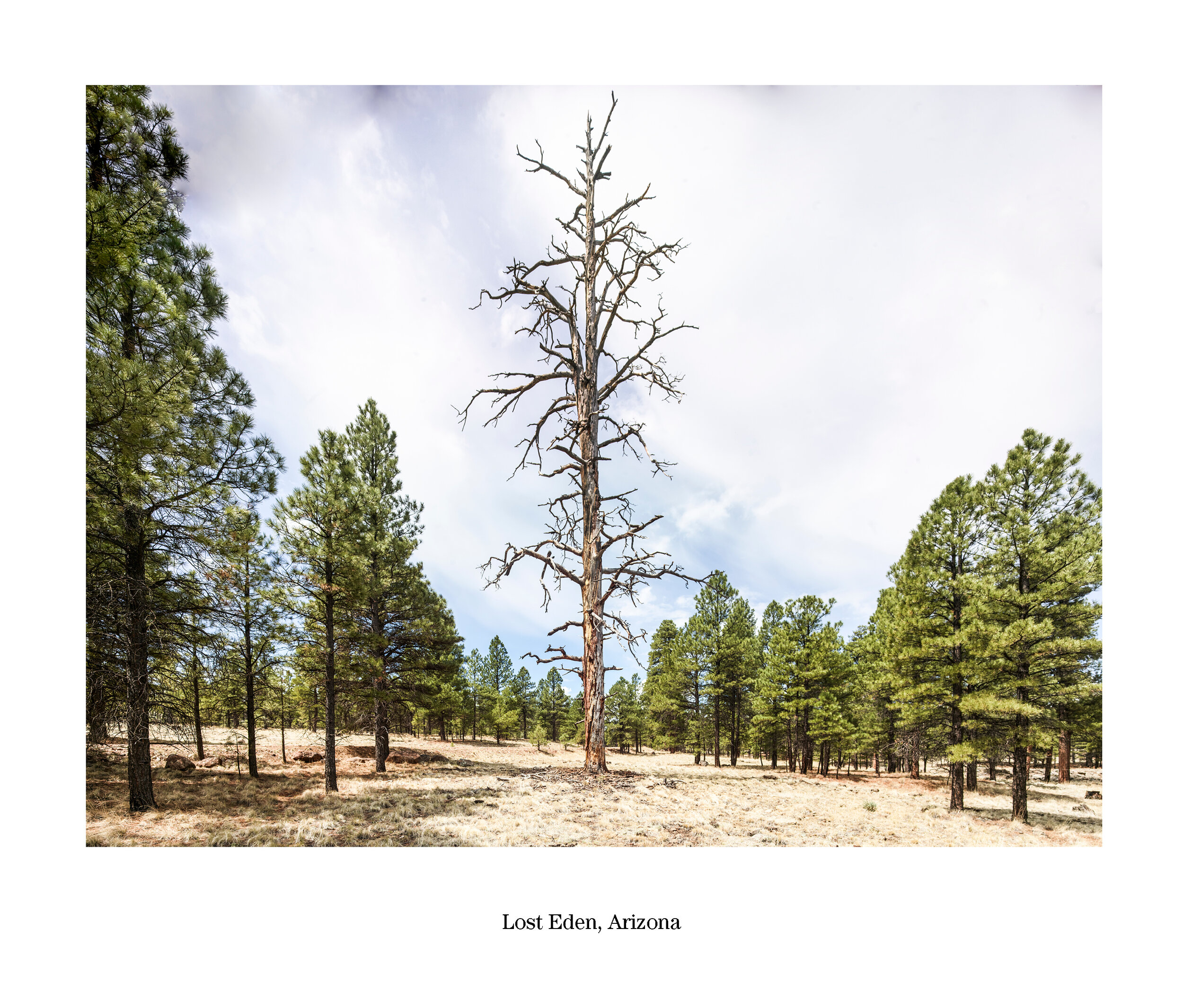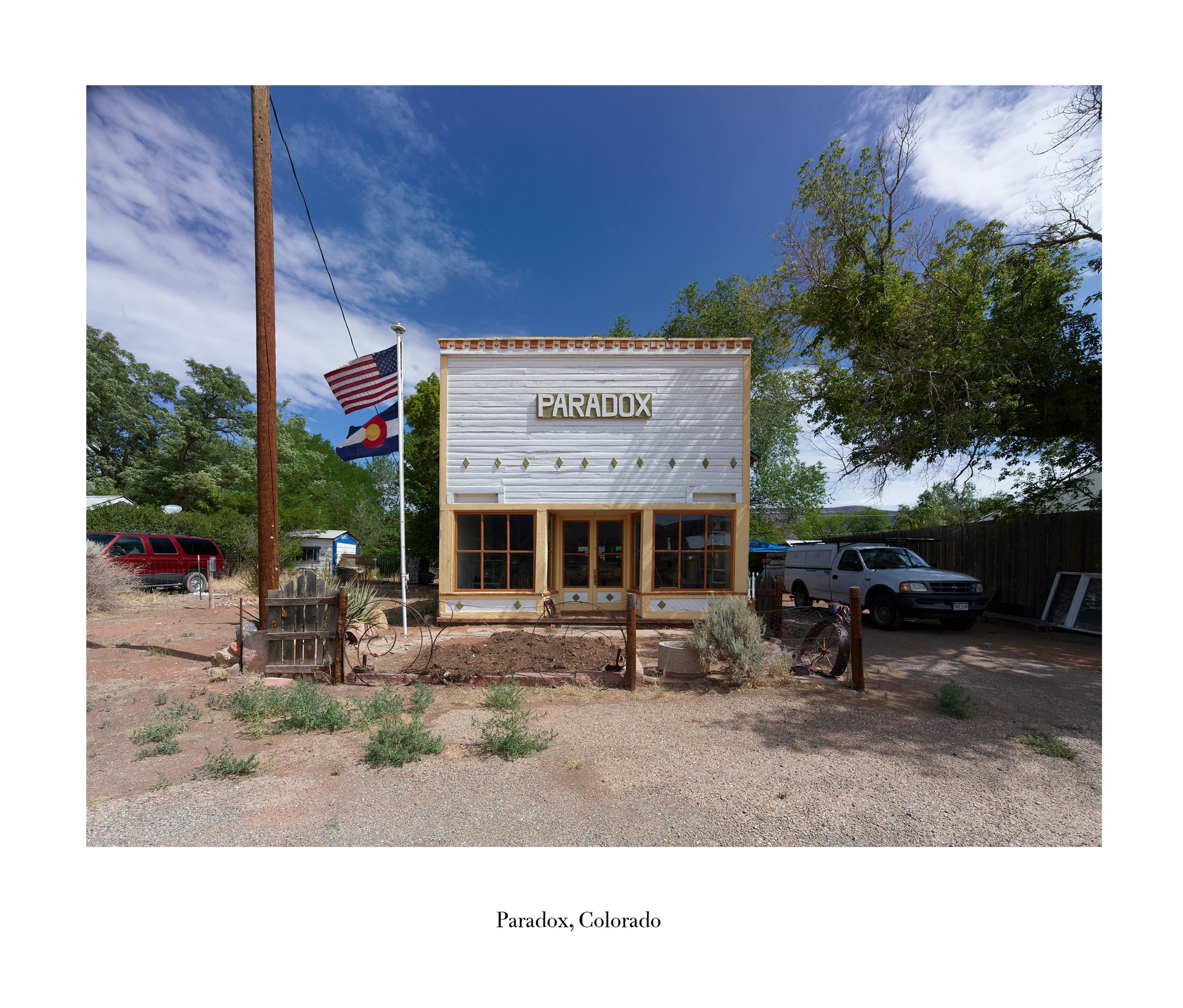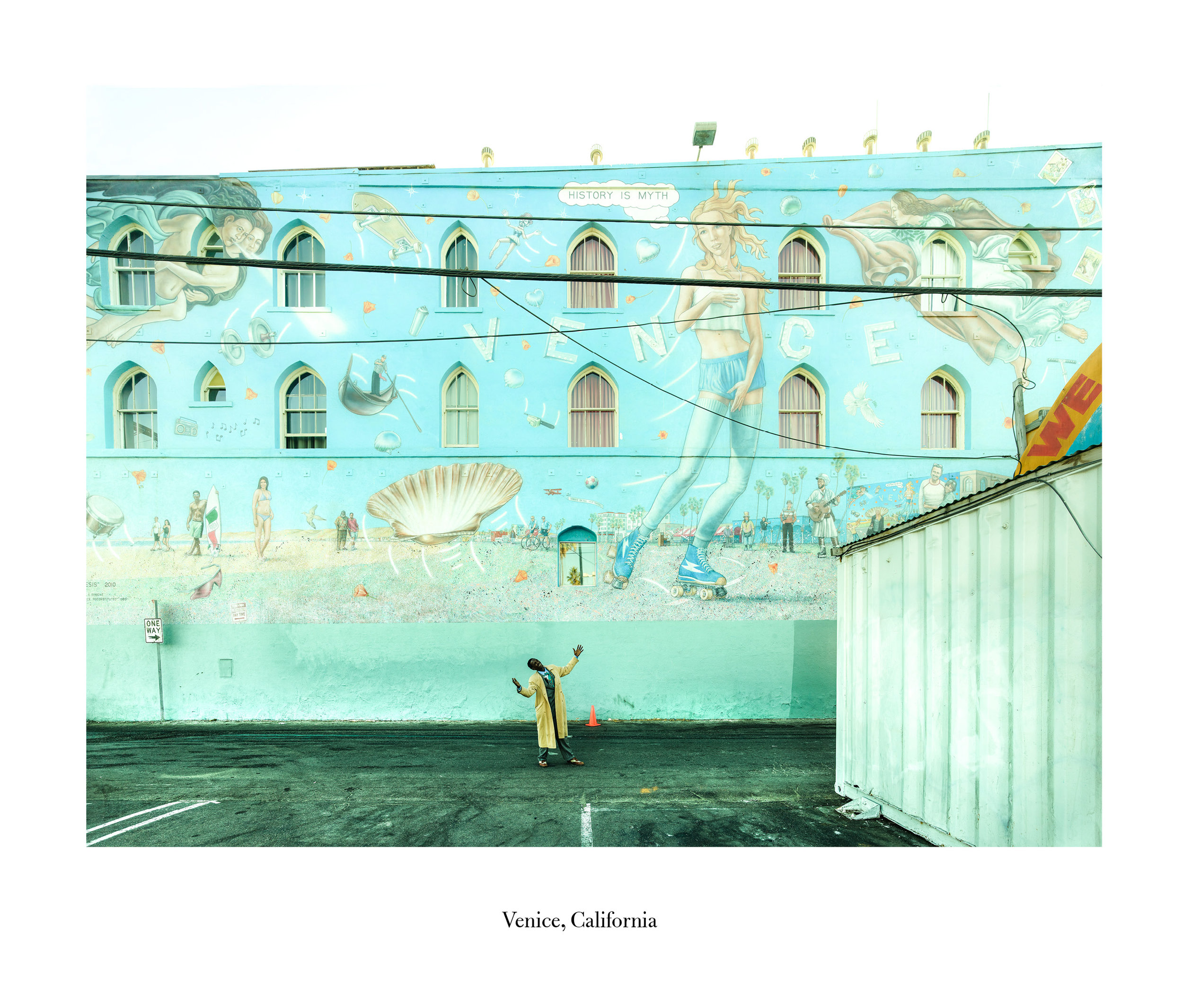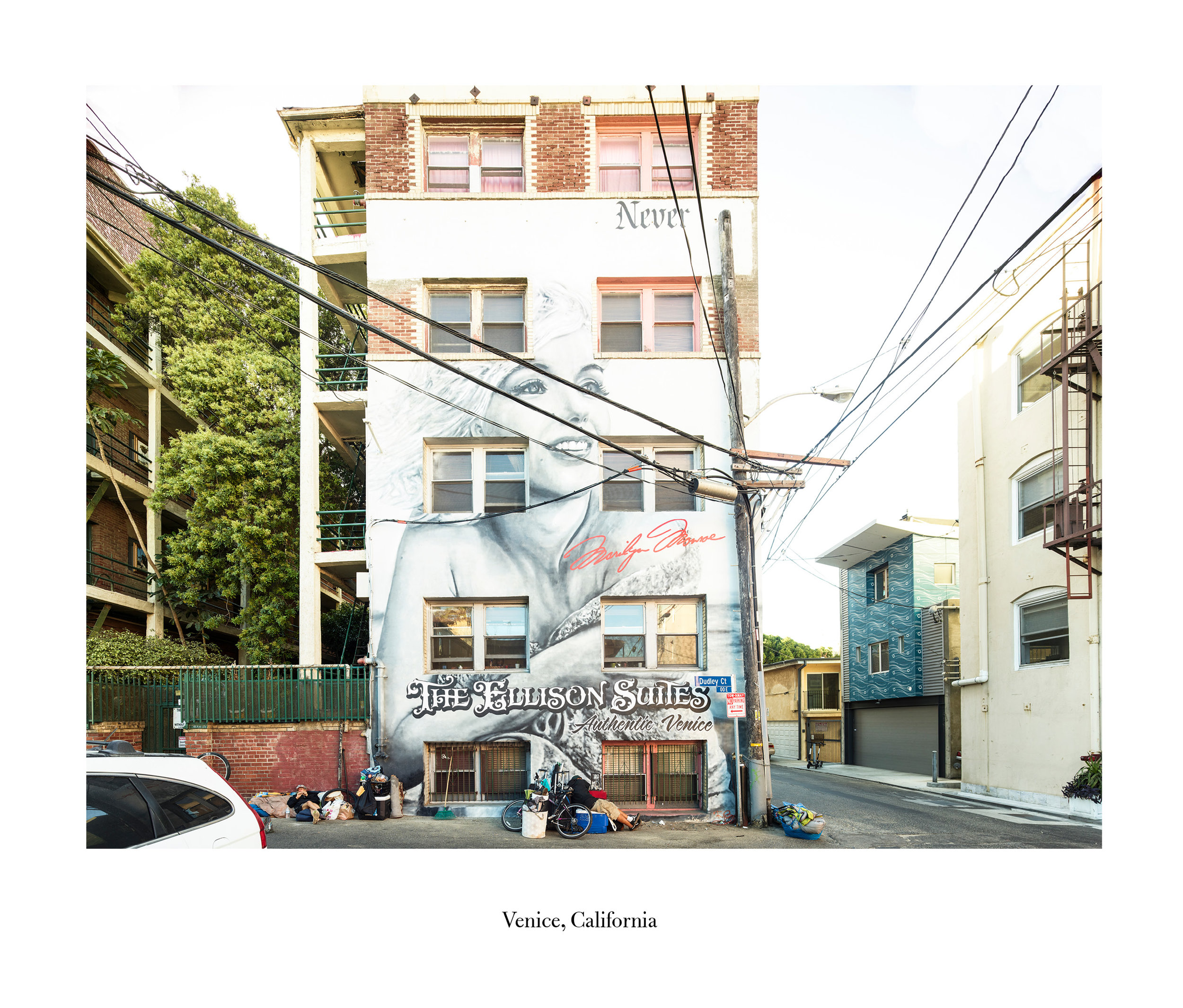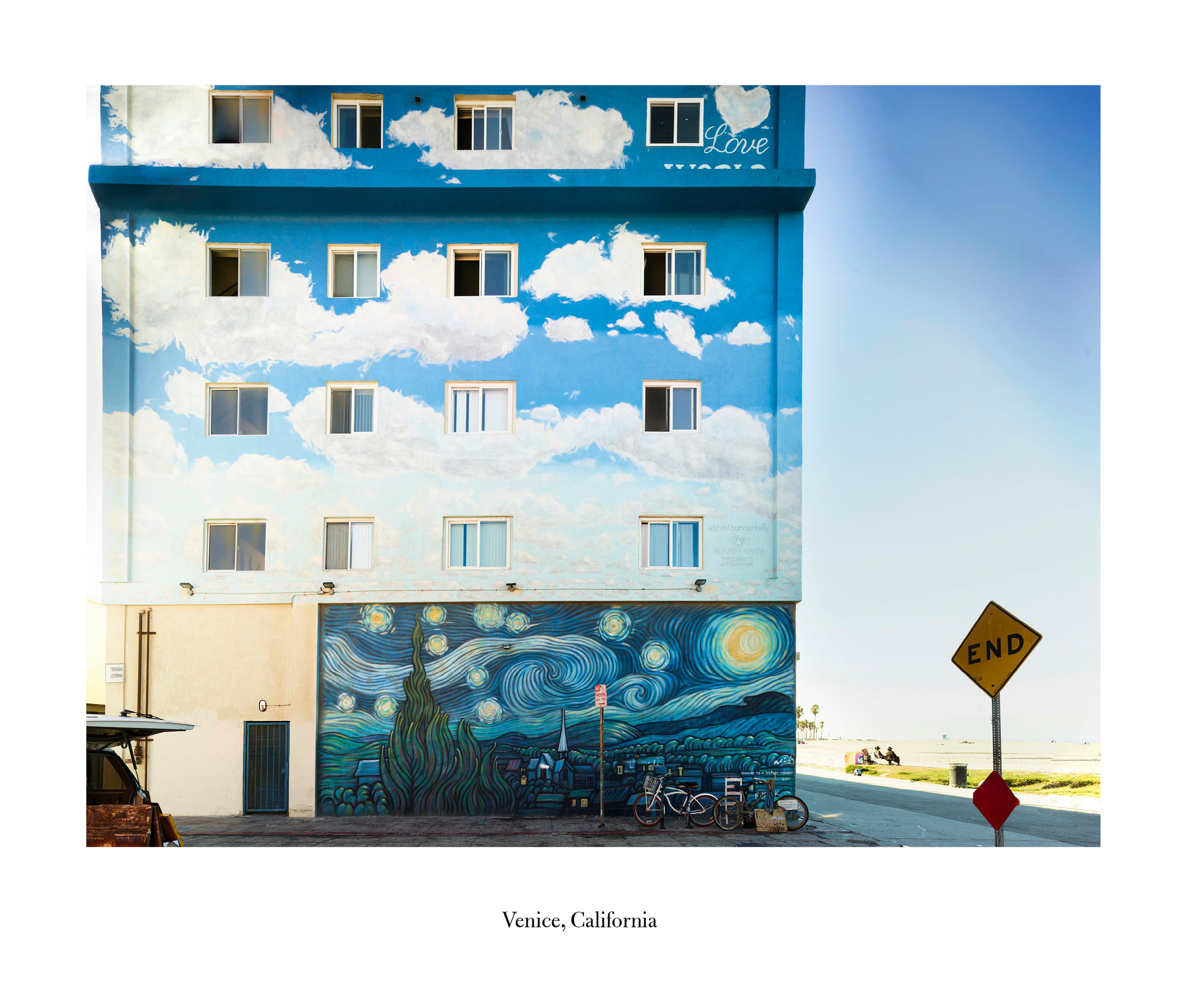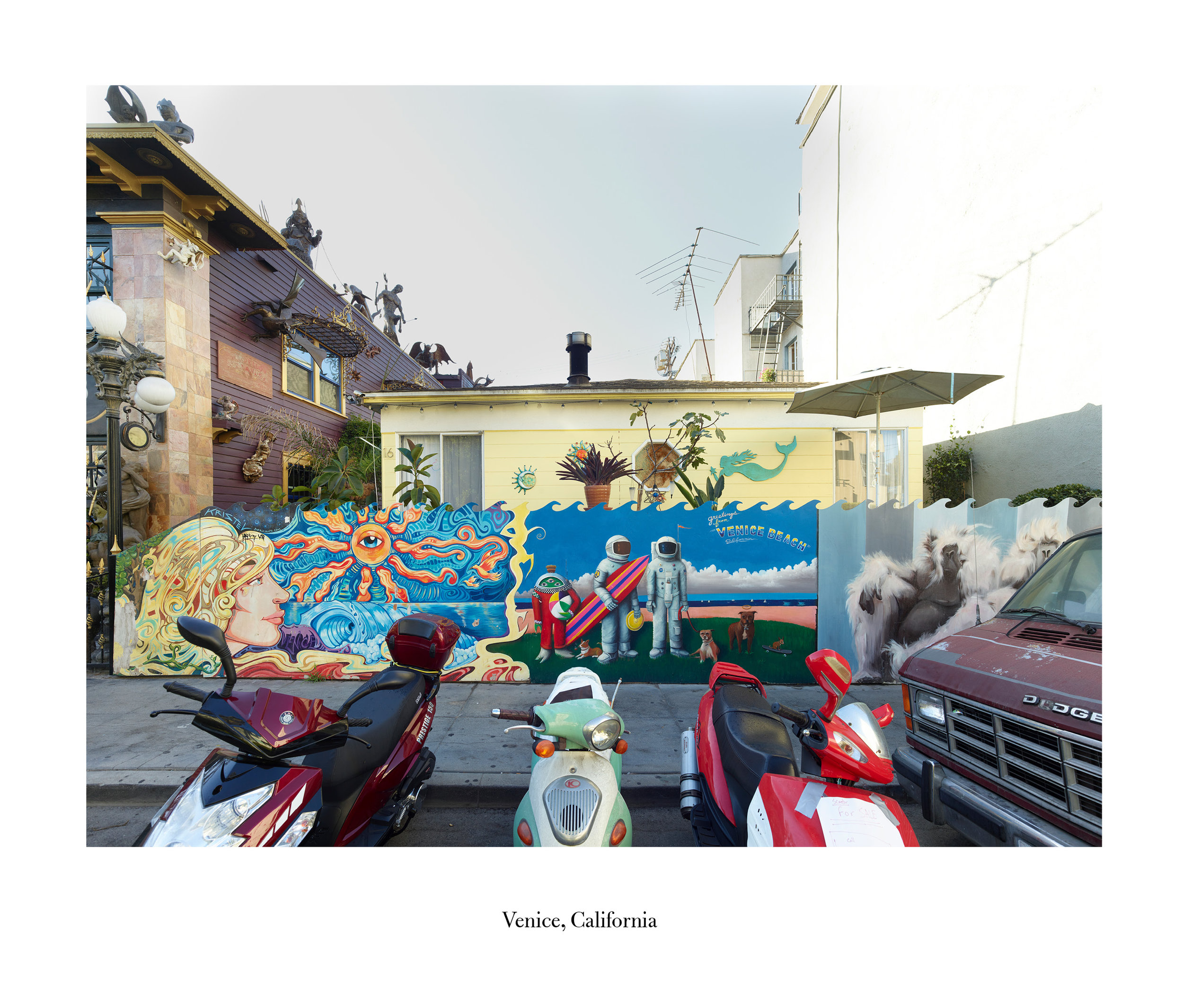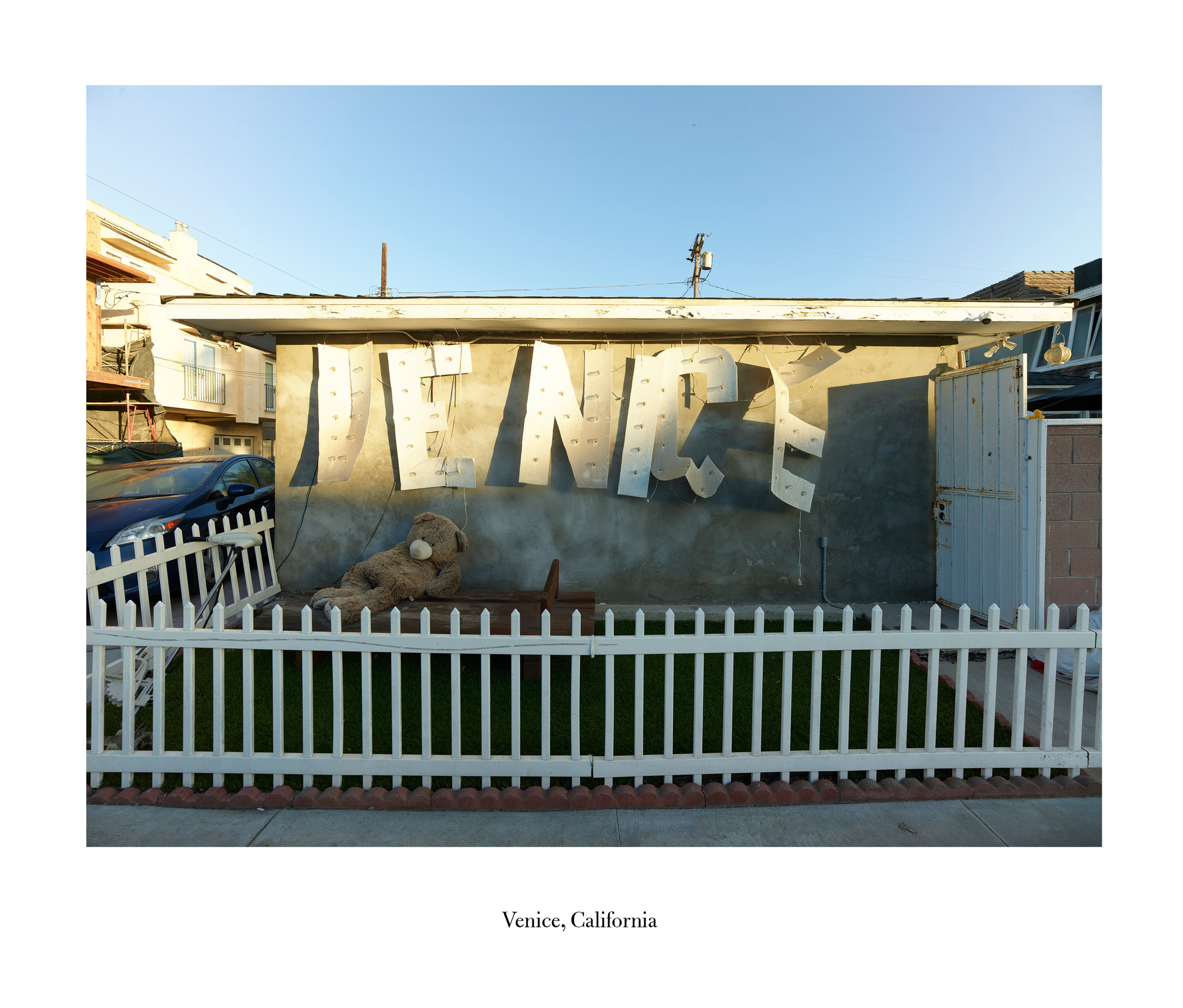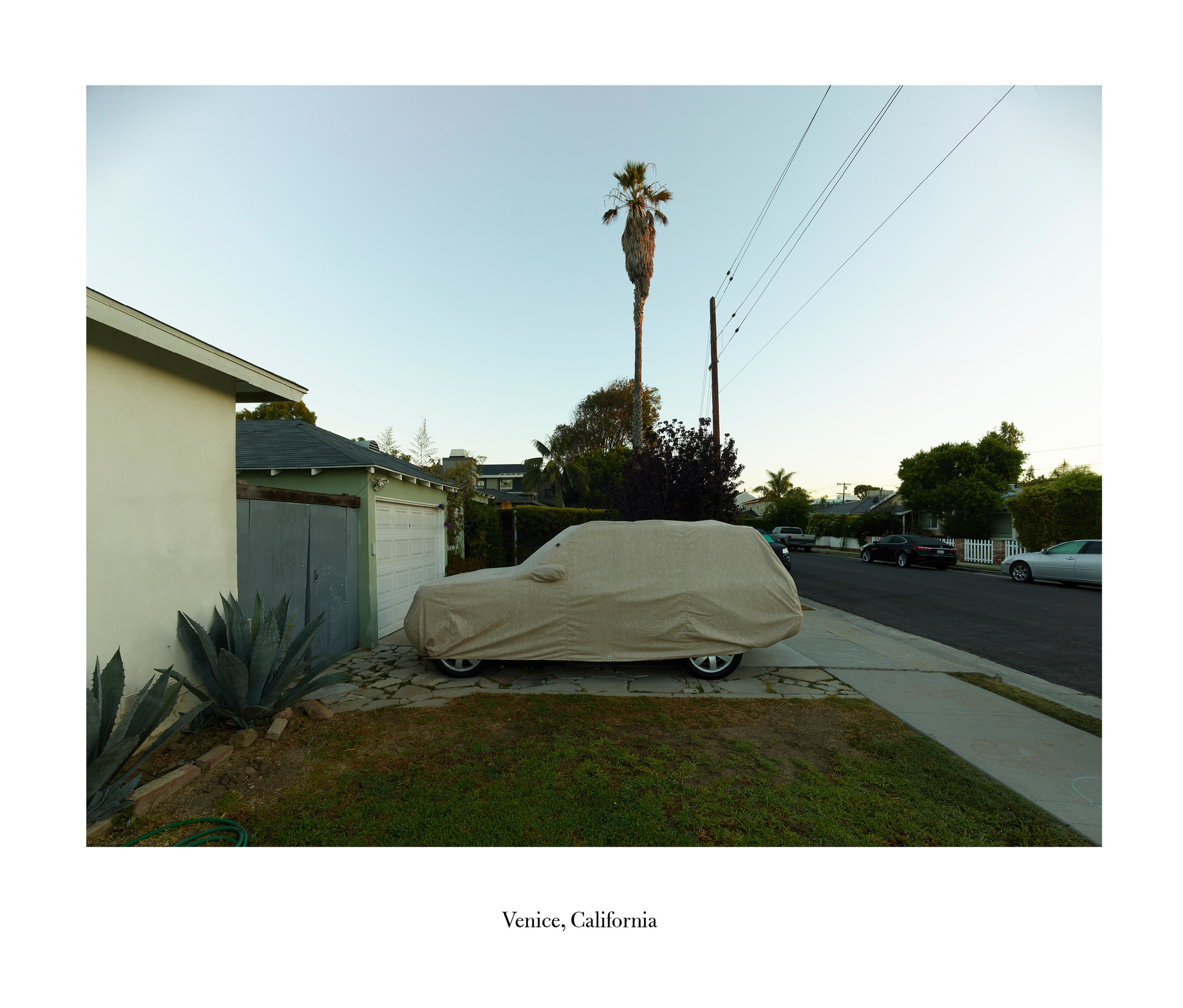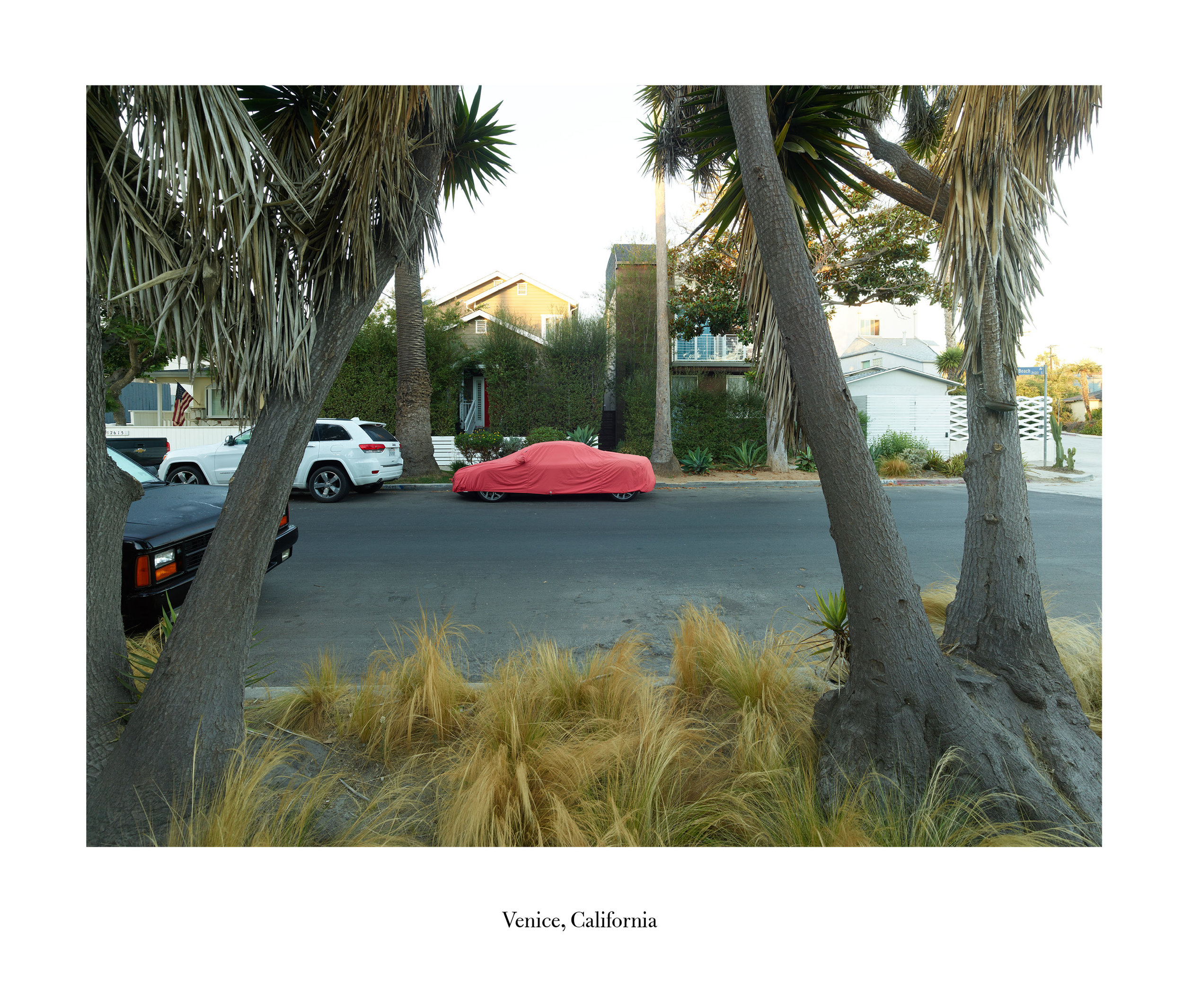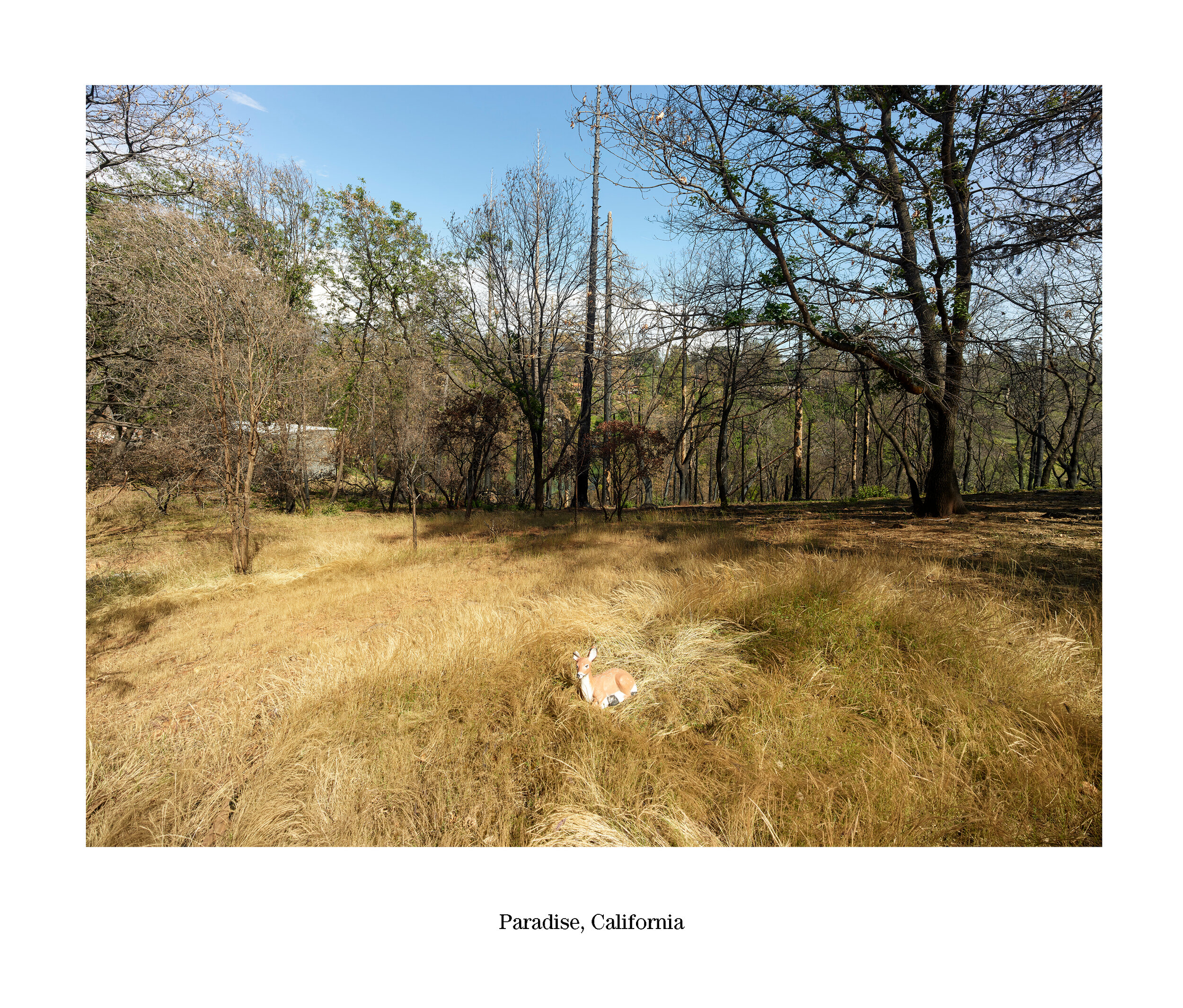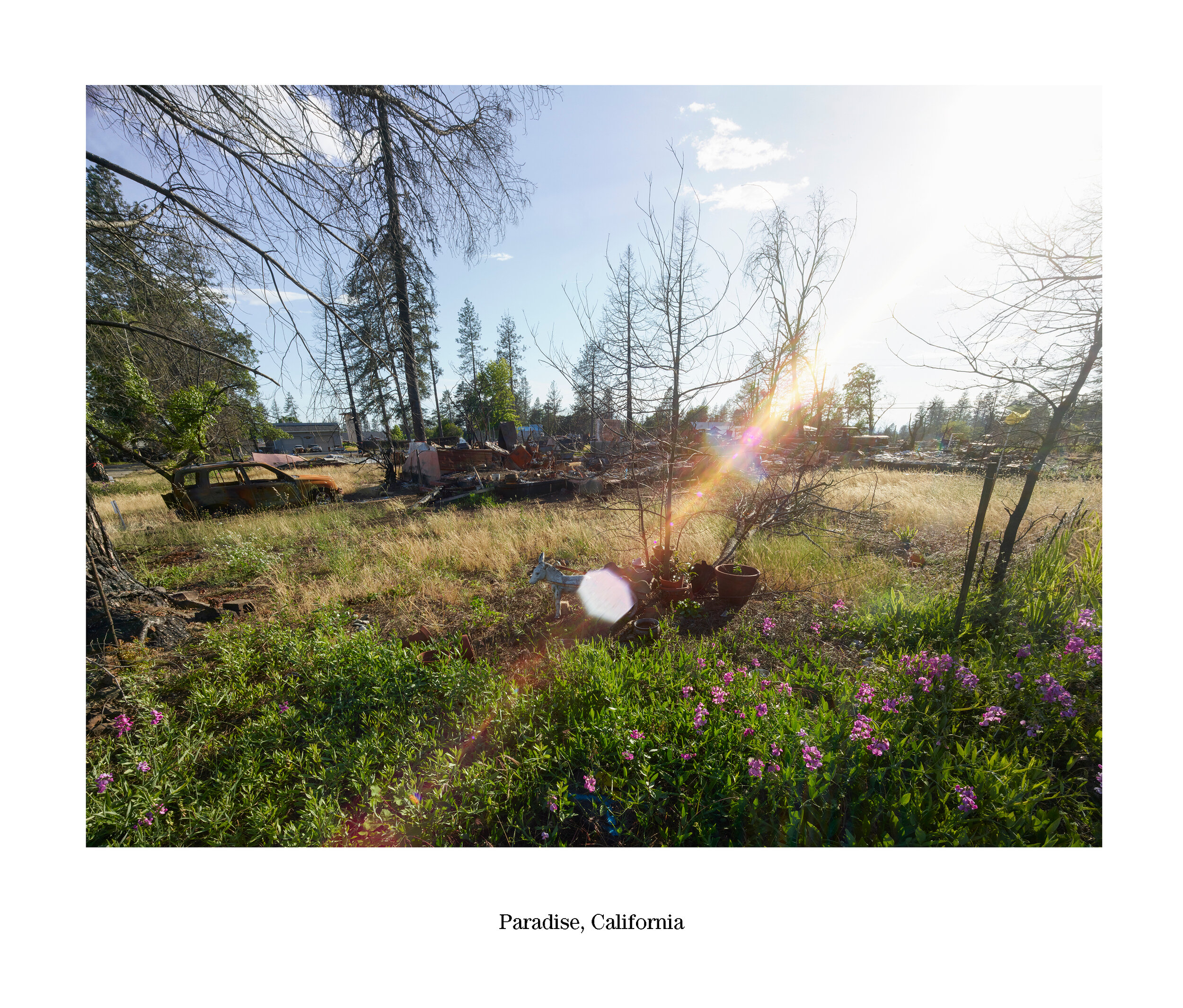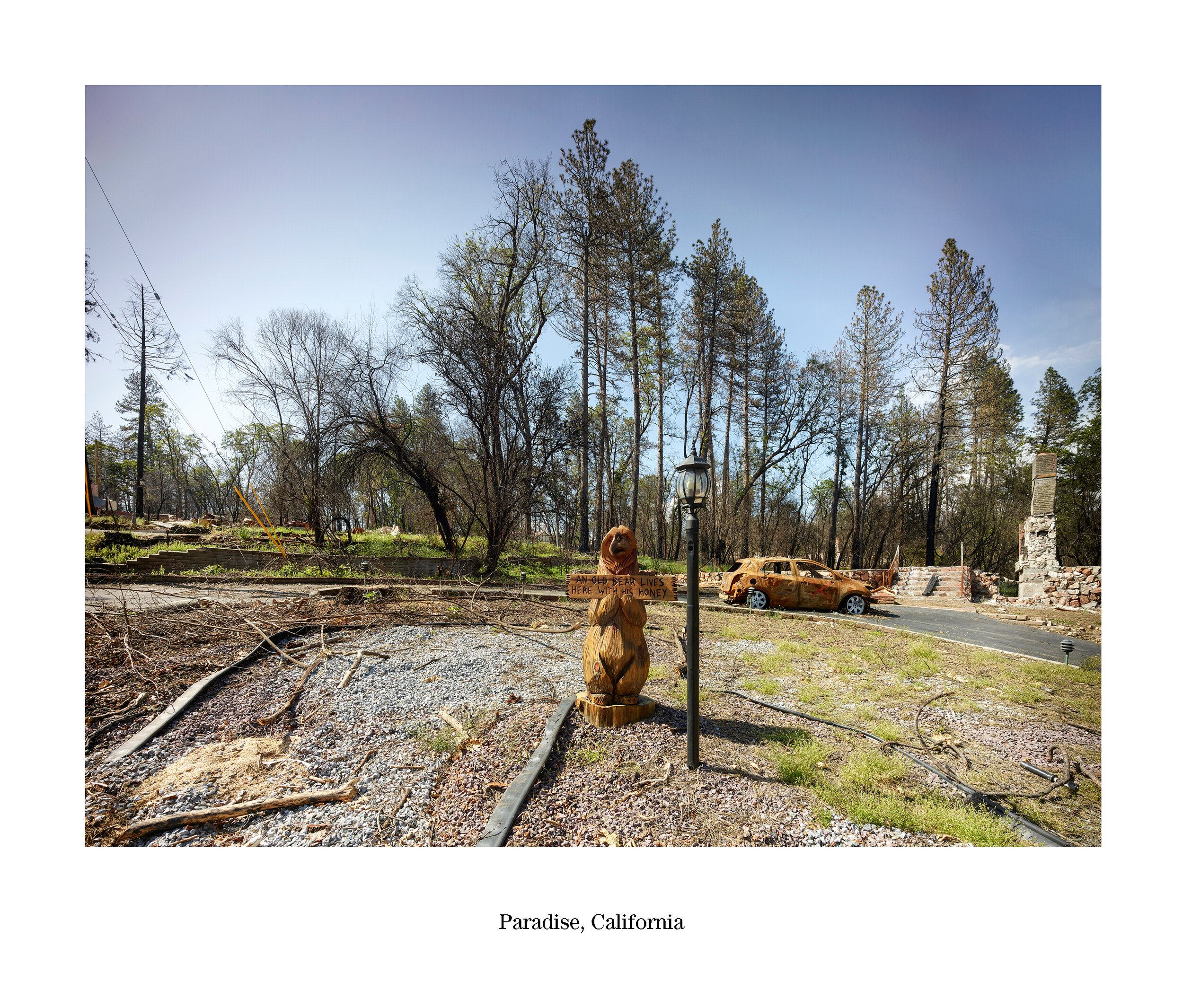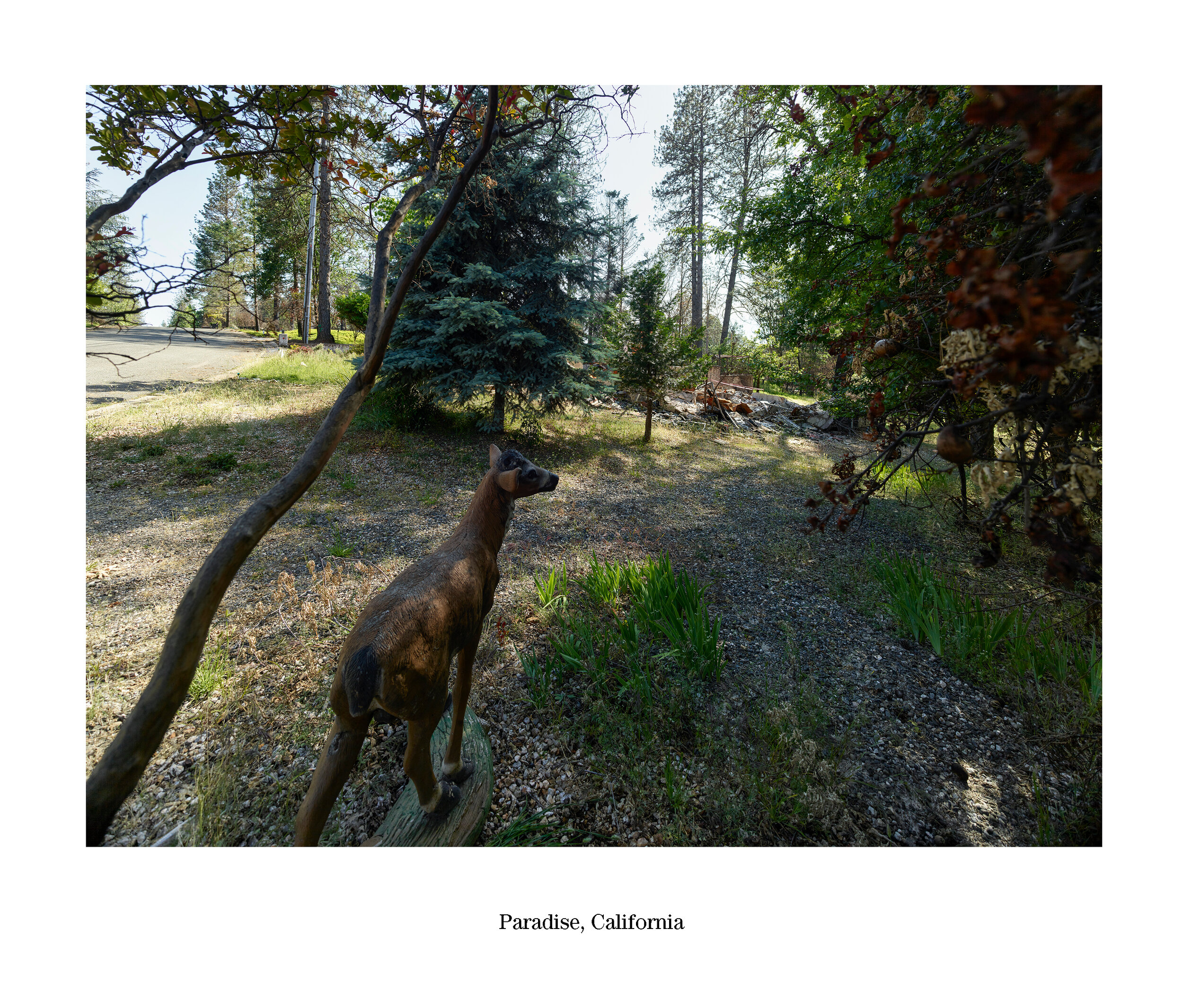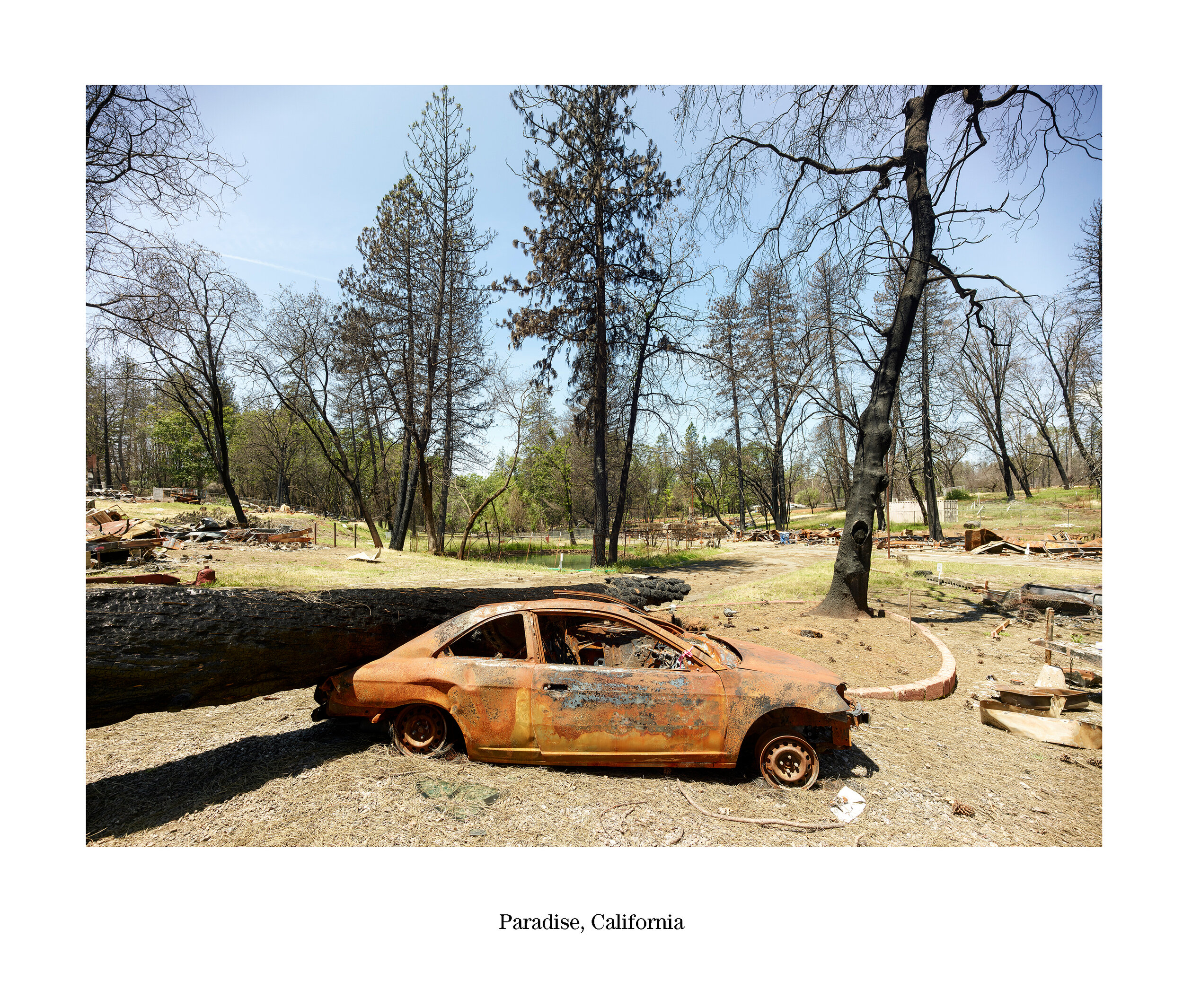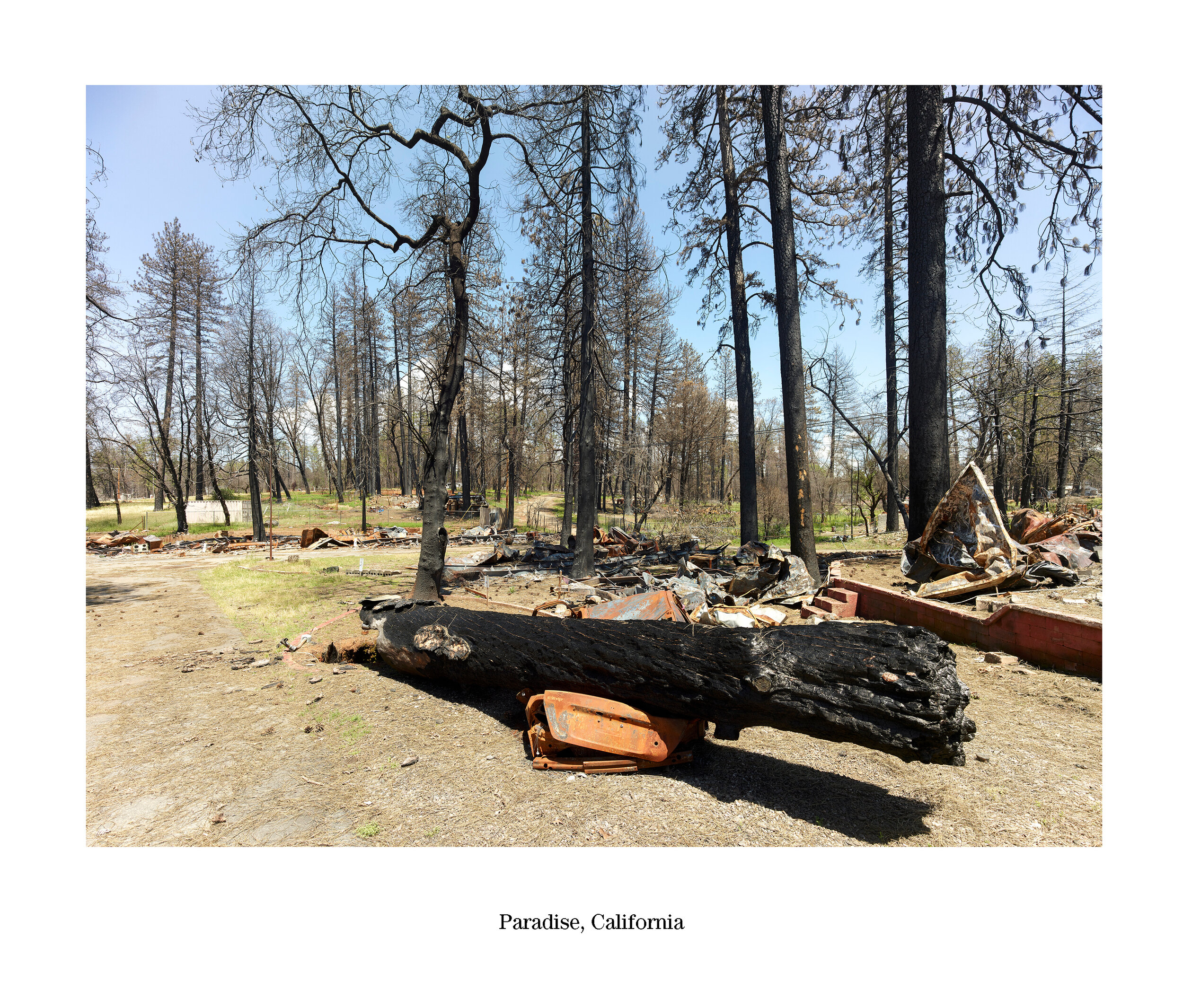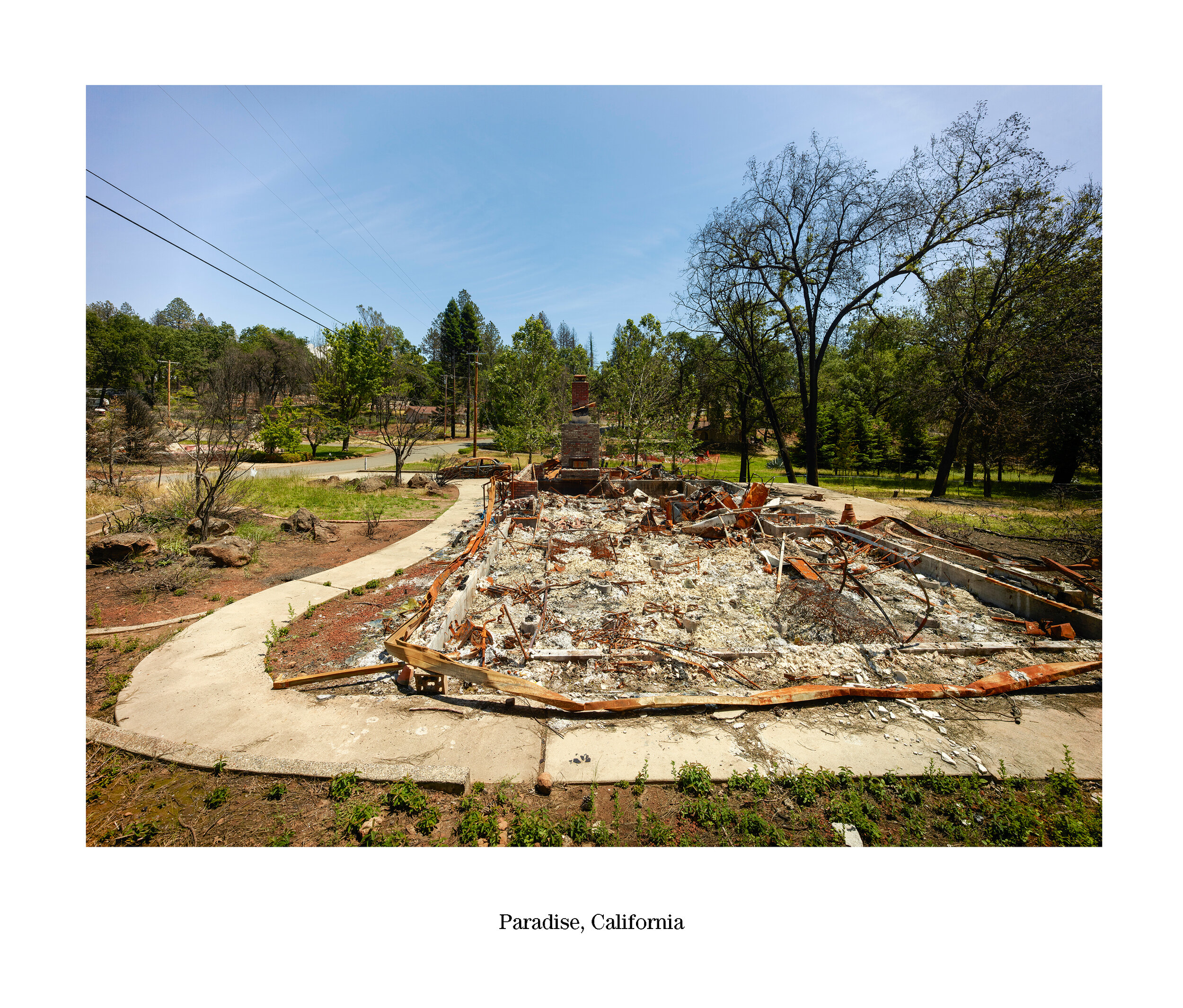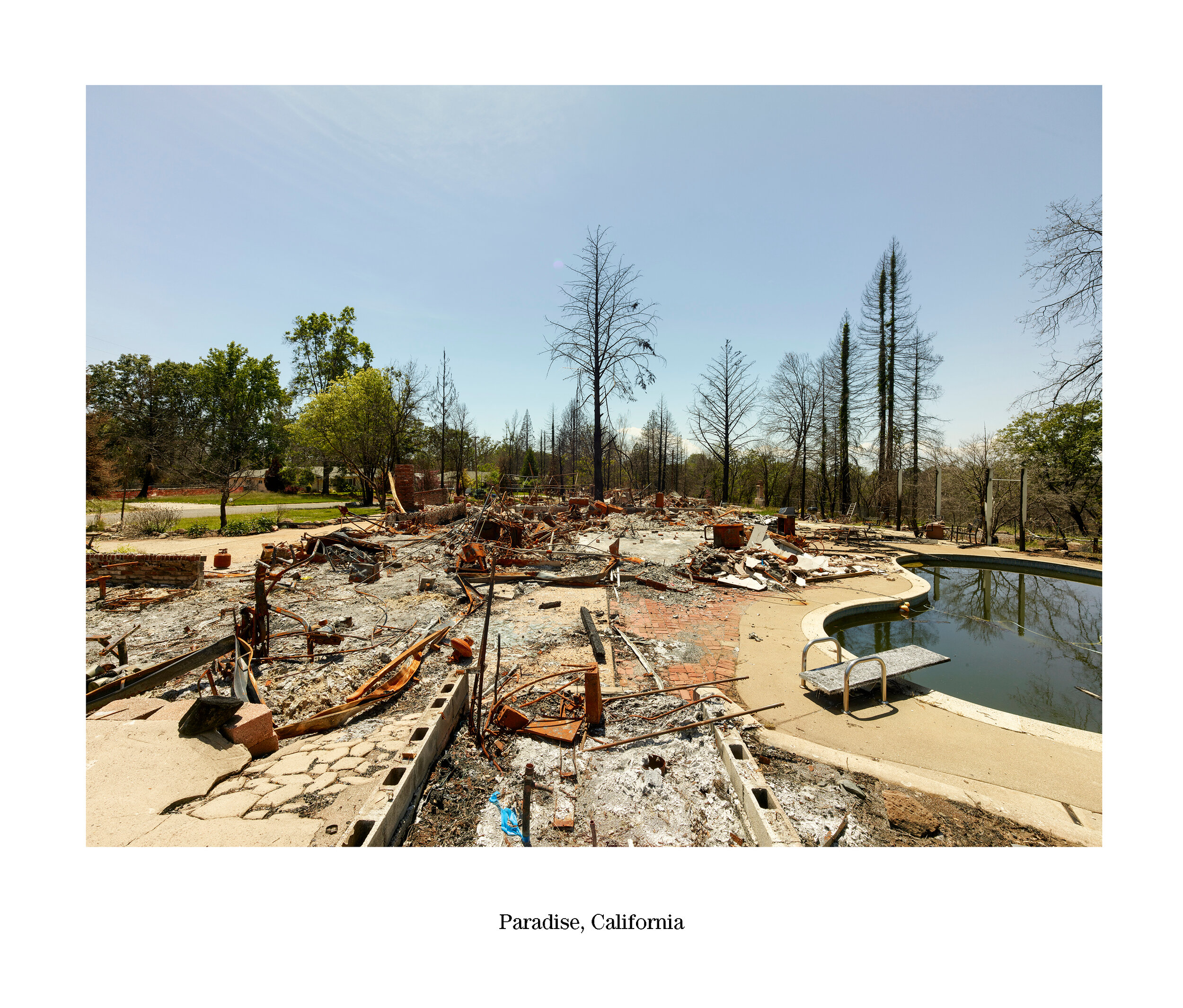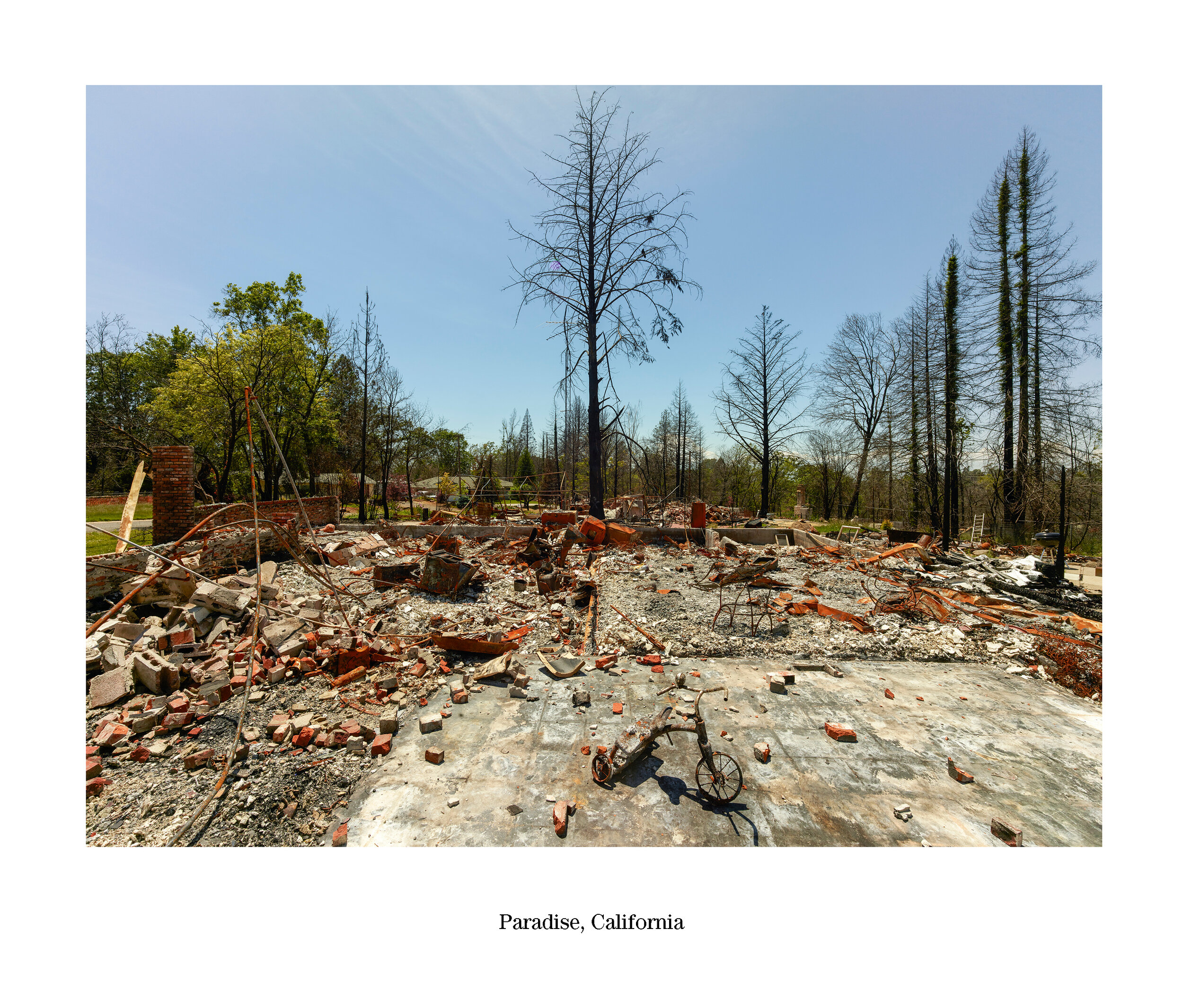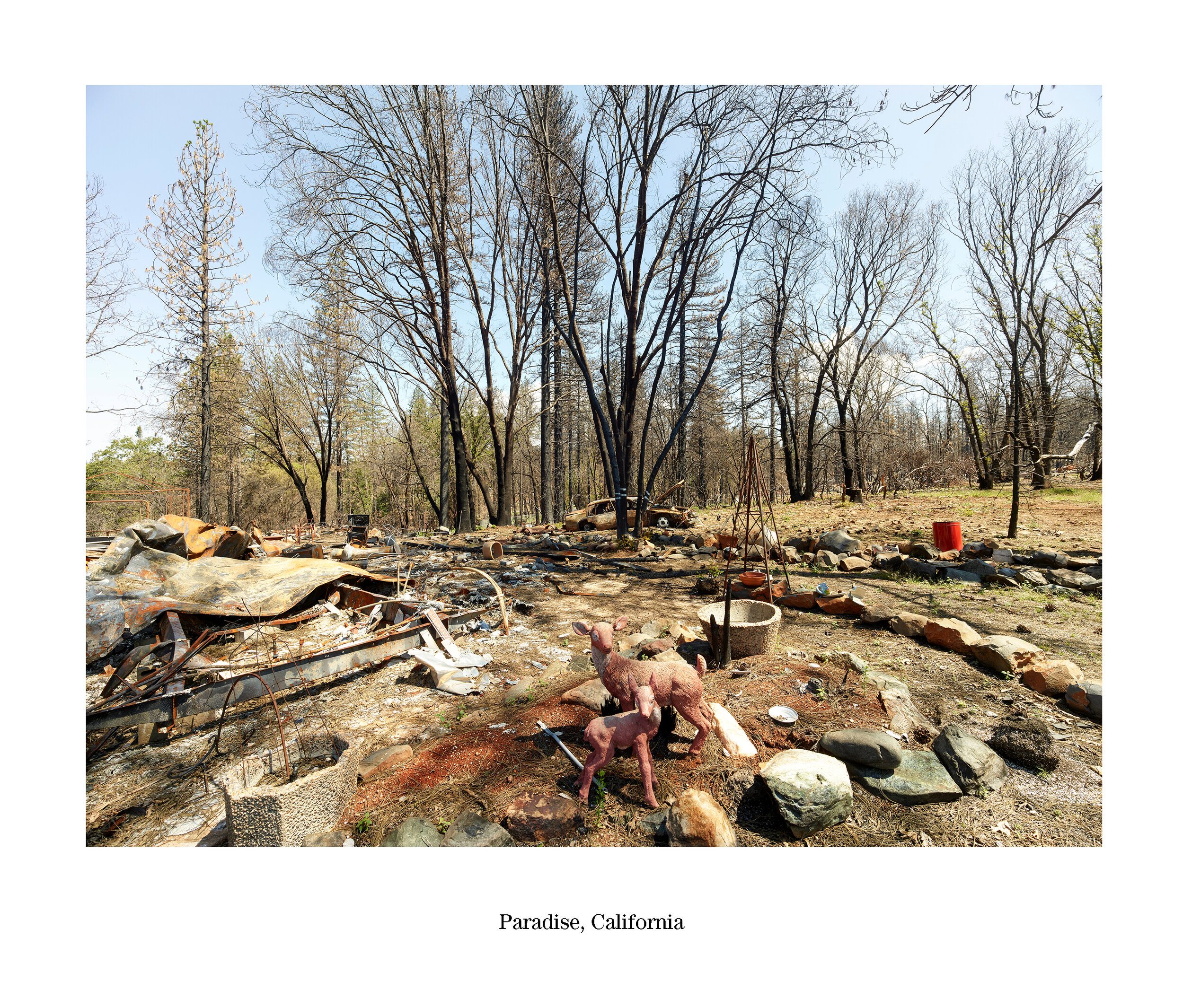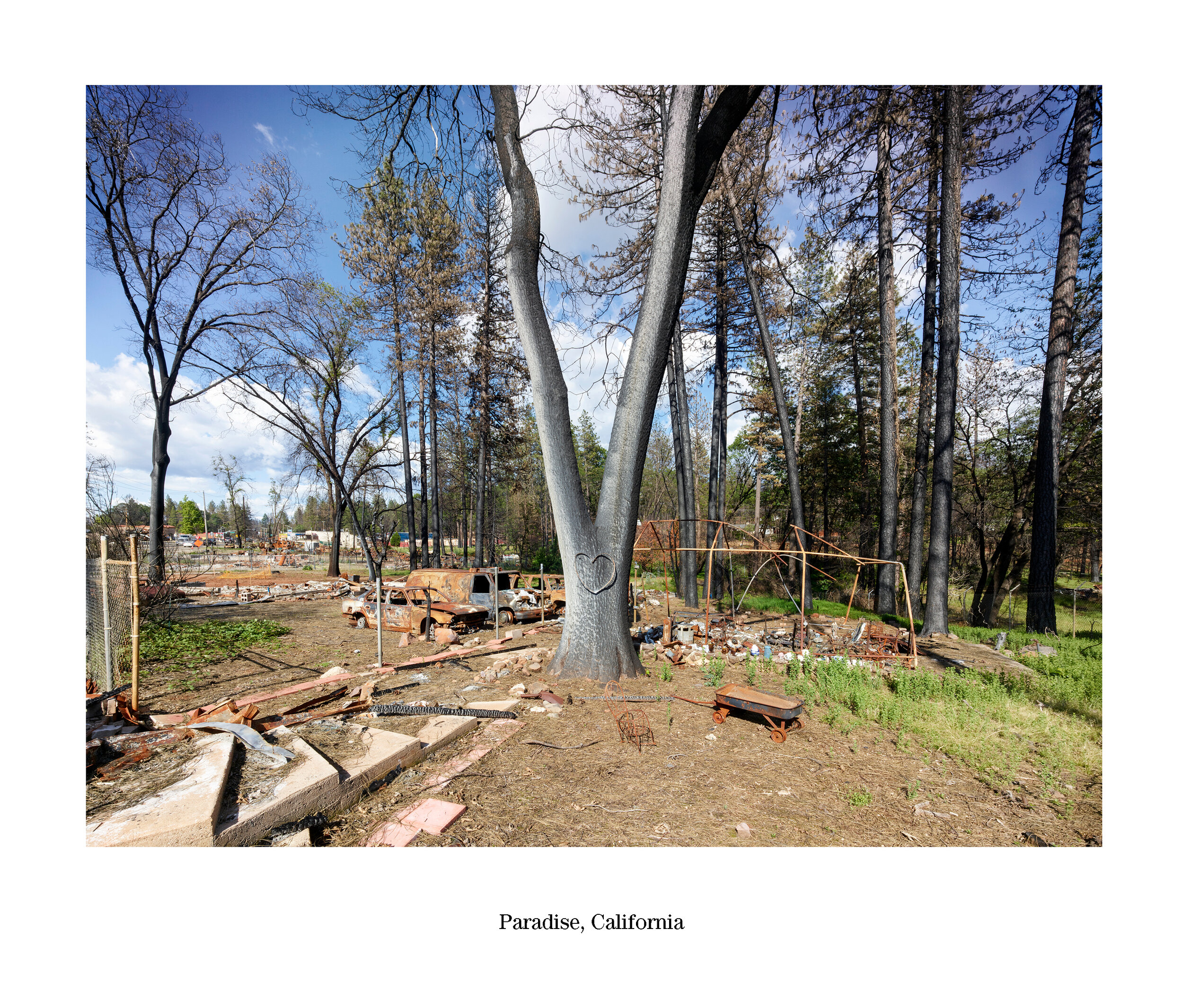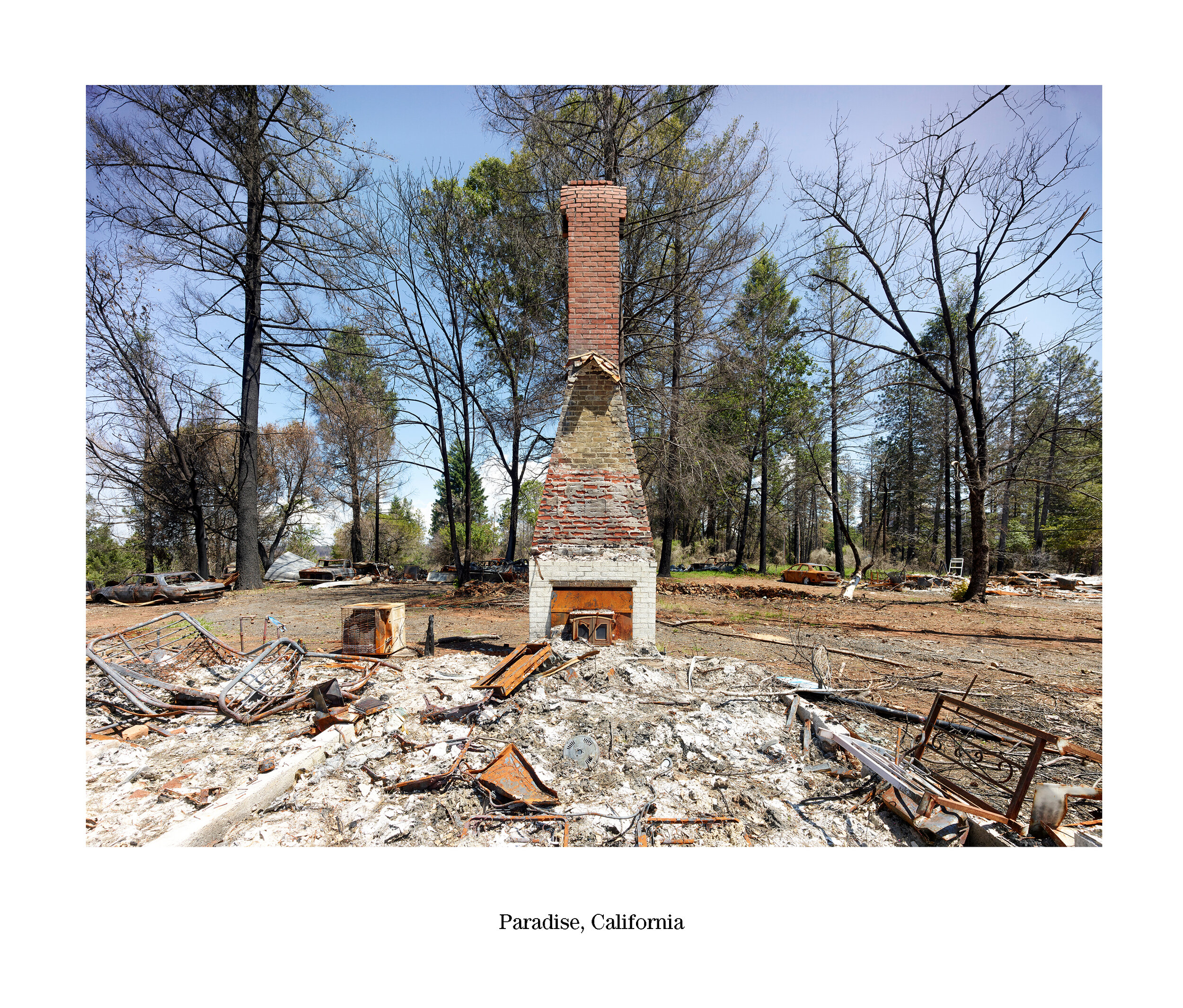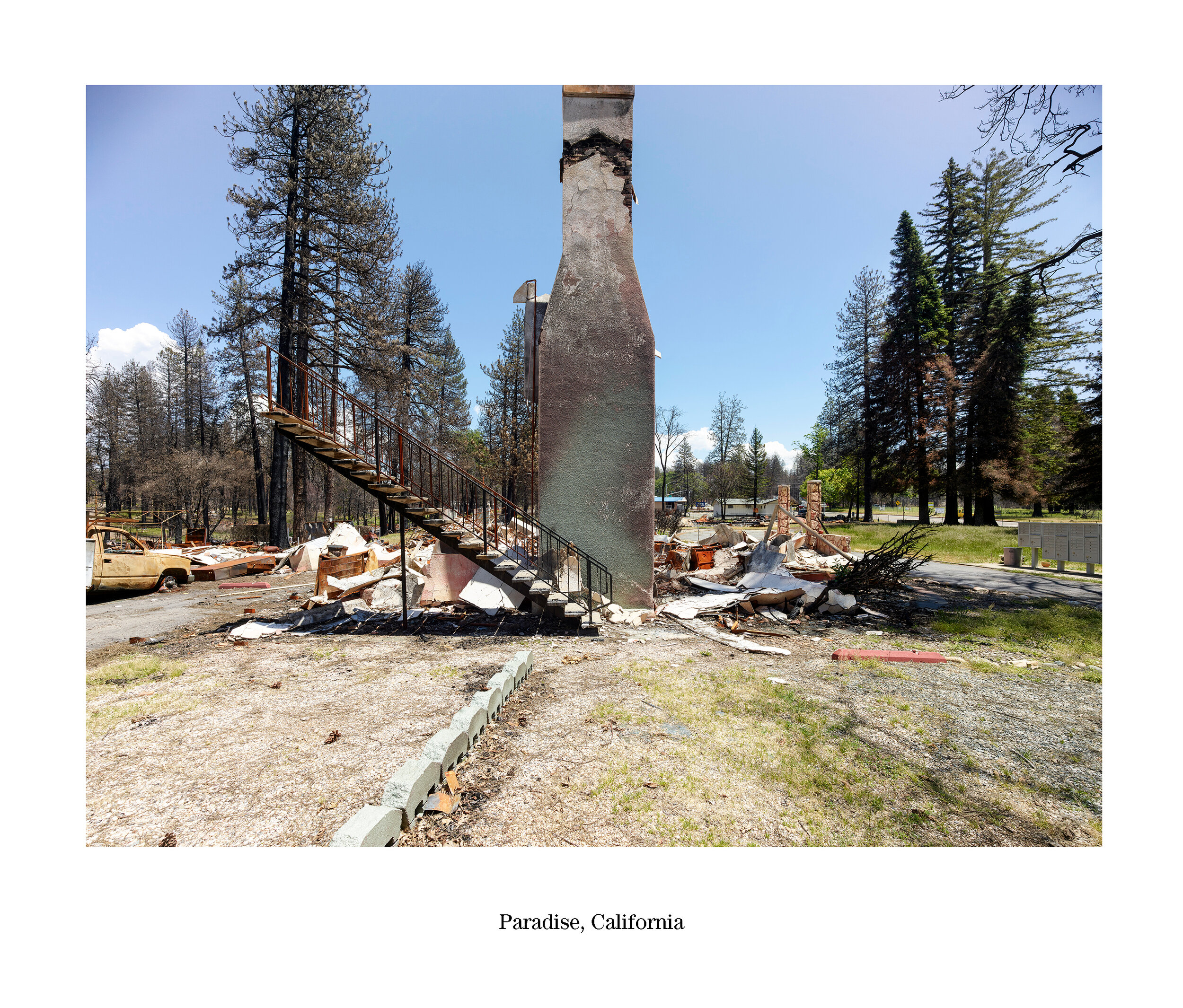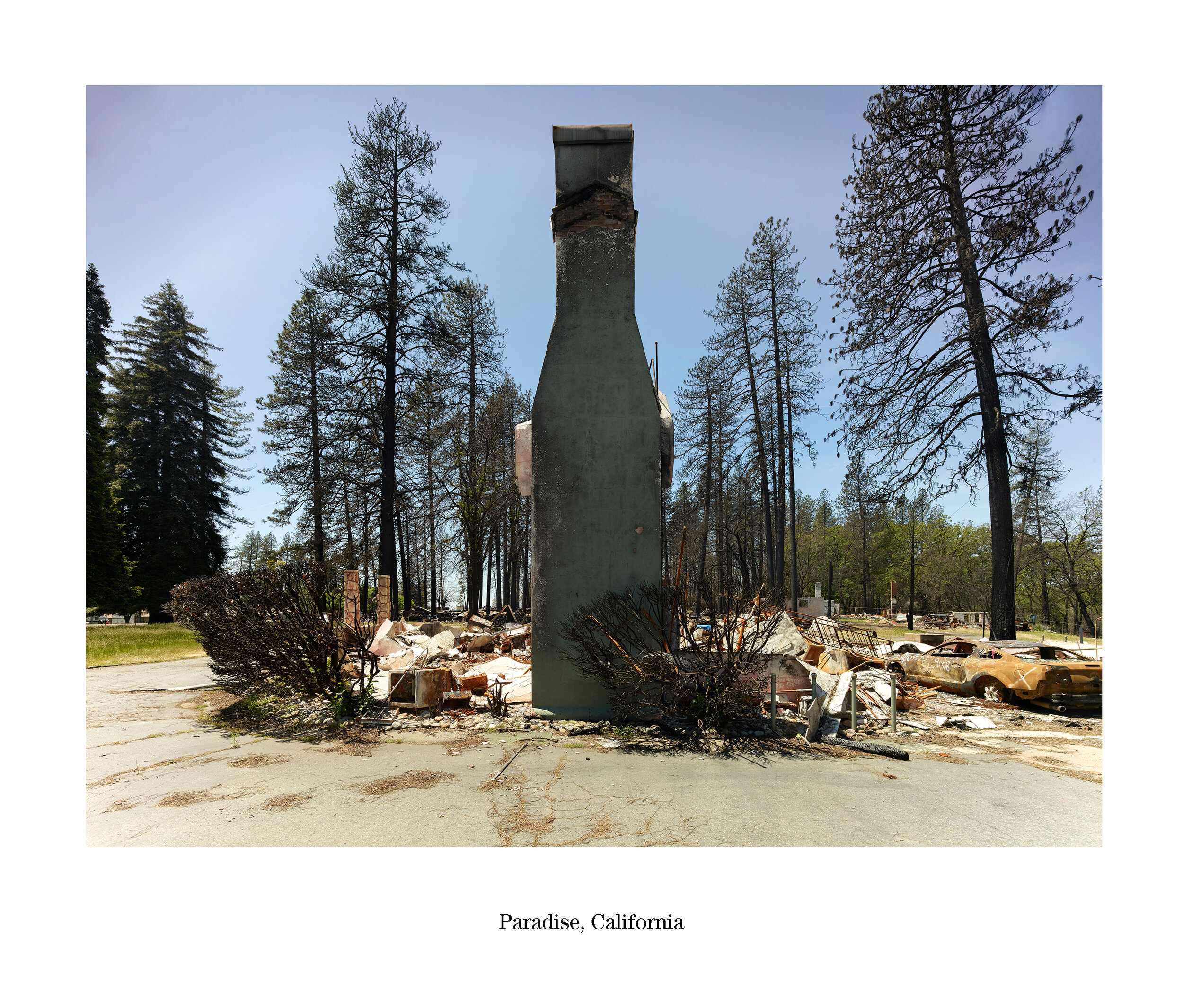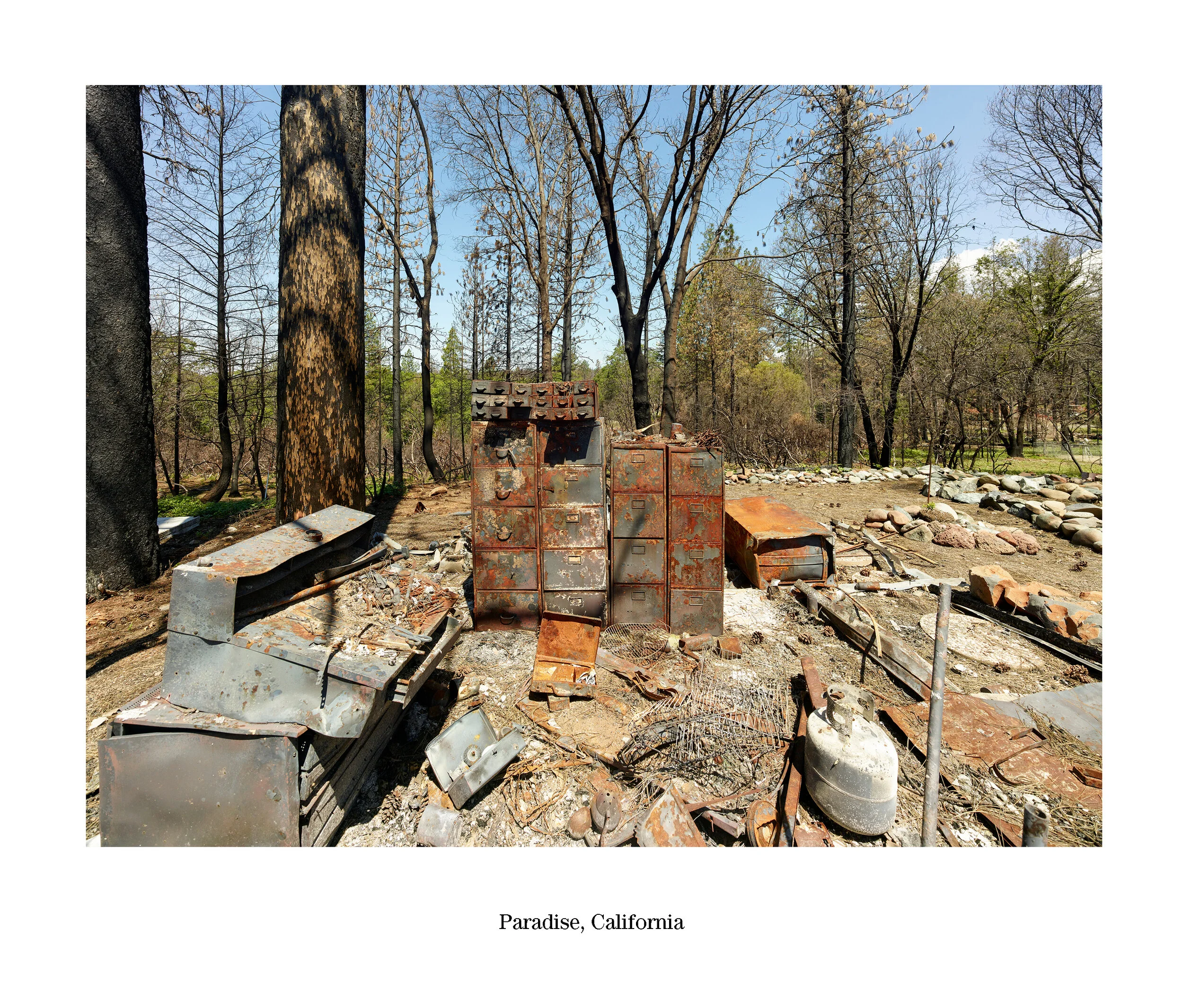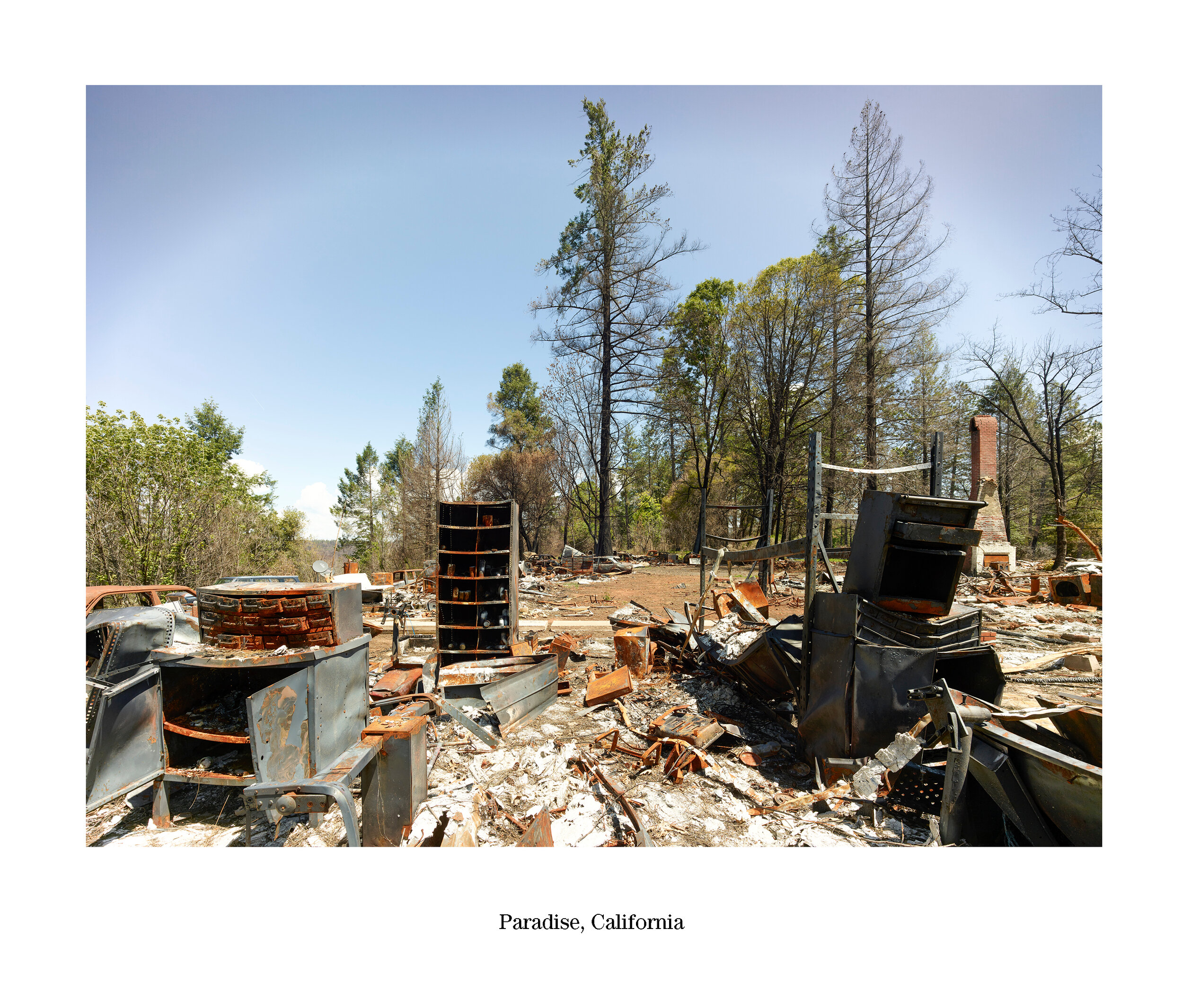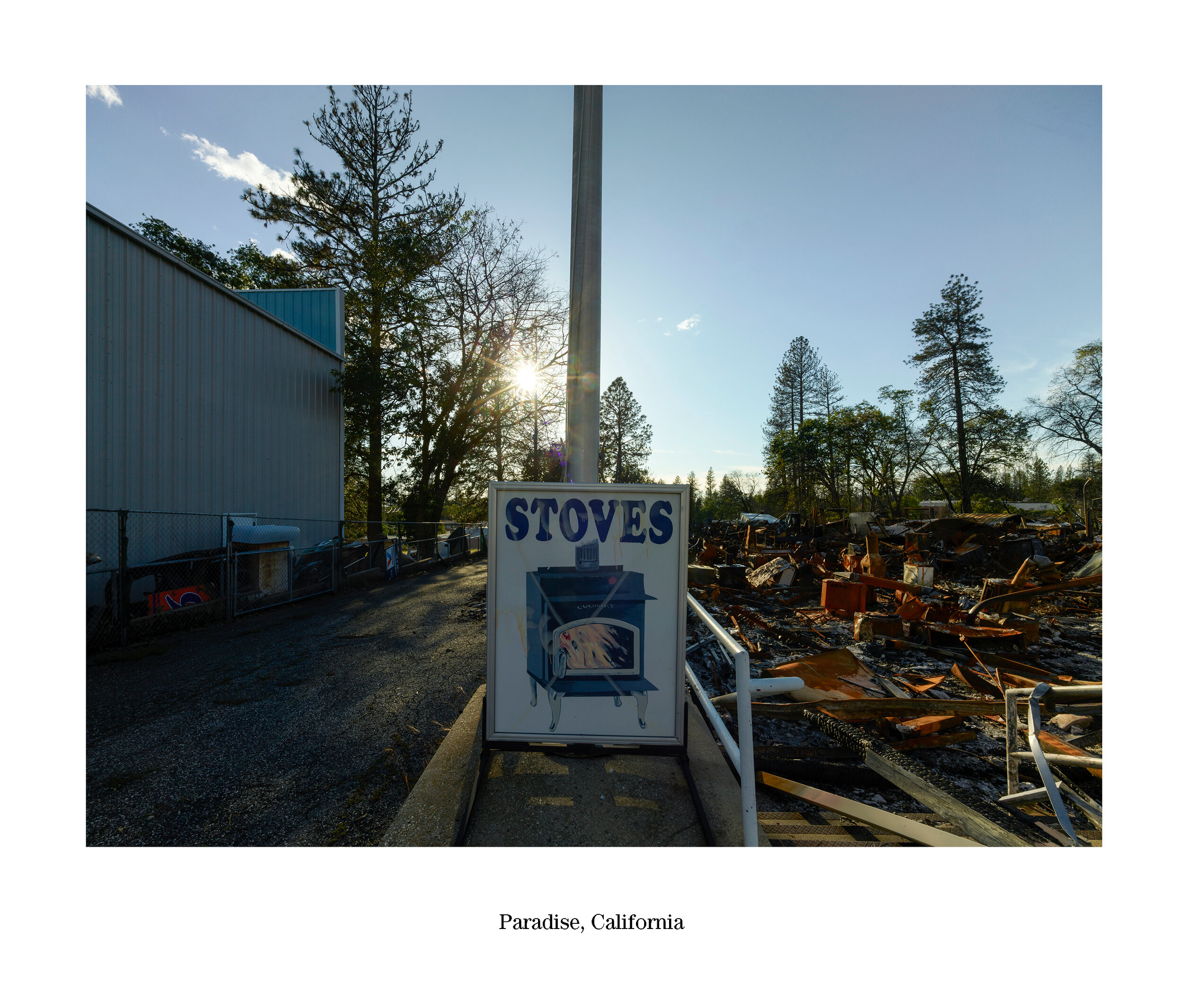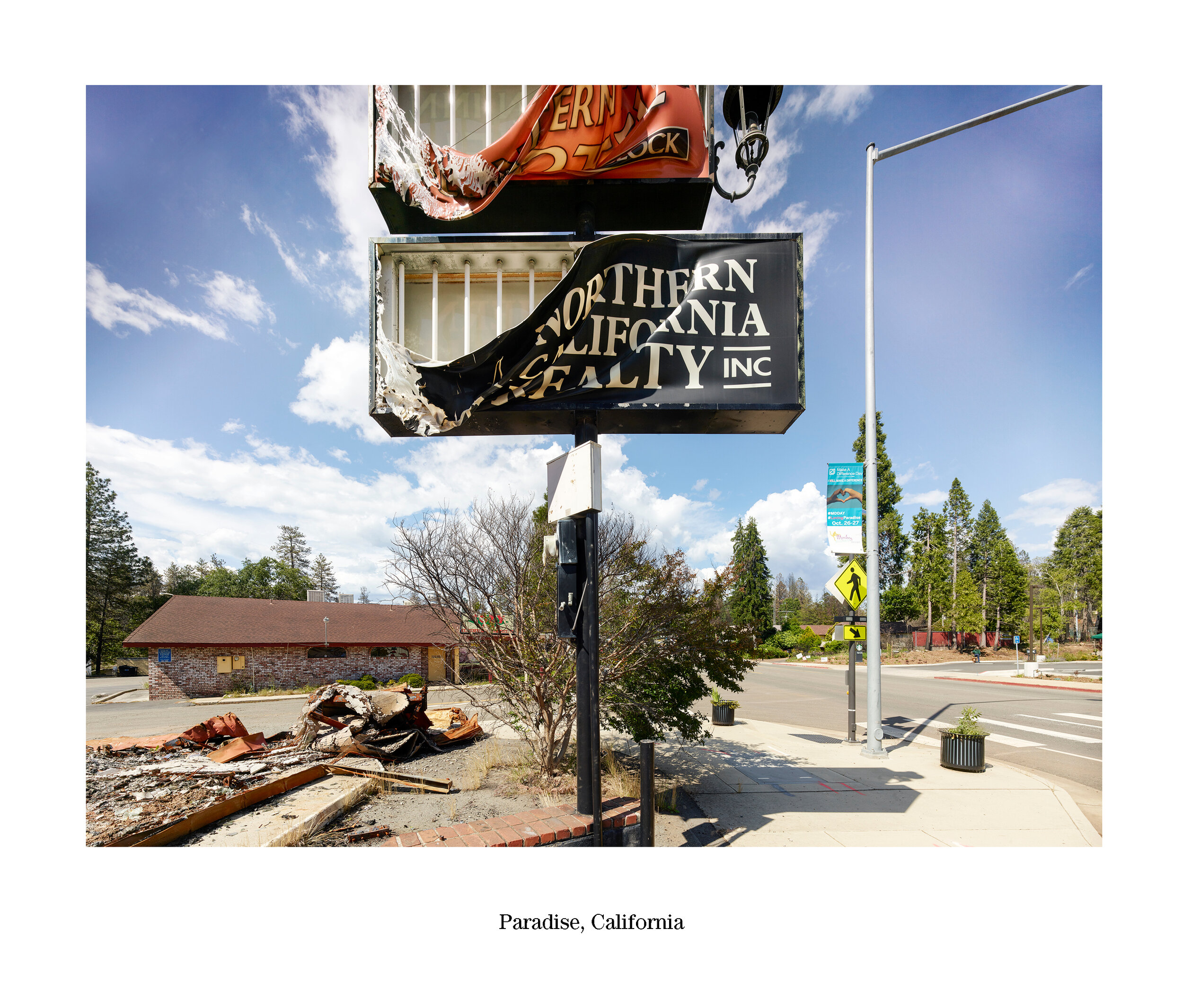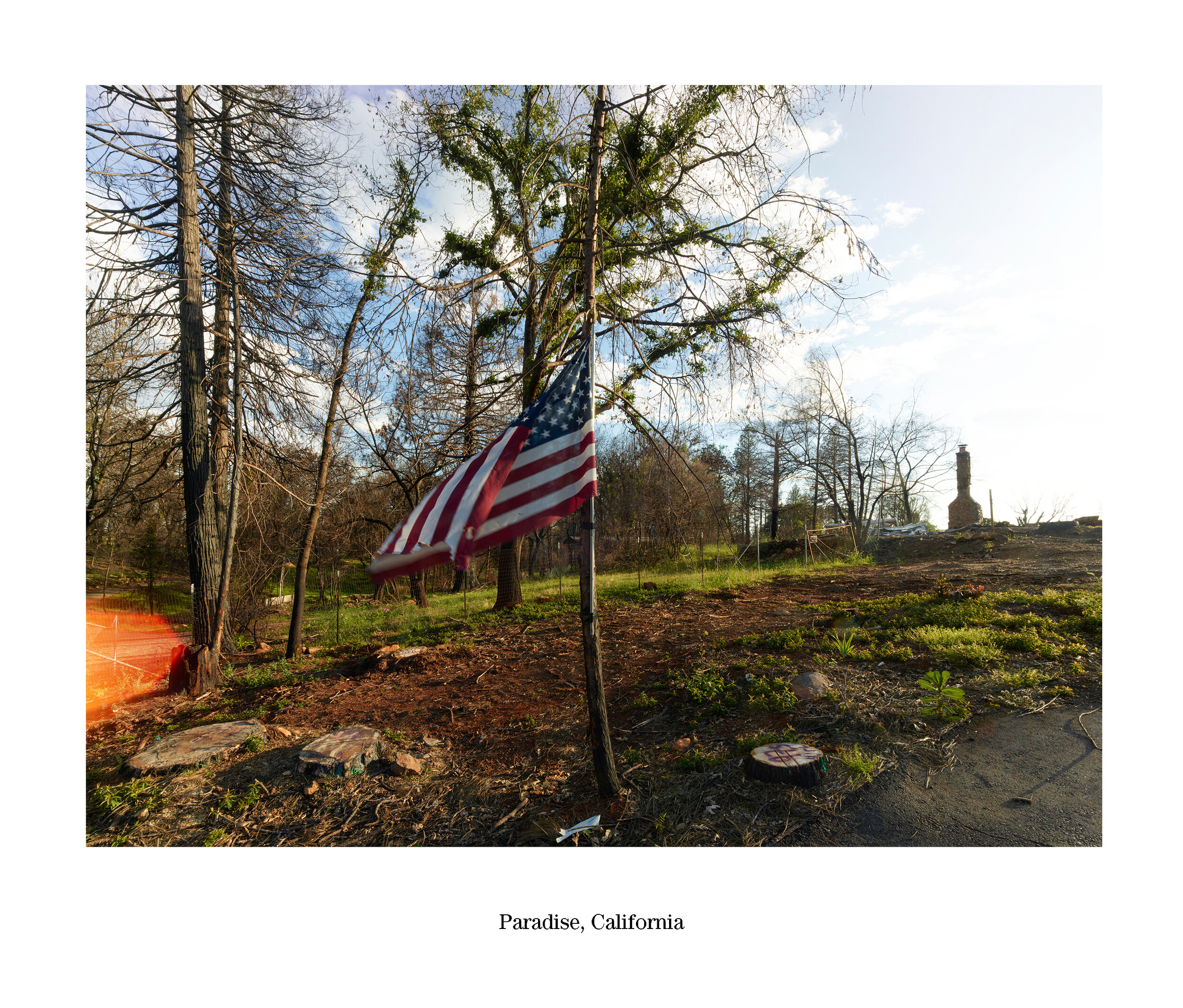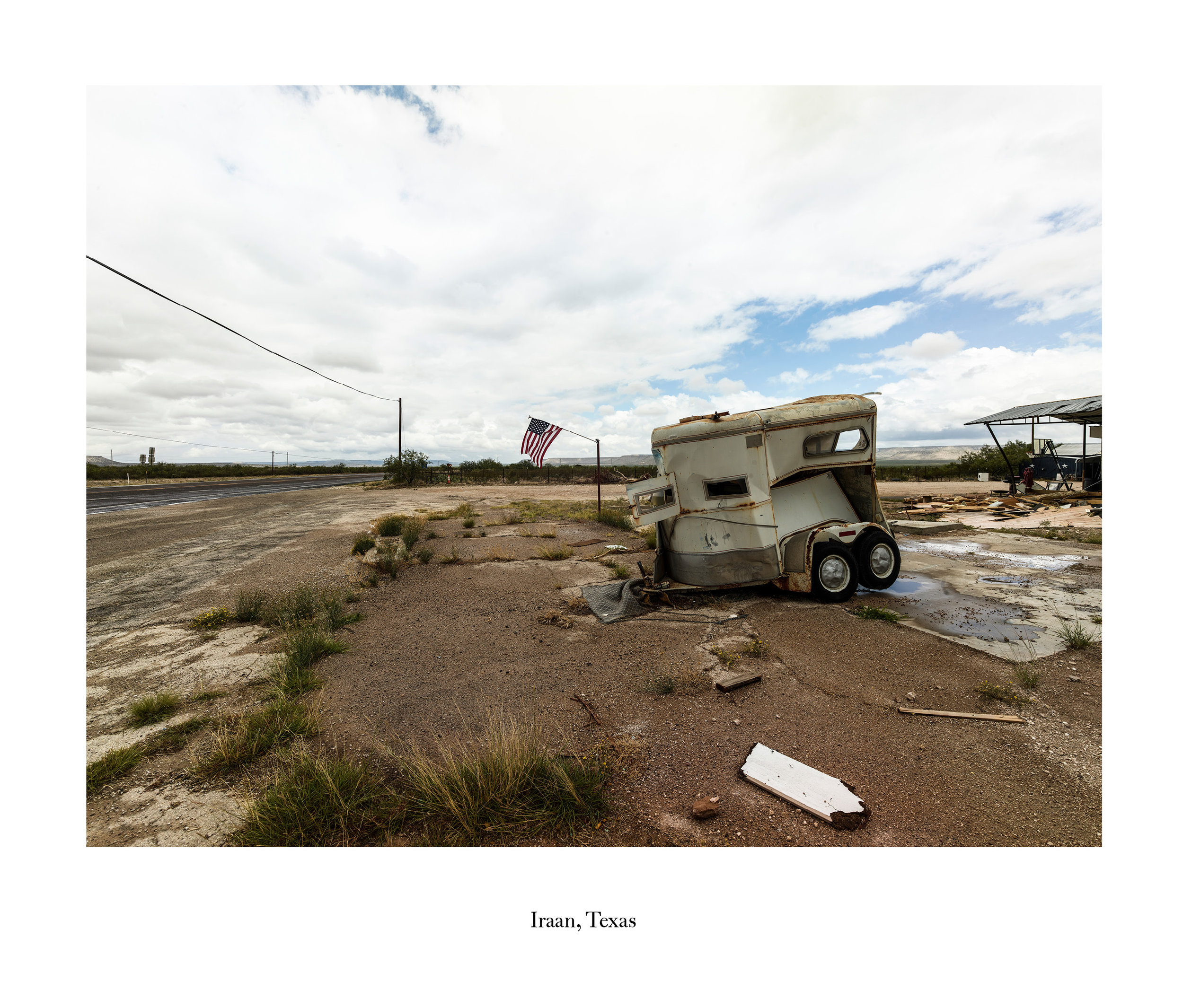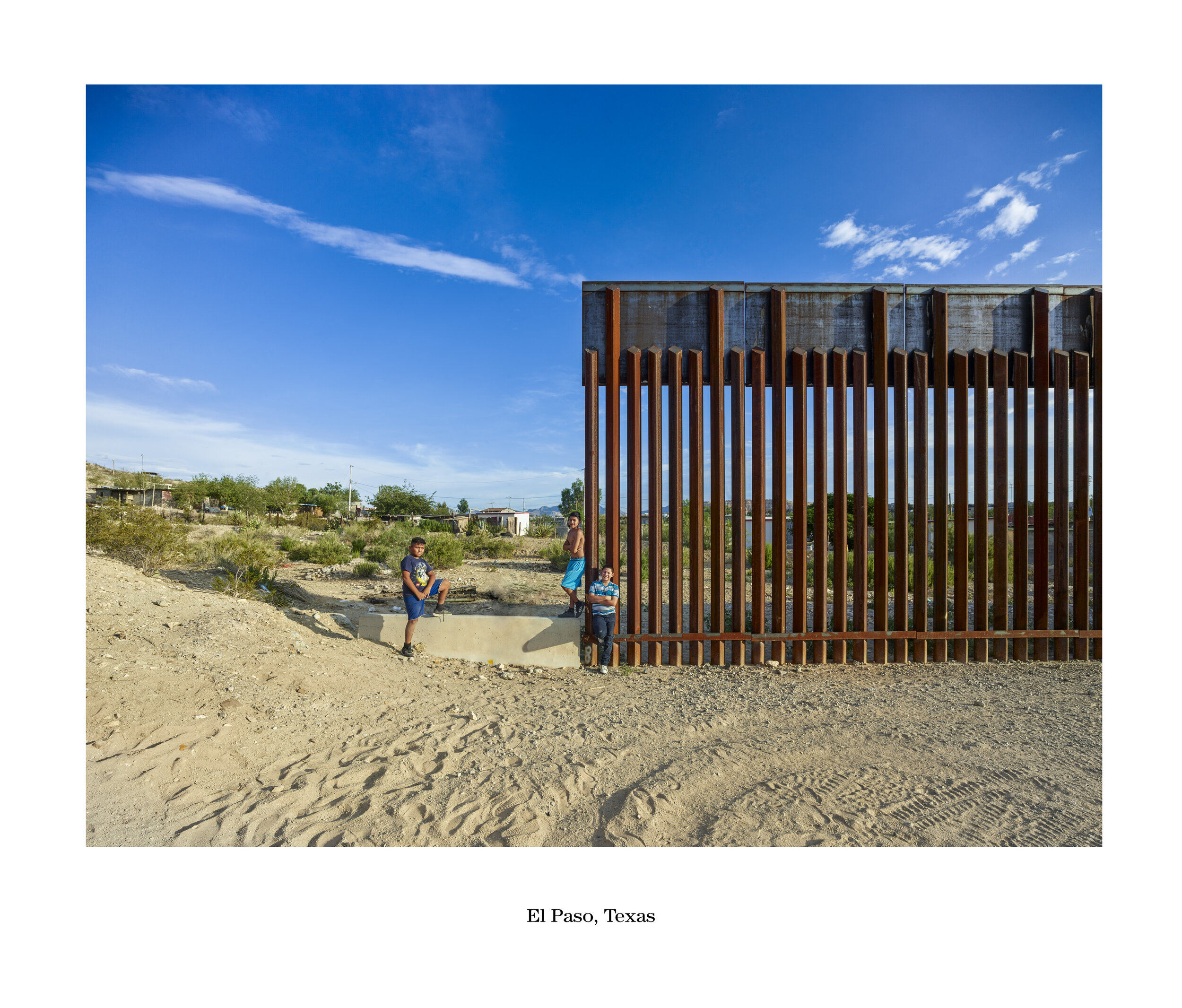Writing West
Un proyecto de Jordi Bernadó y Laura Ferrero.
Writing West es un archivo de territorios perdidos. Con el objetivo de encontrar una nueva representación de los Estados Unidos, cuyos paisajes han sido fotografiados infinitas veces, Jordi Bernadó y la escritora Laura Ferrero recorren el país de este a oeste, desde Miami a Los Angeles. El viaje tiene un único requisito: parar solamente en pueblos con nombres evocadores. Lugares como Happy, Utopia, Welcome, Paradise o Jupiter se convierten en un extraño mapa de topónimos, una suerte de narrativa visual llena de múltiples significados aún por descubrir.
Es un proyecto innegablemente personal, la travesía de dos viajeros y sus testimonios. Pero también es, tal vez más importante, un relato sobre cómo el pasado queda escrito en el espacio y el paisaje: un antiguo campo de batalla, el lugar de un discurso histórico, un referente arquitectónico. Y, aun así, a veces el valor de un lugar no es tan obvio, sino ambiguo. Una sensación, un presentimiento, una cualidad indefinida que flota en el aire.
Las localidades que forman este mapa toponímico rebosan un significado poético, no histórico. Componen una geografía alternativa de los Estados Unidos, un mapa secreto, invisible a simple vista: un mapa de deseos, fantasías, sueños, contradicciones, miedos, pérdidas, y las infinitas rutas que atraviesan los paisajes de la mente humana.
Las conexiones entre distintos lugares son, tal vez, aleatorias: el resultado de un viaje inmerso en el pensamiento mágico. Sin embargo, articulan un escenario coherente, un hogar para todas las verdades innombrables que se esconden detrás de un nombre.
A project Jordi Bernadó by Laura Ferrero.
Writing West is an archive of lost territories. Determined to find a new representation of the United States, whose landscapes have been photographed countless times, Jordi Bernadó and writer Laura Ferrero set out to travel across the country, from the east to the west, from Miami to Los Angeles. The only prerequisite of this journey was to stop exclusively in towns whose names sound evocative. Thus, places such as Happy, Utopia, Welcome, Paradise or Jupiter become a map of toponyms, a sort of uncharted visual narrative that unfolds multiple meanings.
This is an undeniably personal project, the journey of two travellers and their testimony. Yet it also is, perhaps more importantly, a political and anthropological quest to explore the ways in which truth and myth intertwine to form our notion of space, territory, and identity.
The way we inhabit a place is determined by how we endow this place with meaning. Often, this meaning is purely historical, a tale of the past inscribed in buildings and landscape: a former battlefield, the site of a great speech, an architectural hallmark. Yet, sometimes, the source of signification might be more ambiguous, like an indefinite haunting that fills the air.
The towns that compose this toponymic map are all imbued with a meaning that is poetical, rather than historical. They constitute an alternative geography of the United States, a secret map, invisible at first sight: a map of desires, fantasies, dreams, contradictions, fears, losses, and infinite routes across the furtive roads of the human mind.
The connections between the different places are, perhaps, aleatory: the product of a journey steeped in magical thinking. And yet, they articulate a coherent scenario, a home for all the unspeakable truths that hide behind a name.

